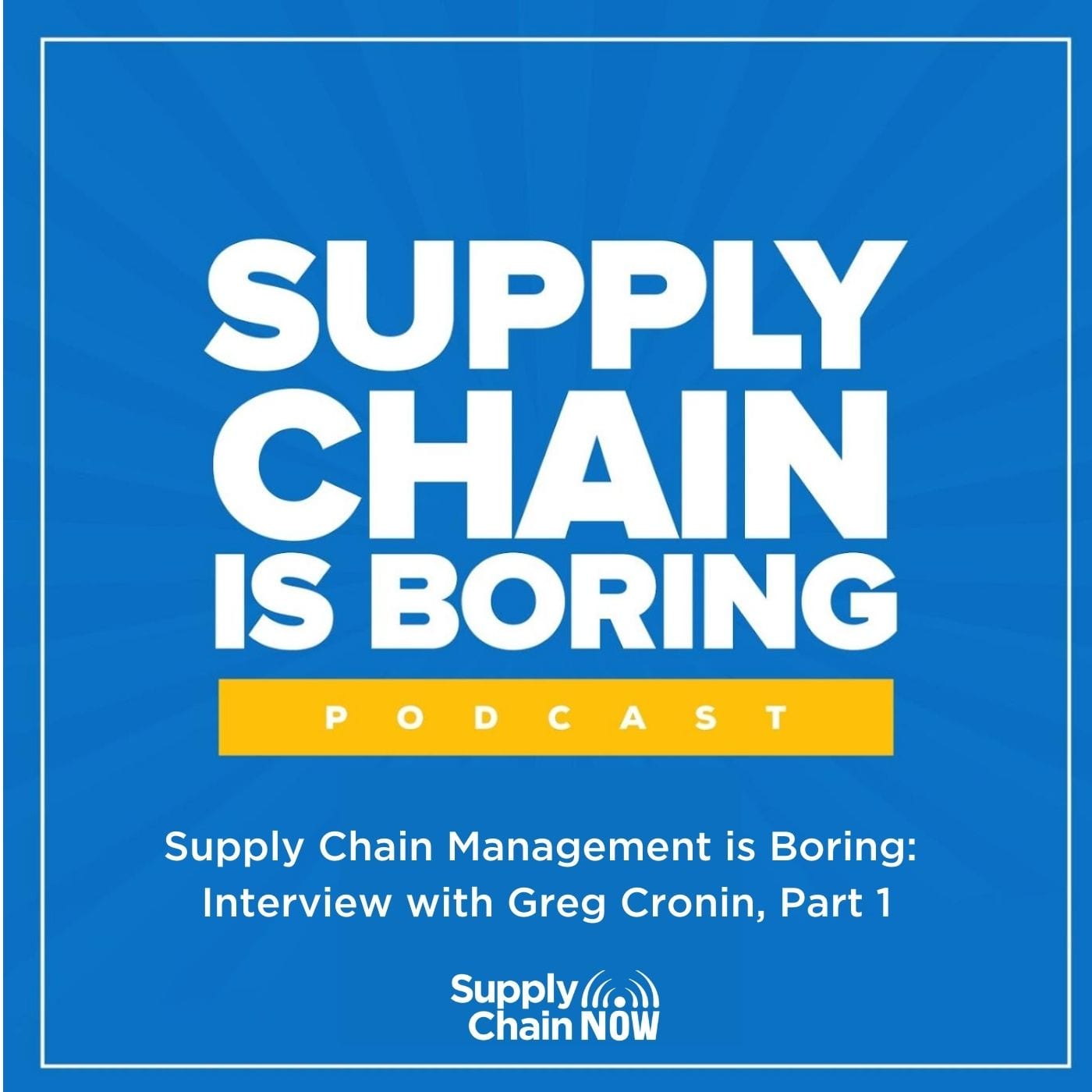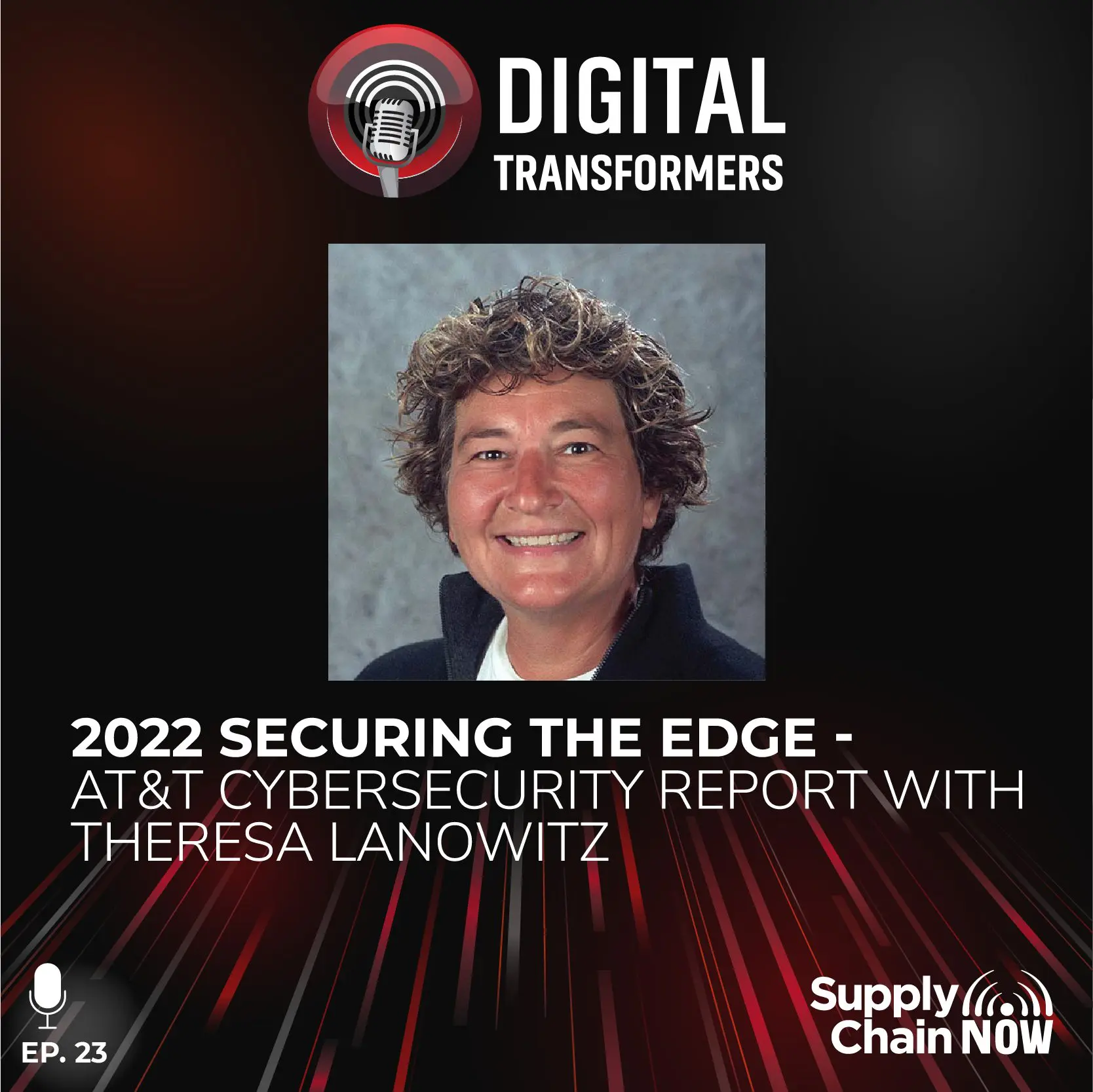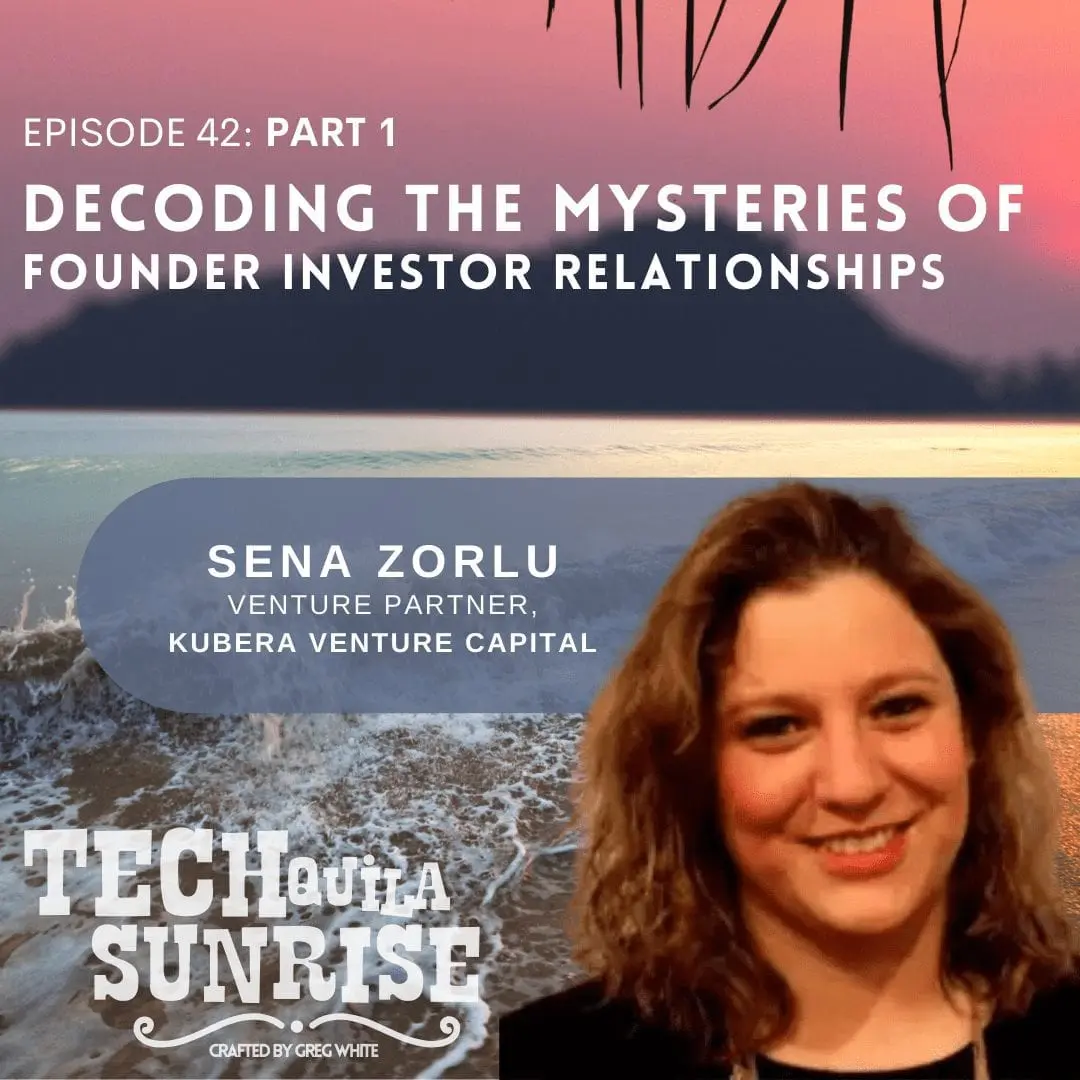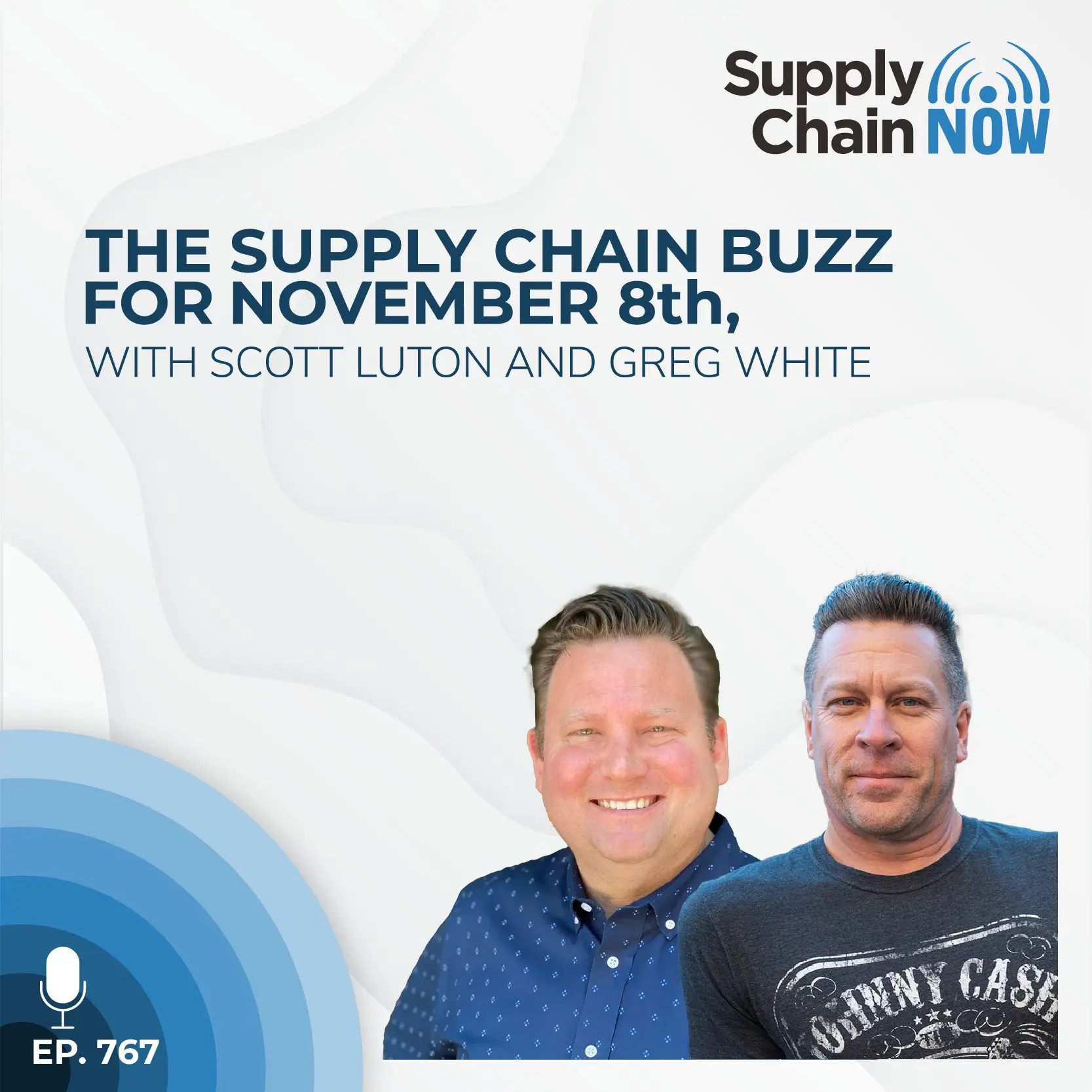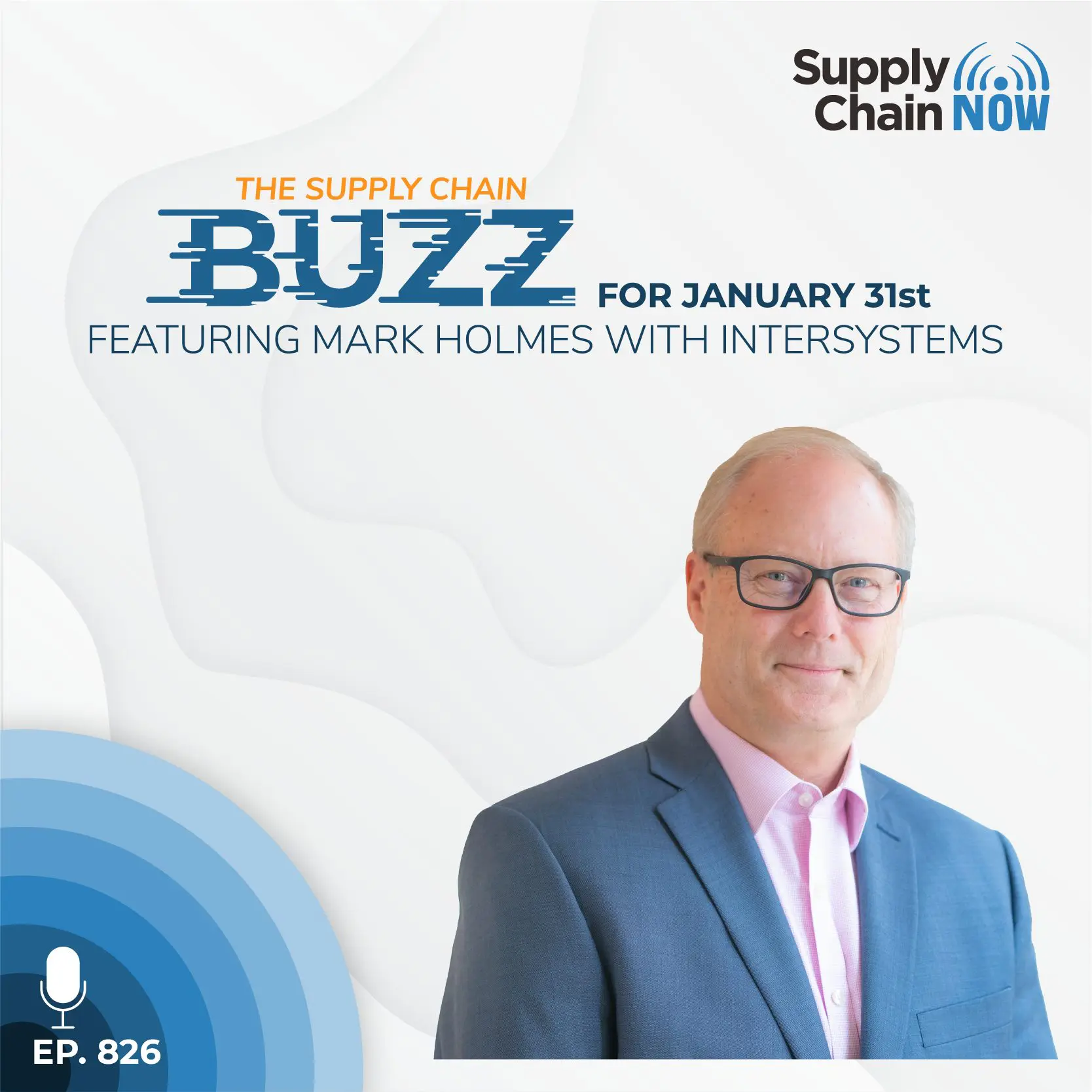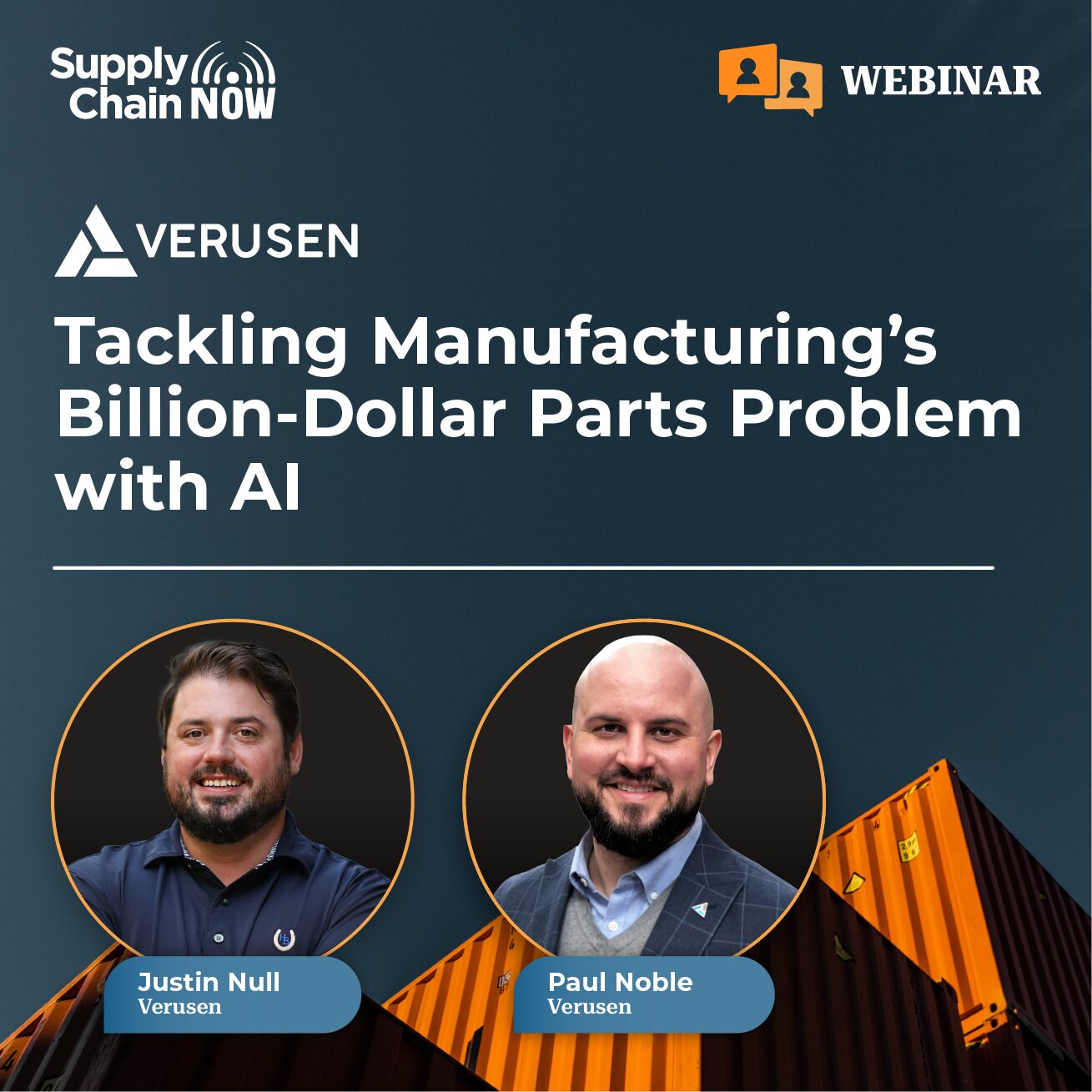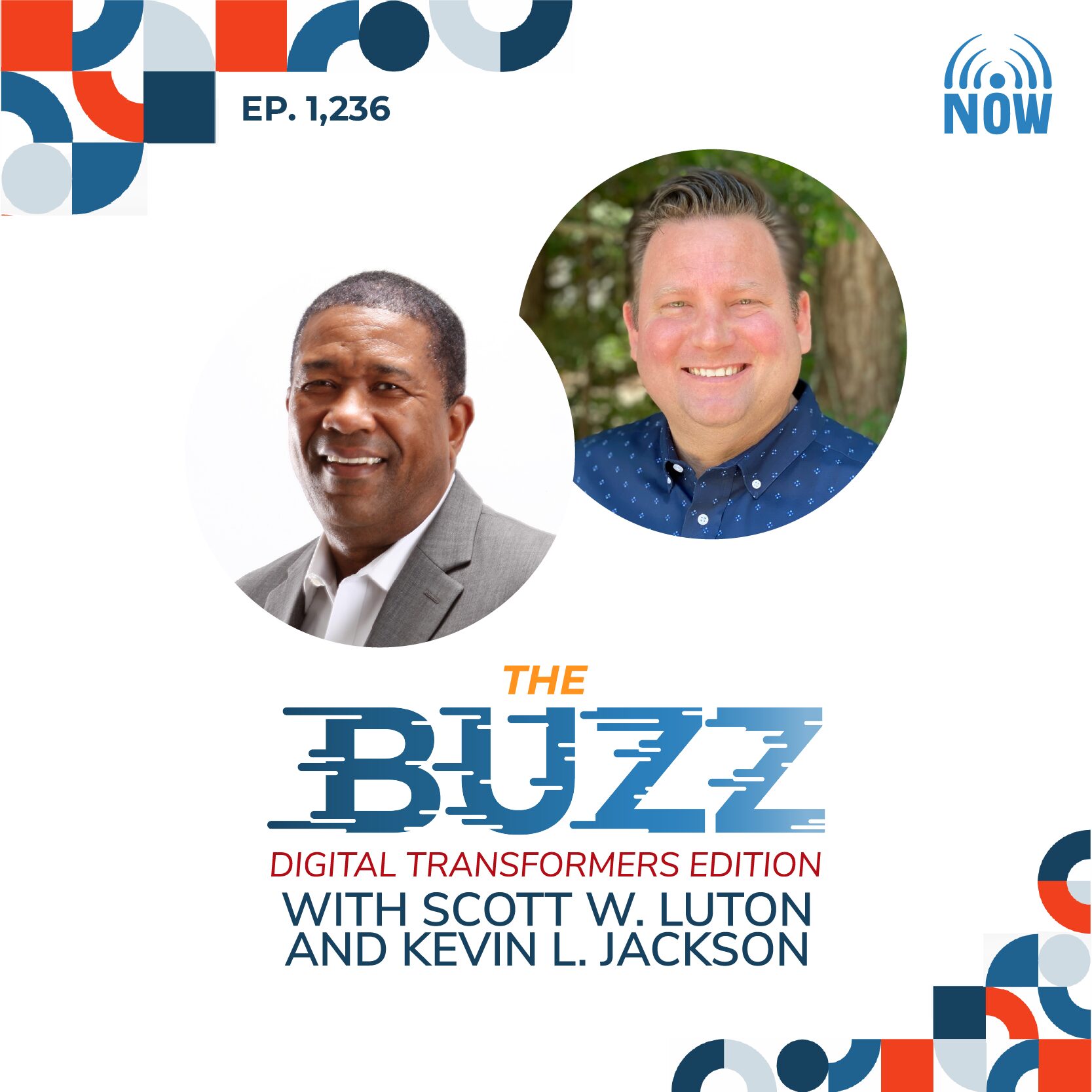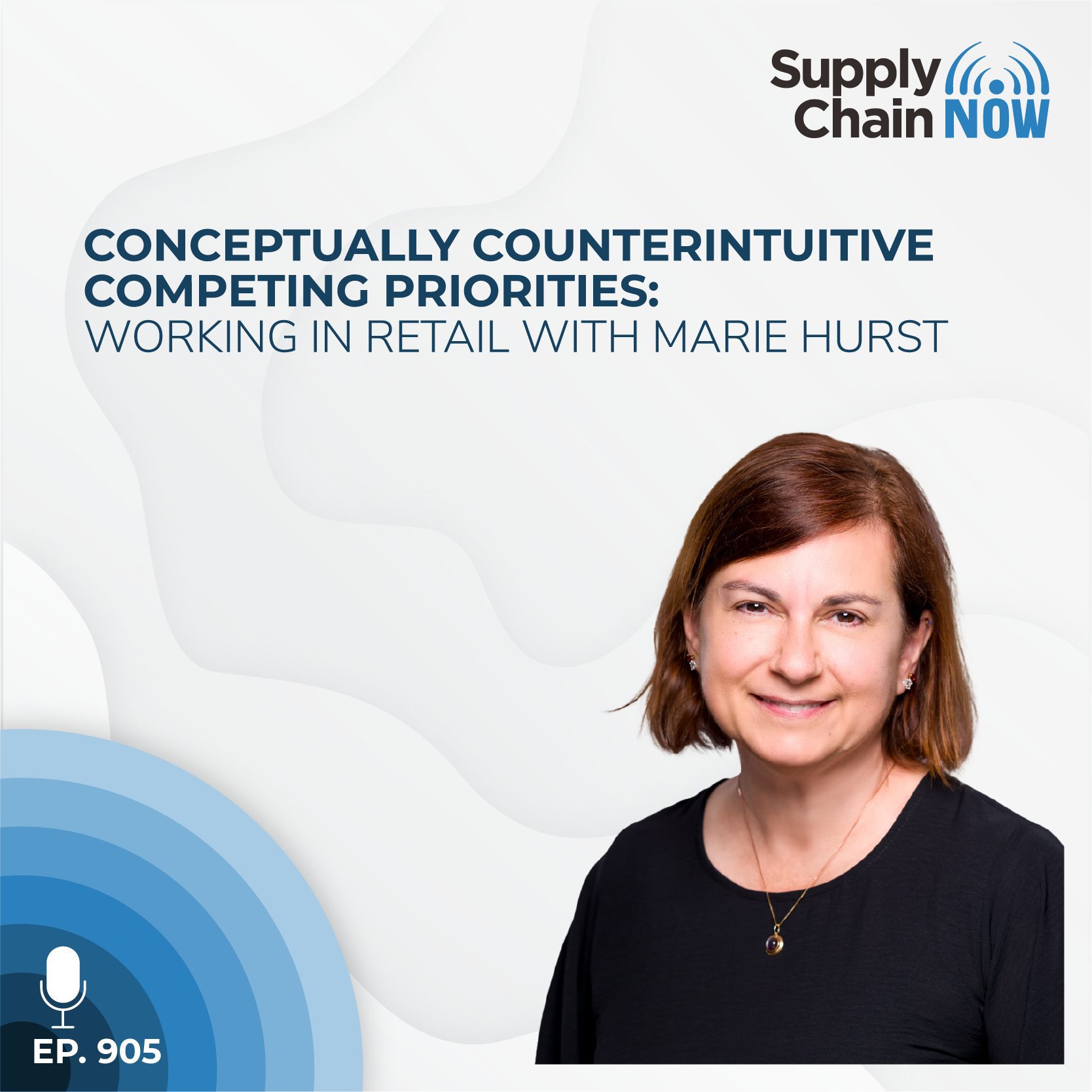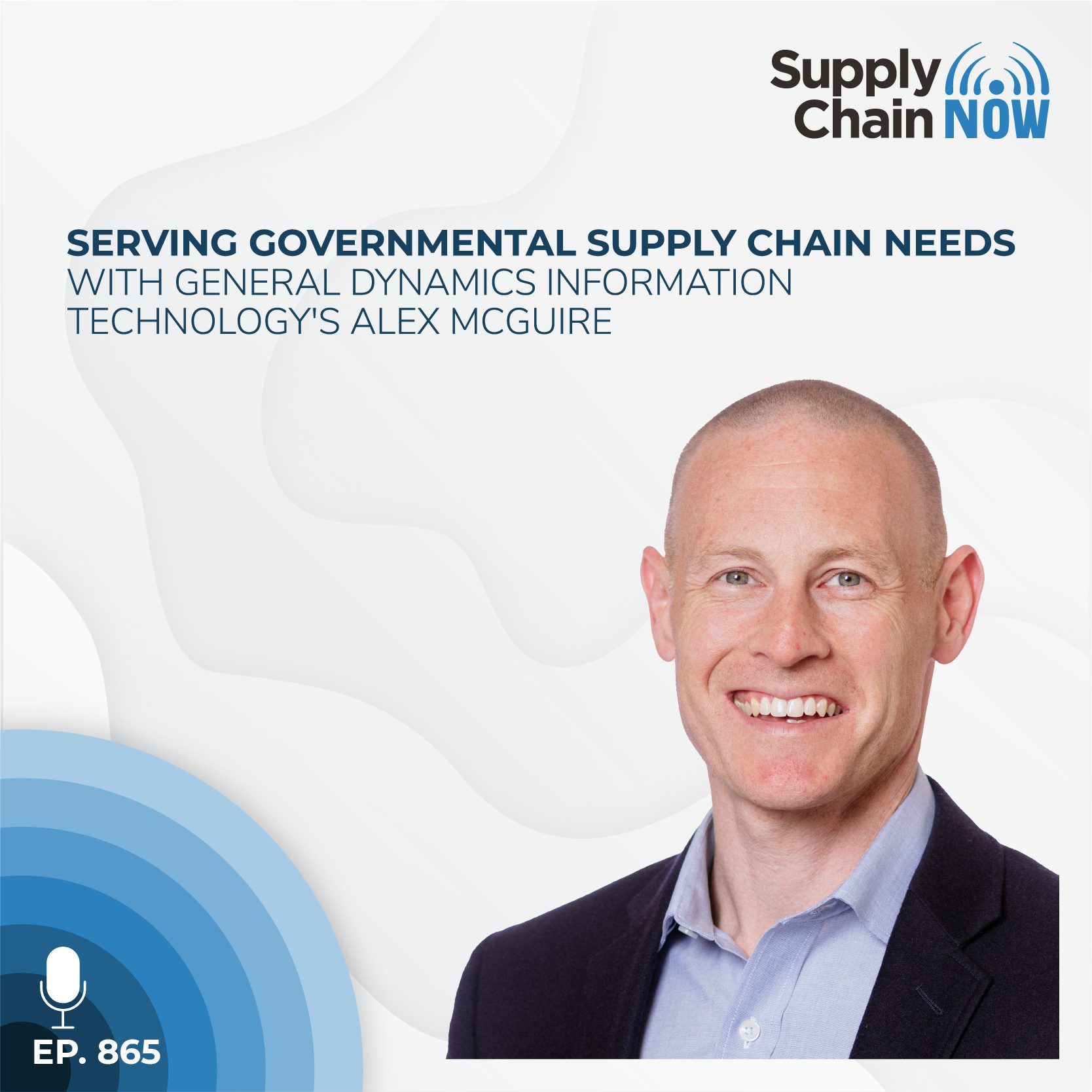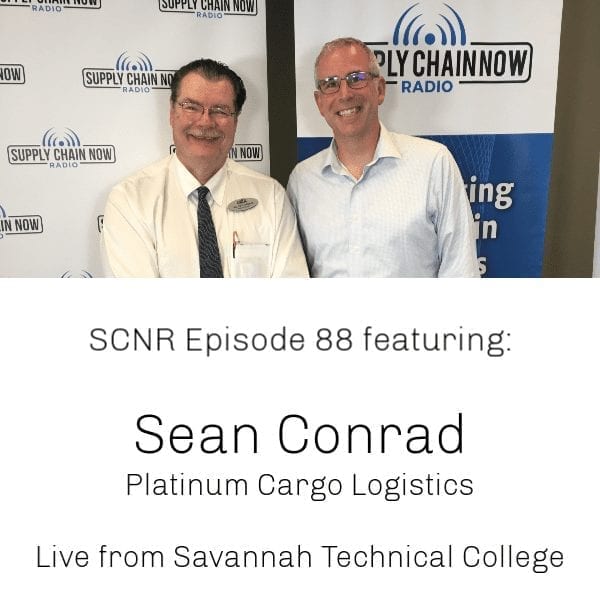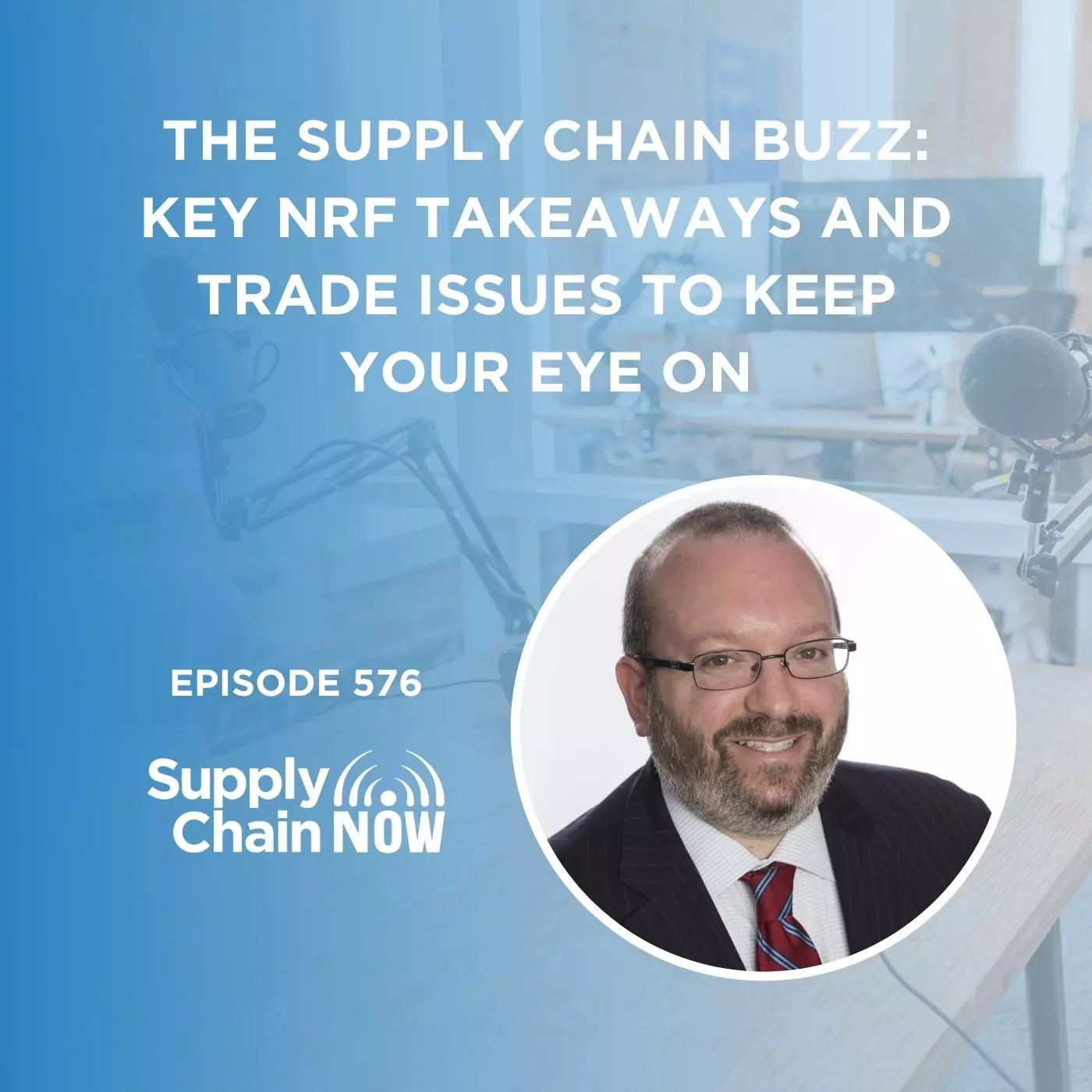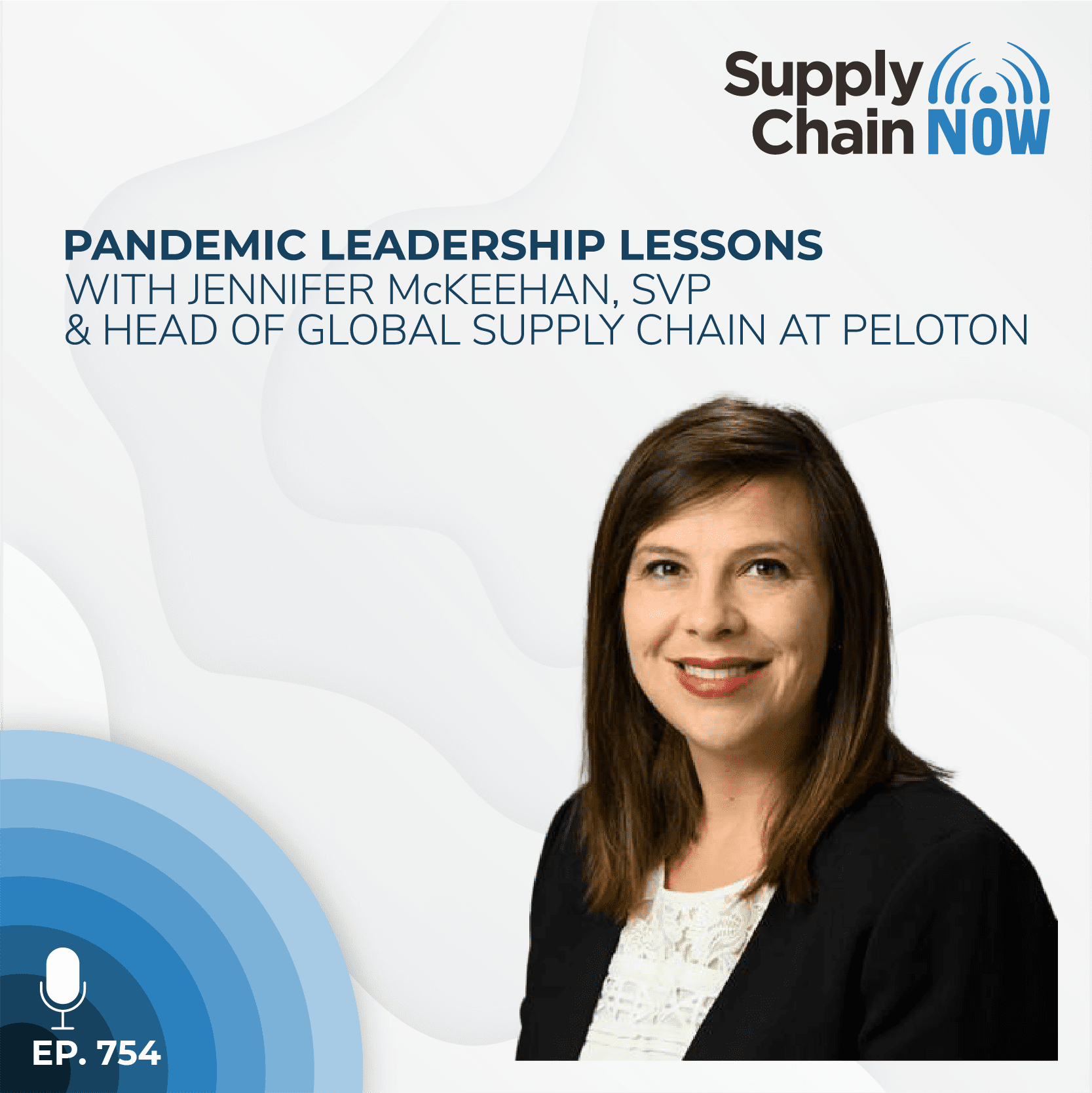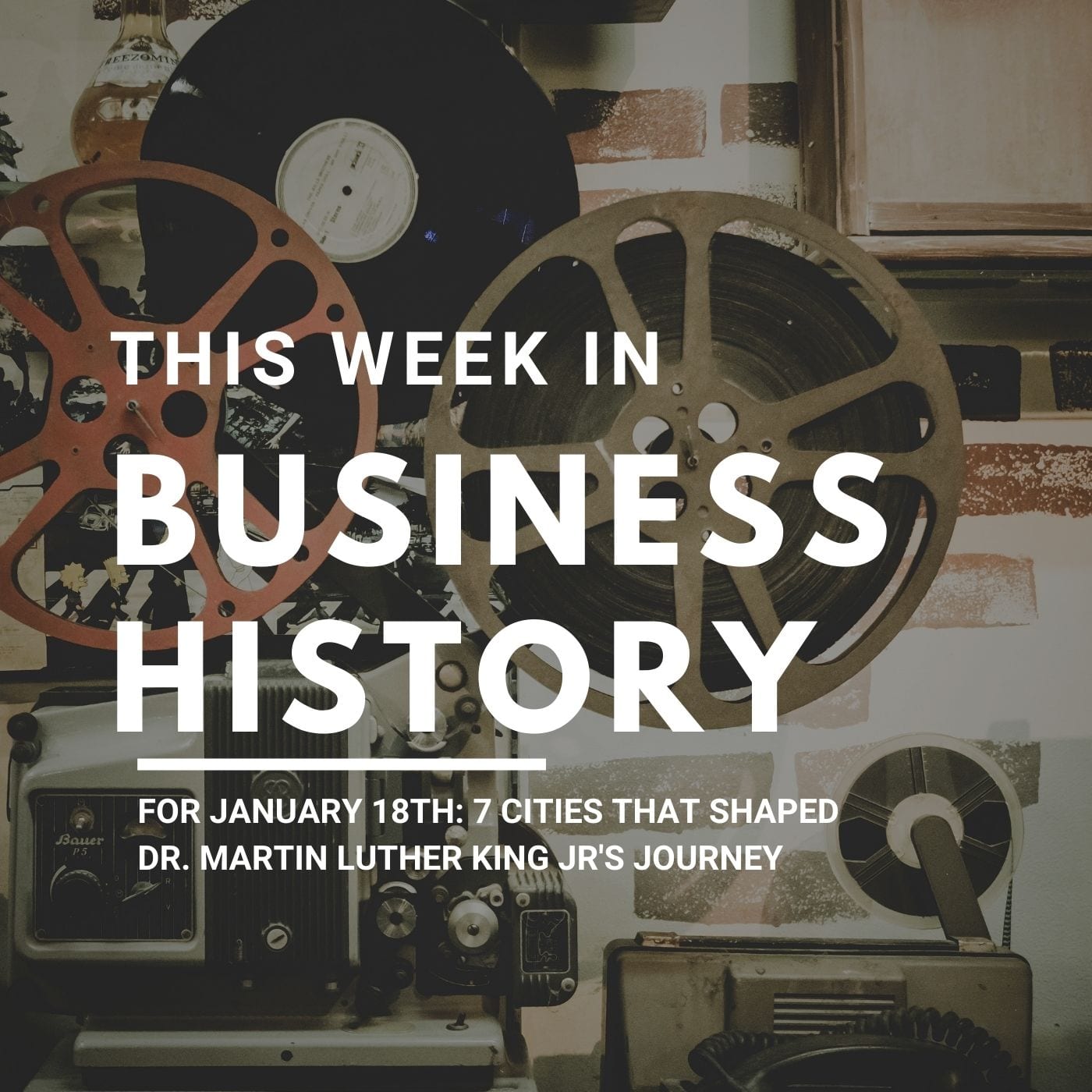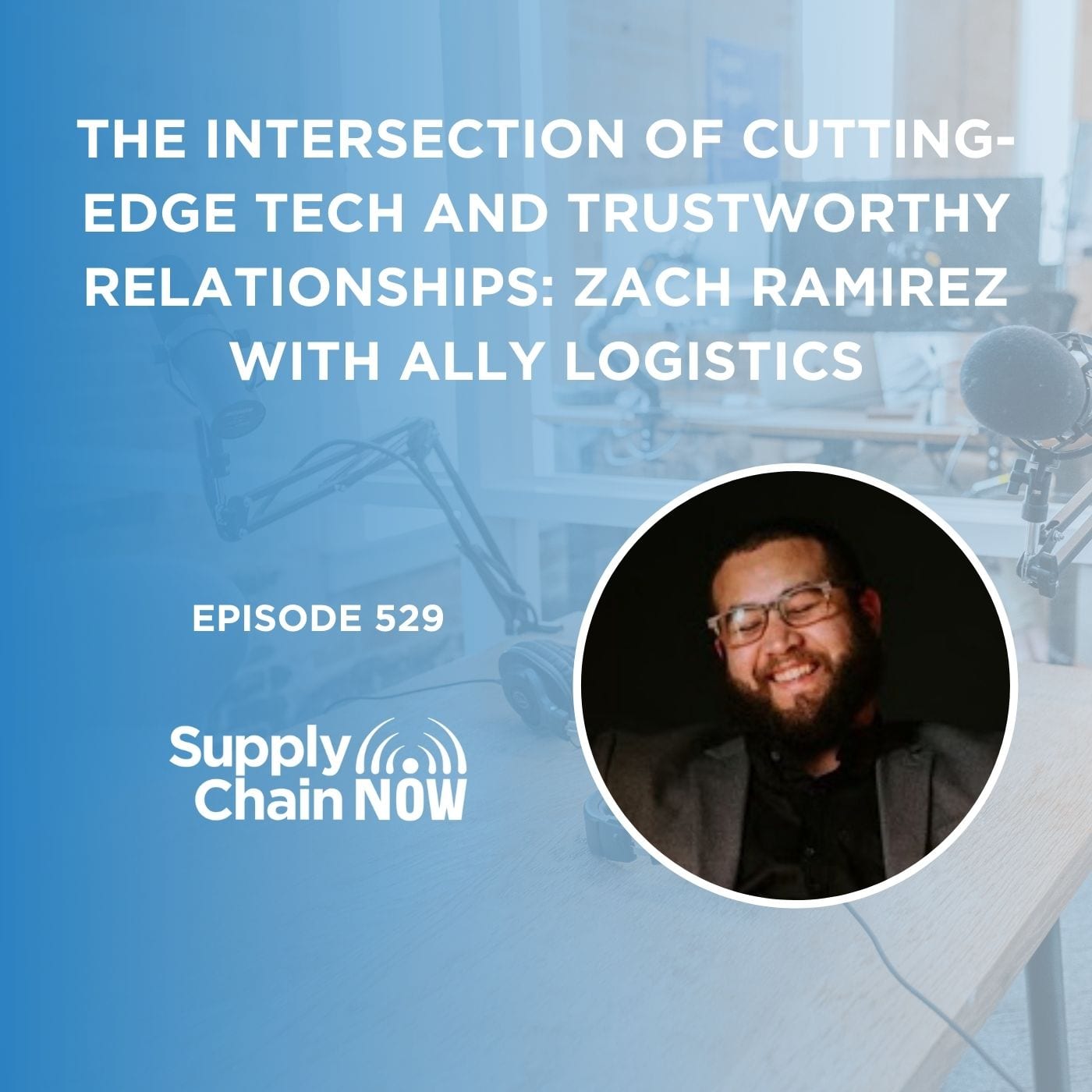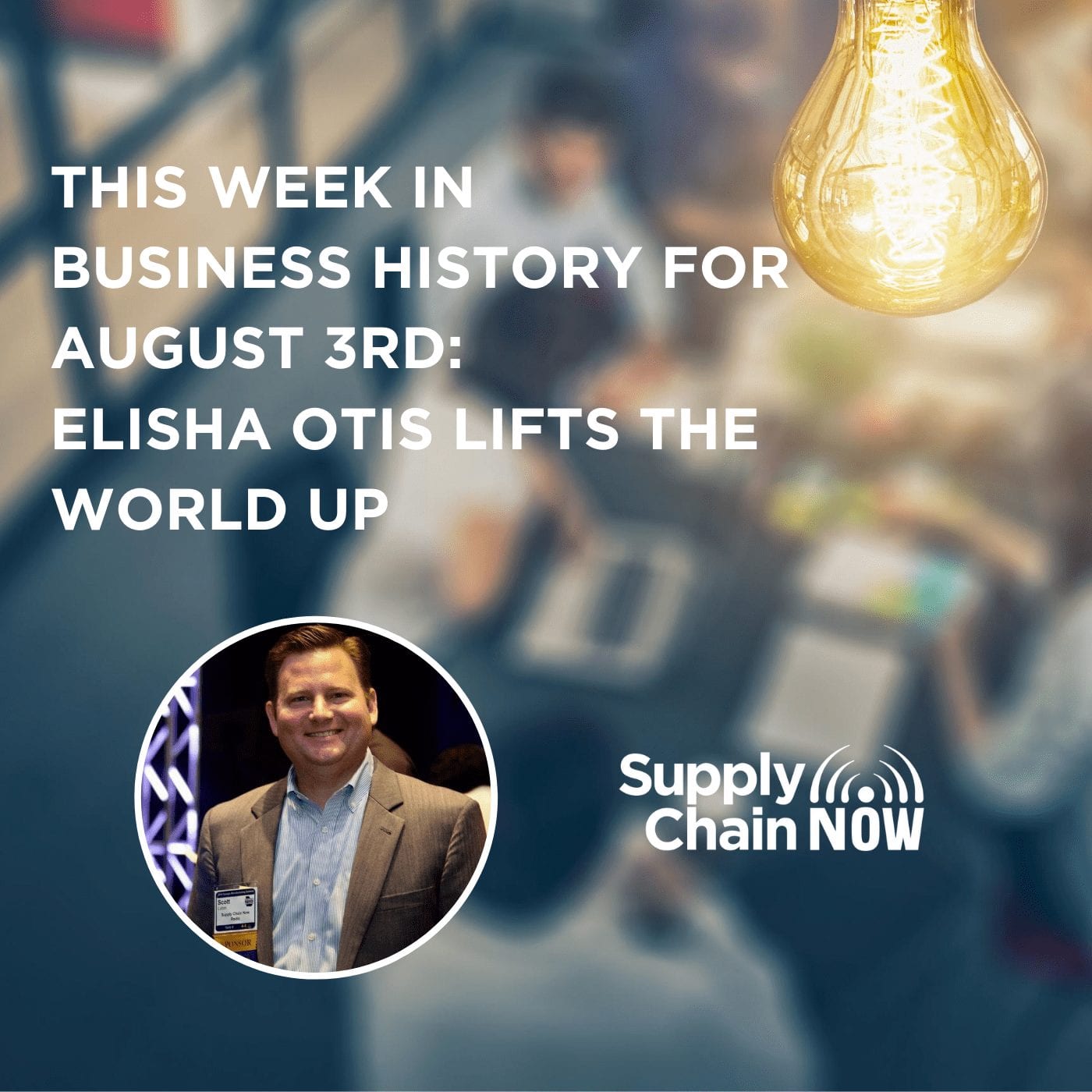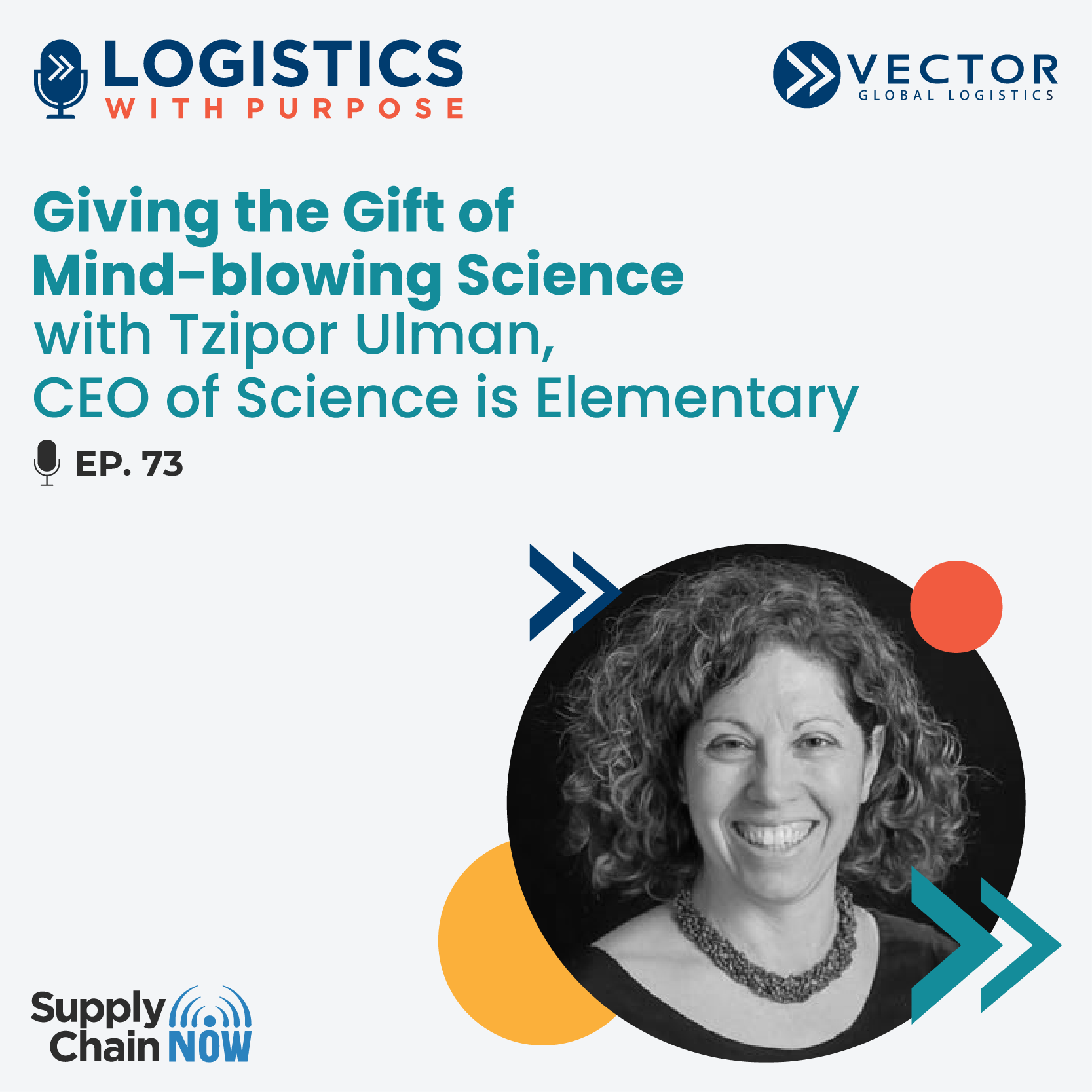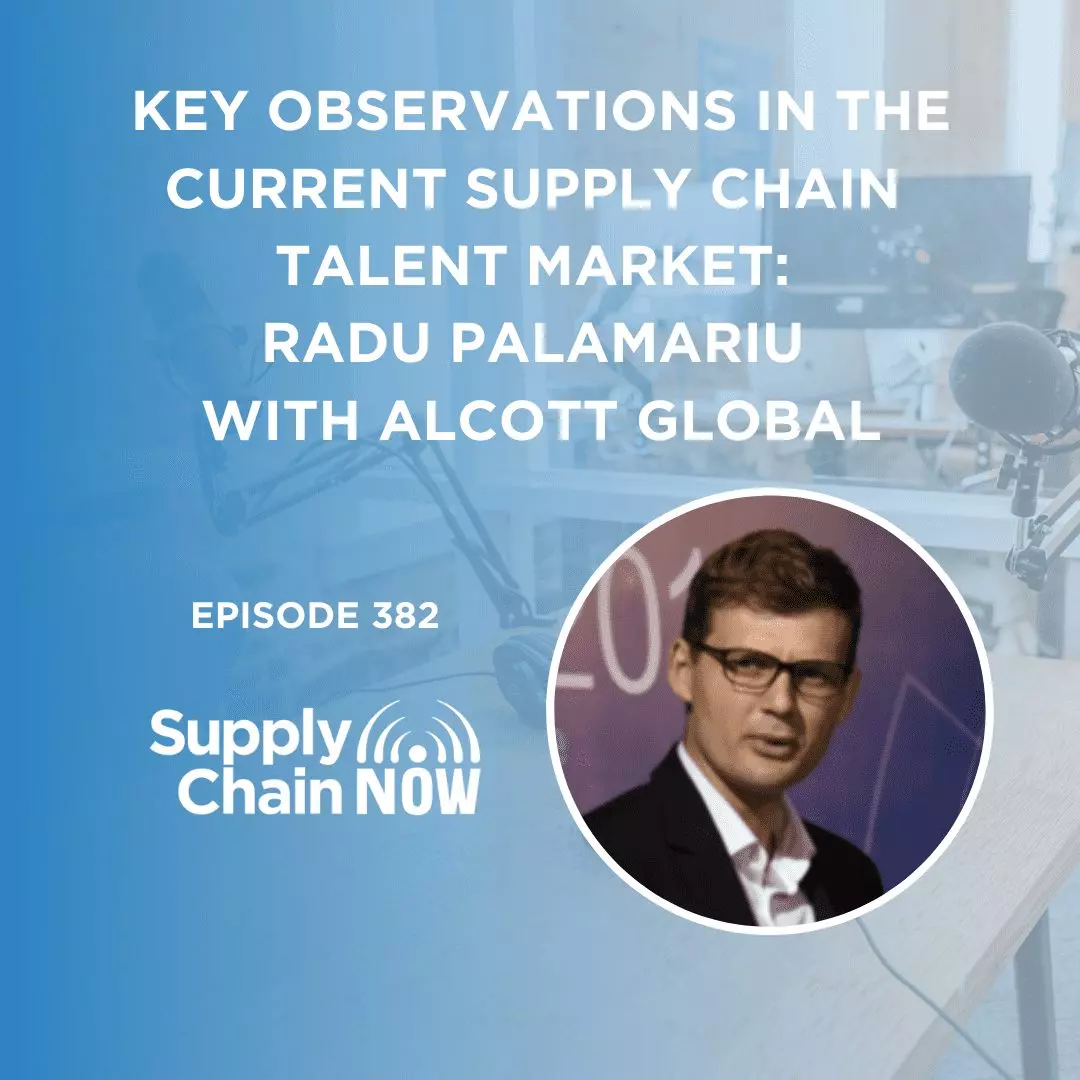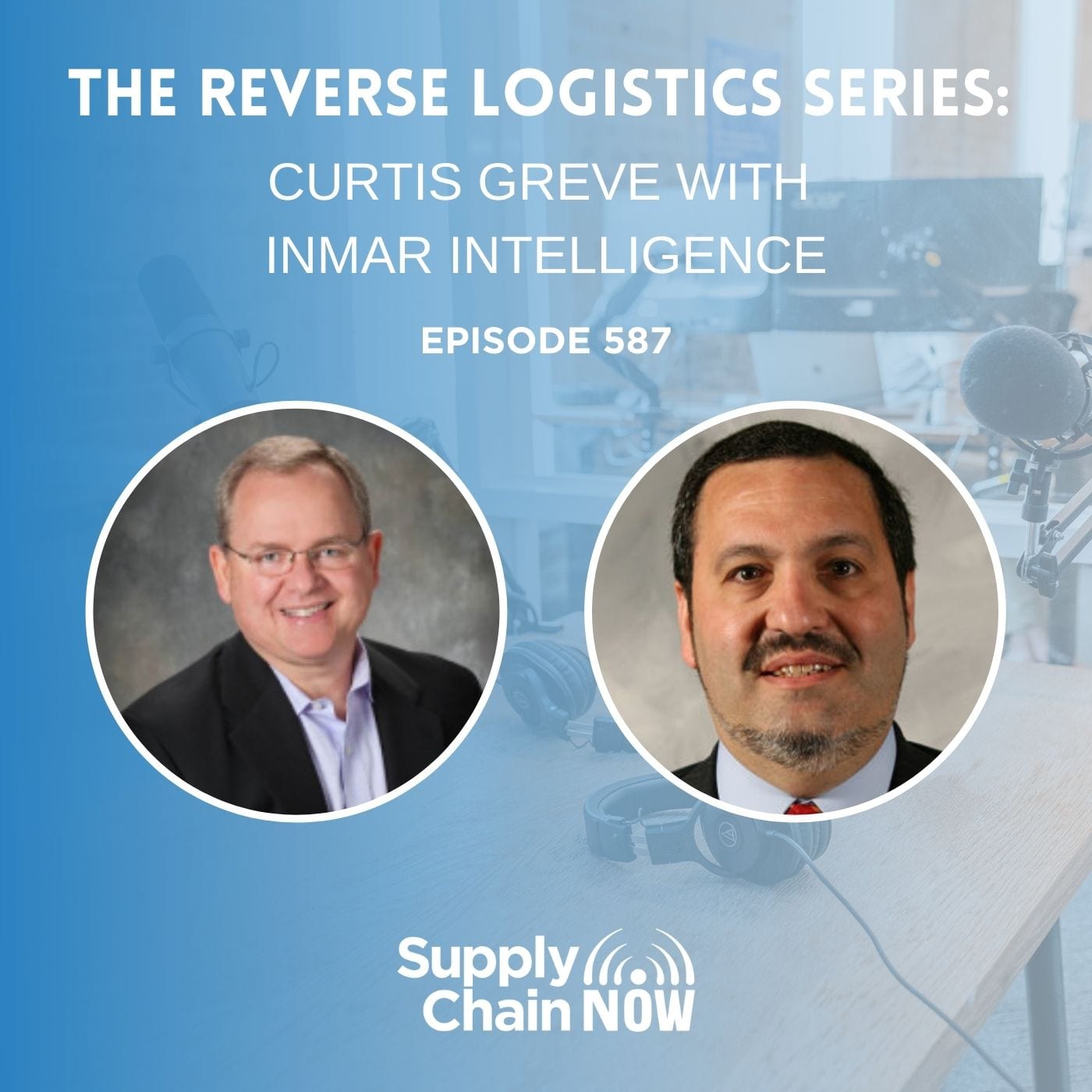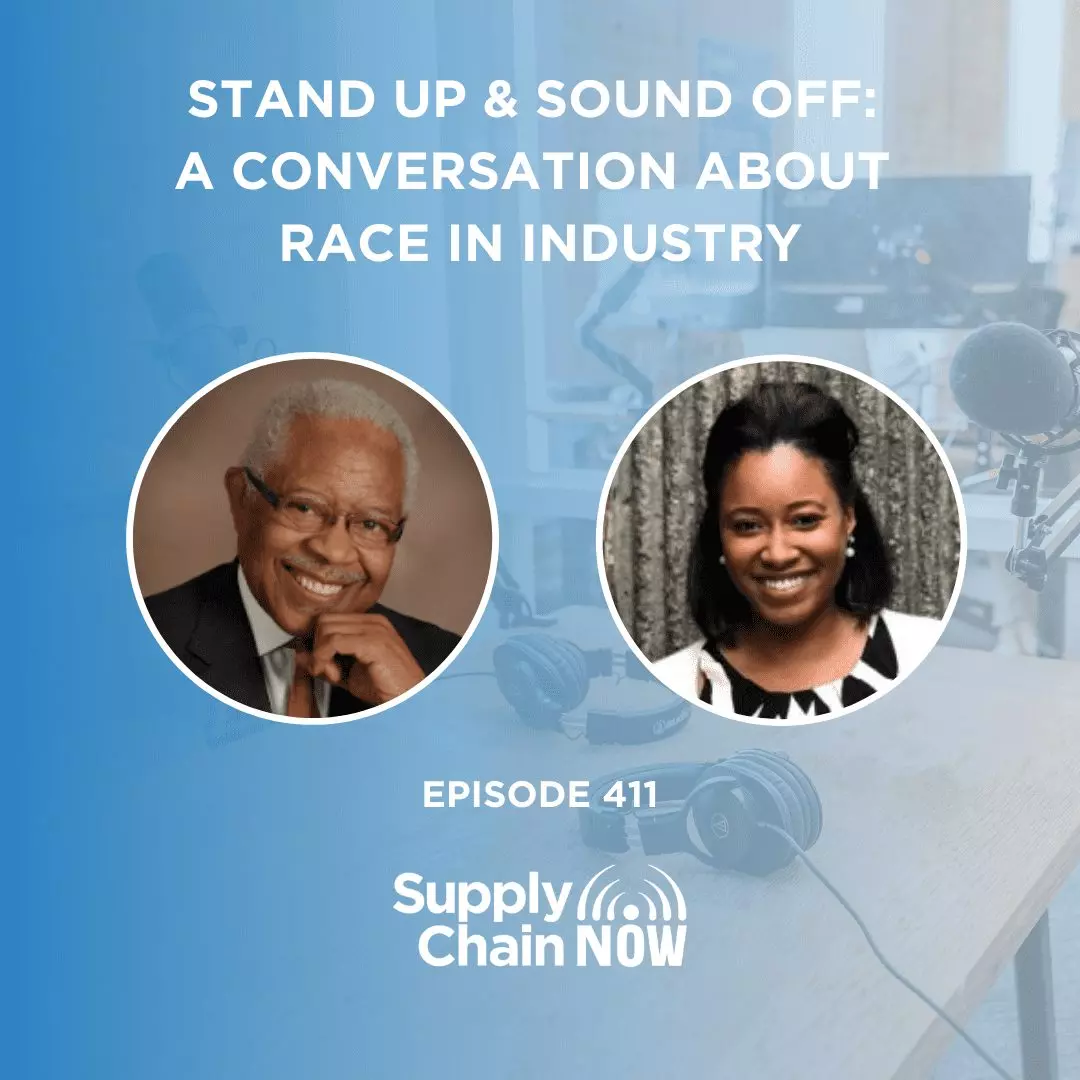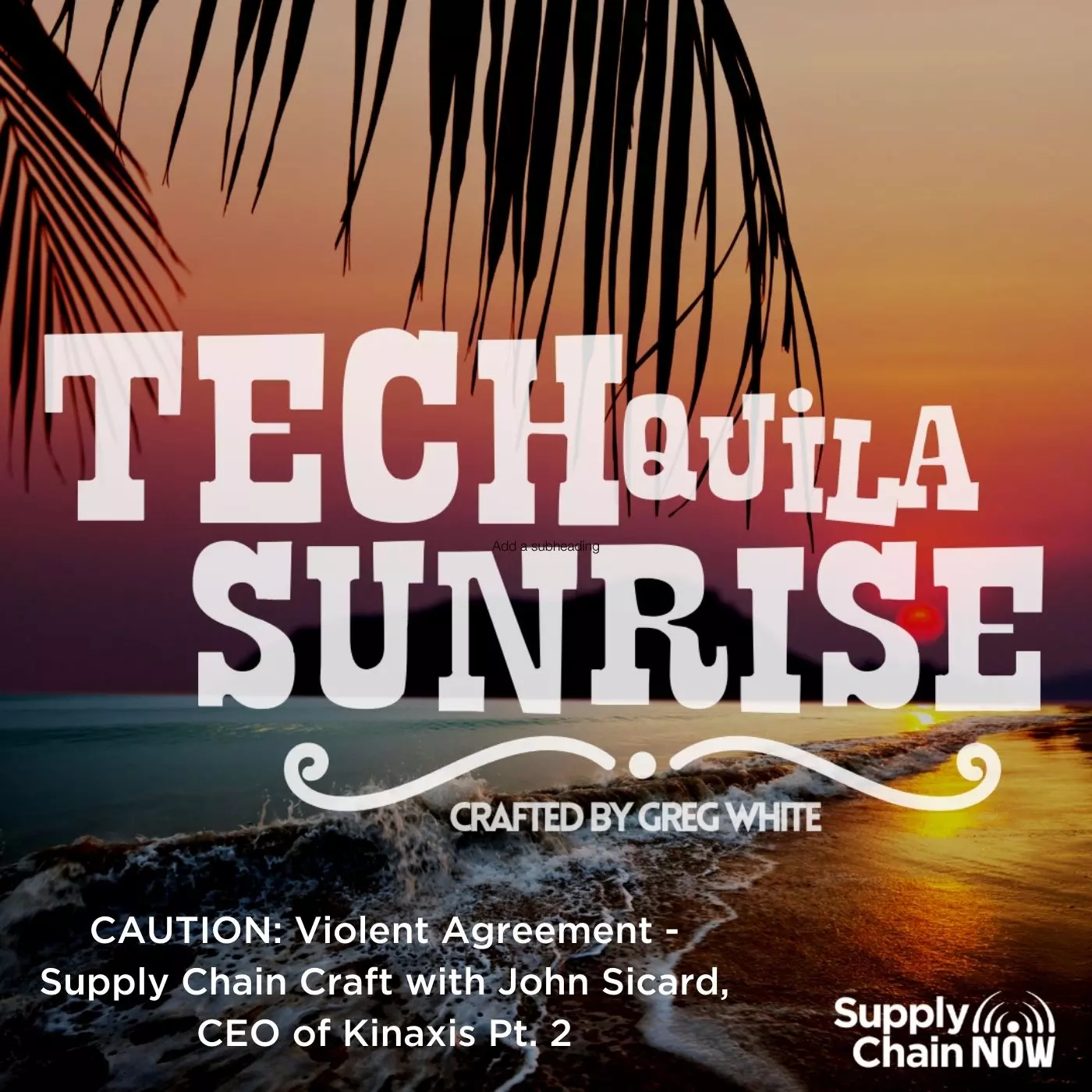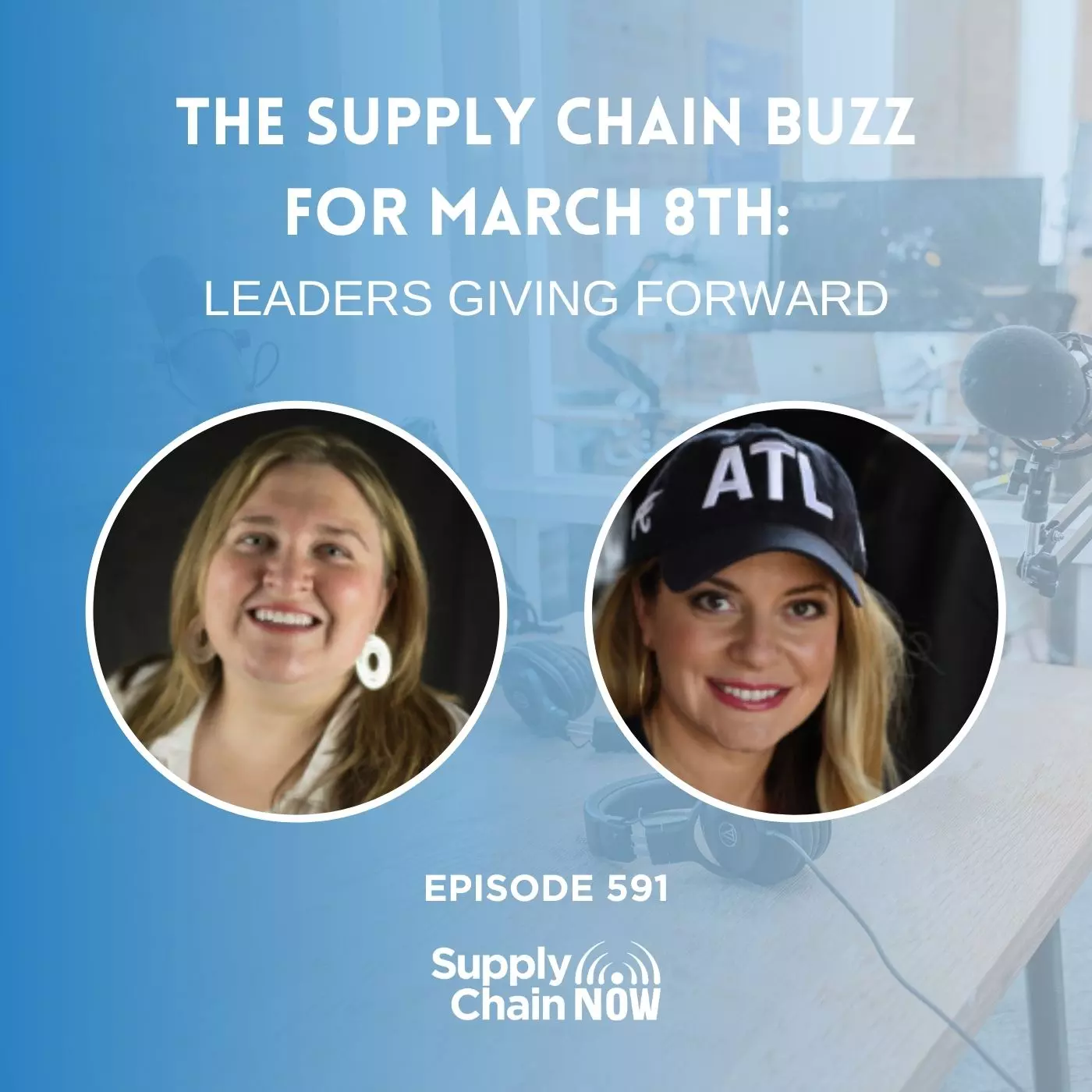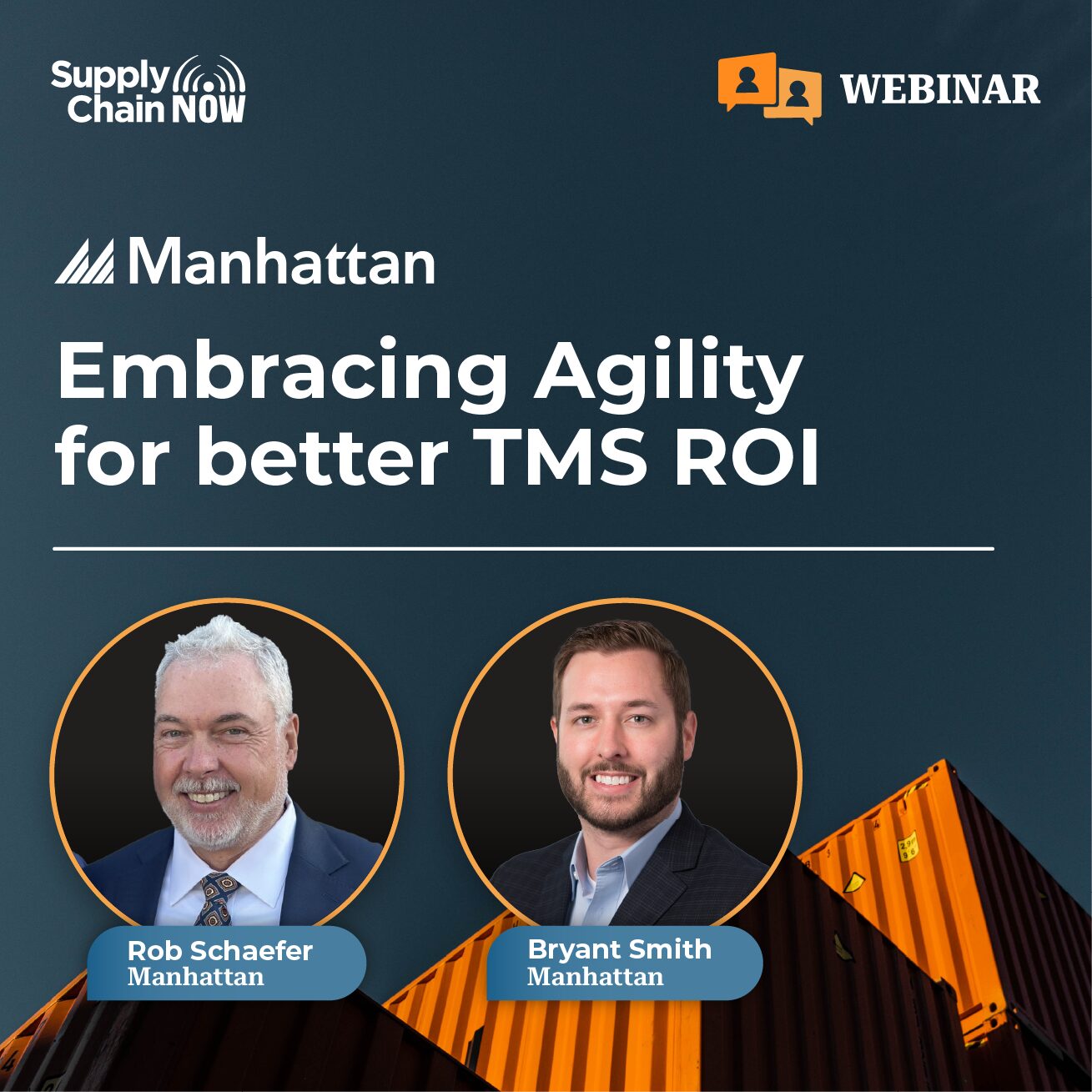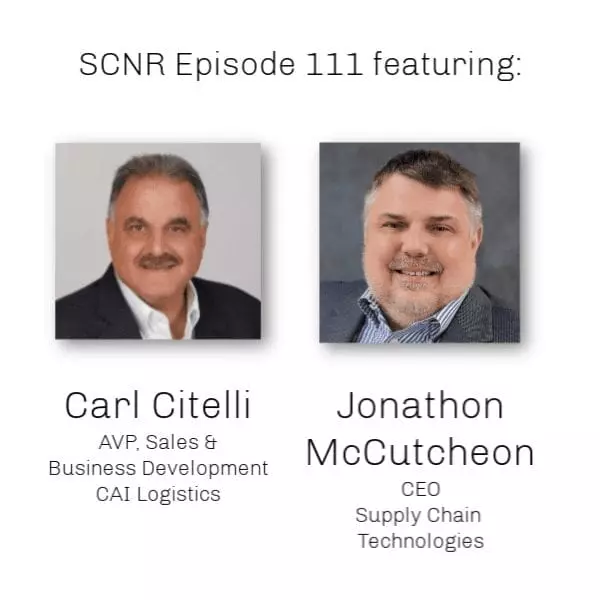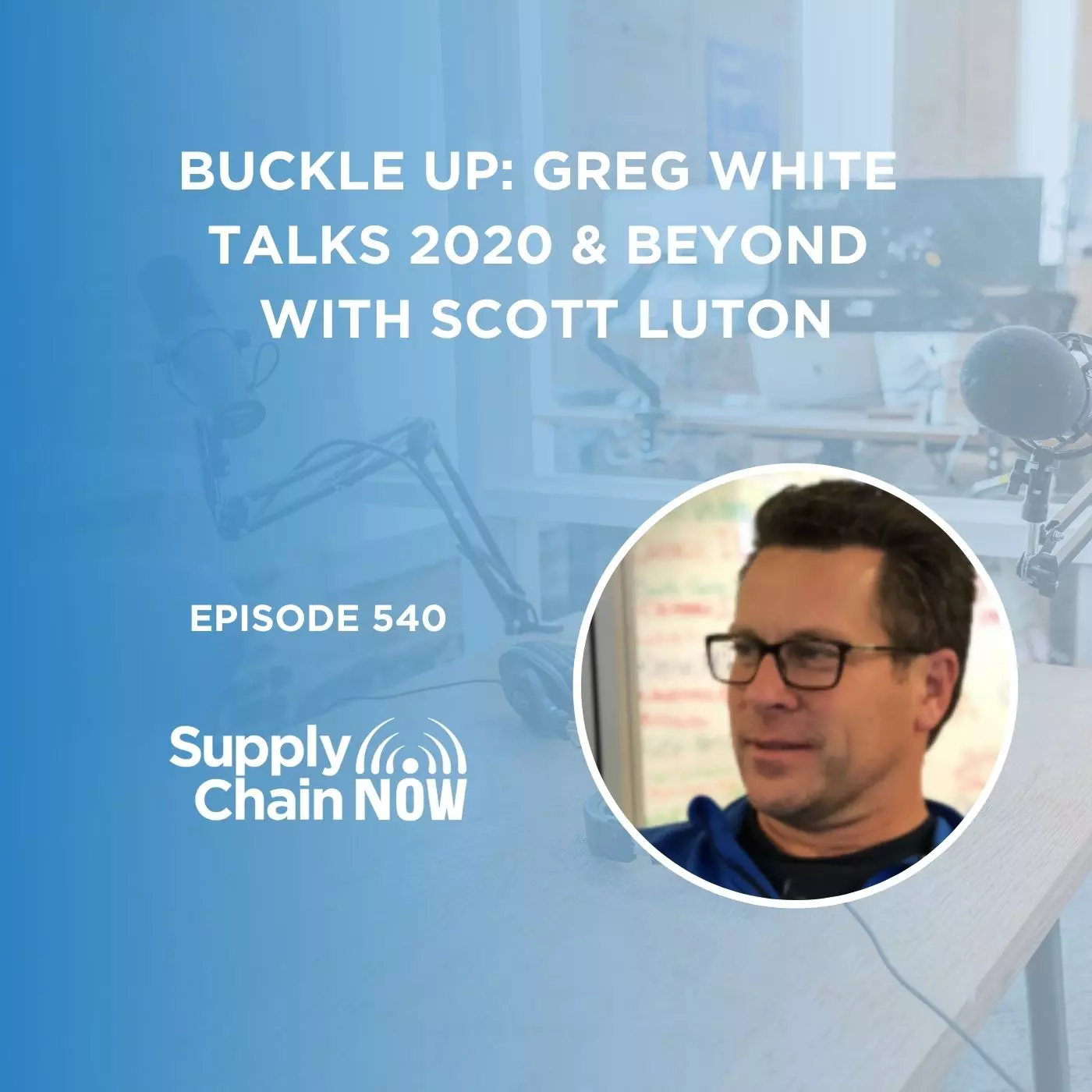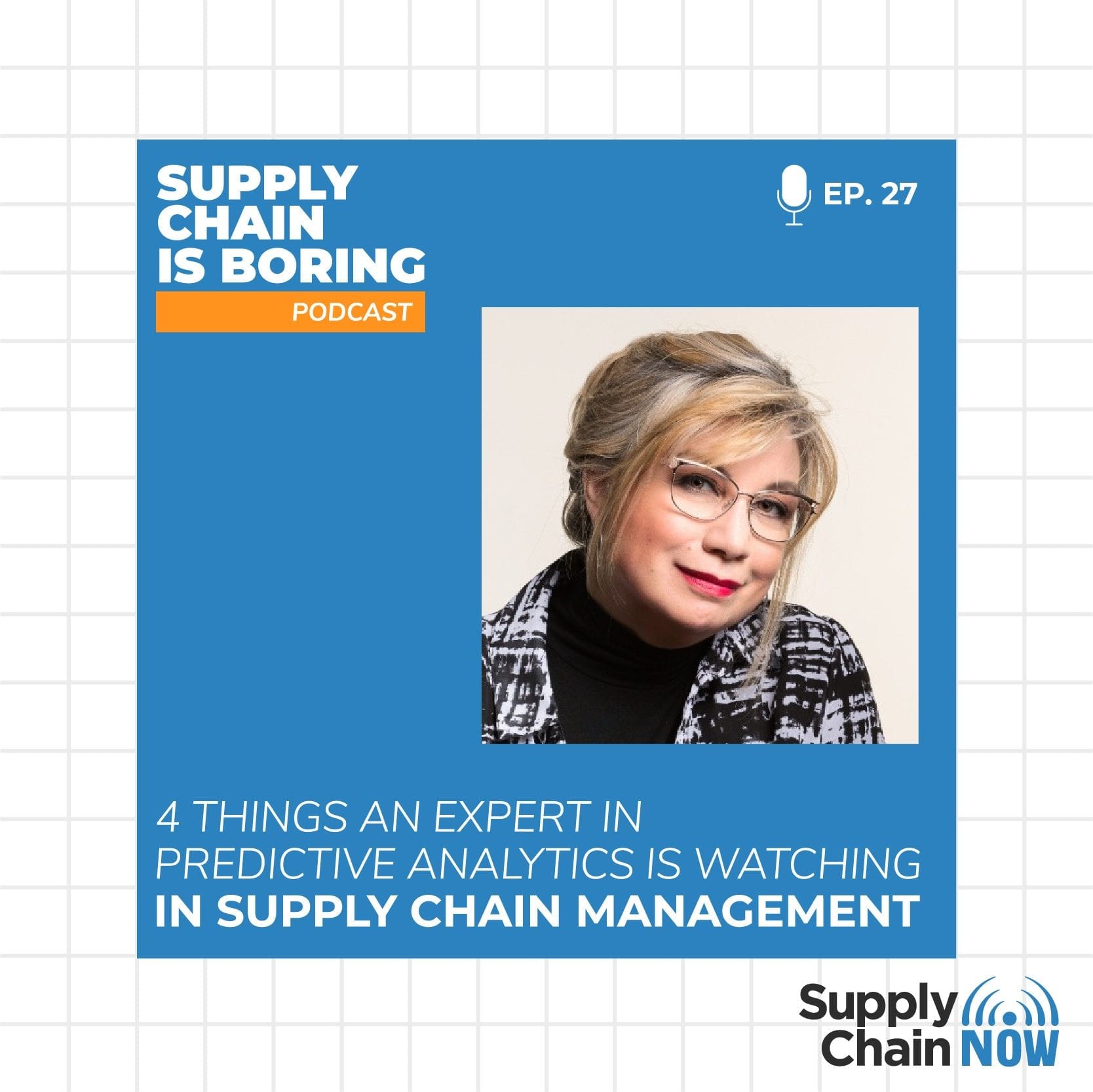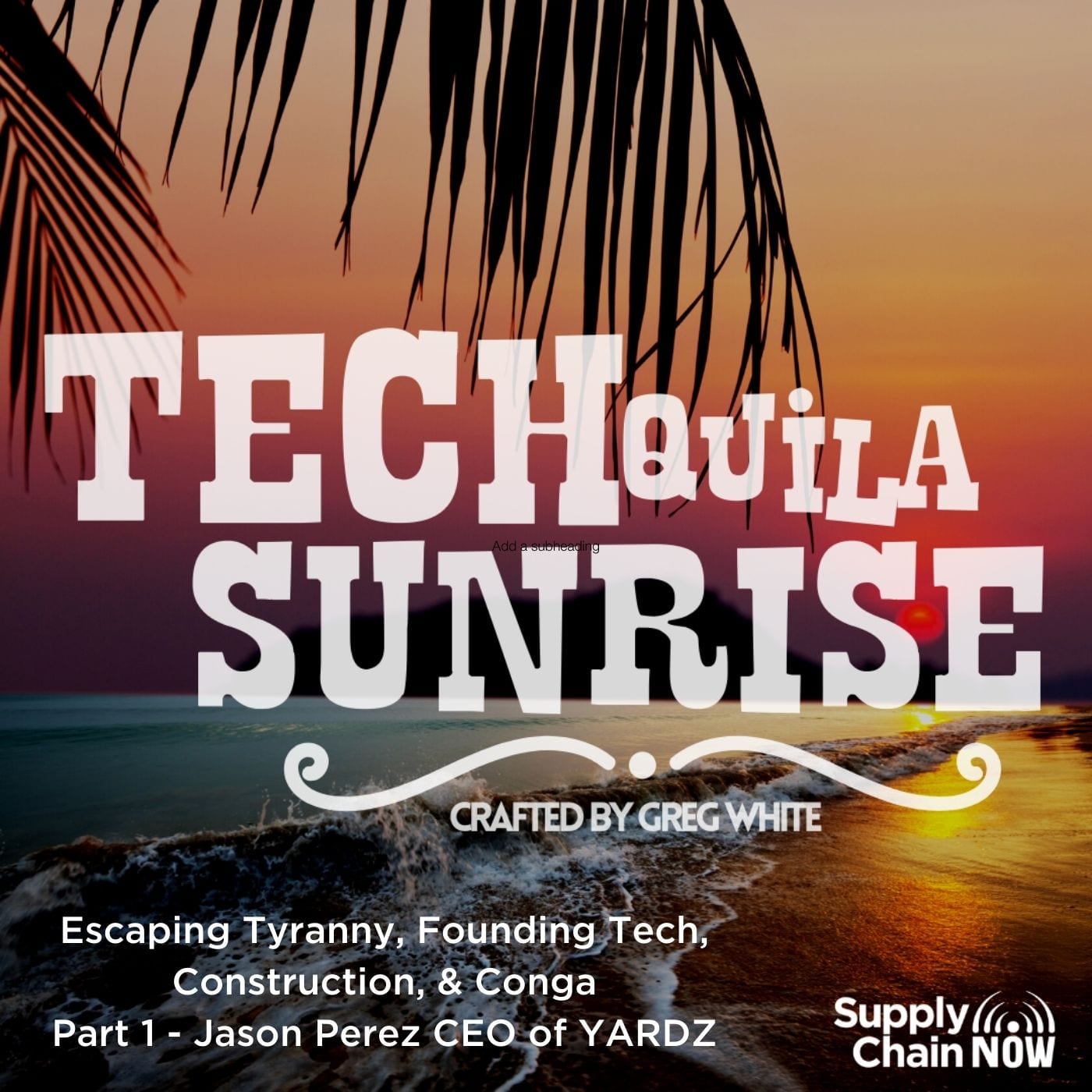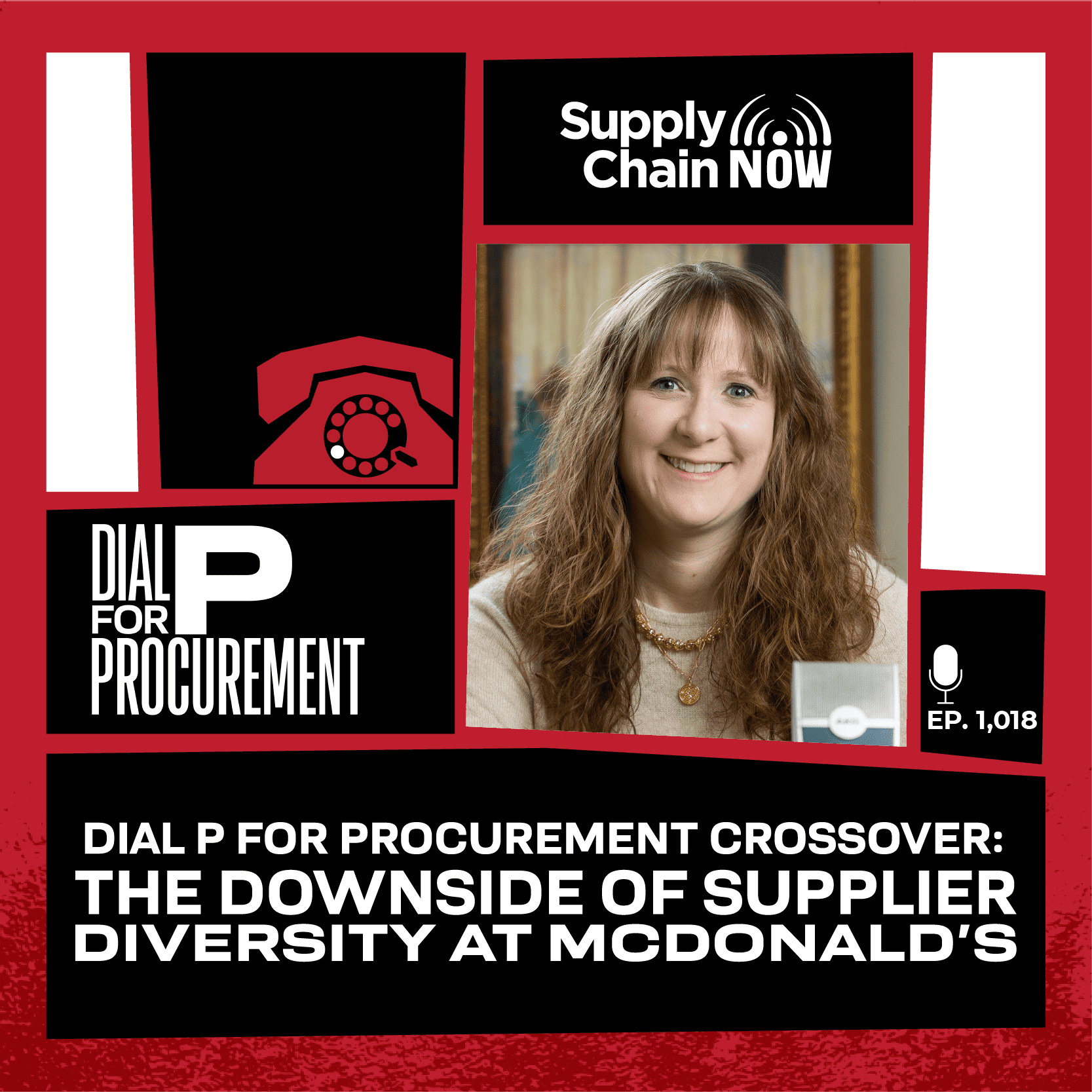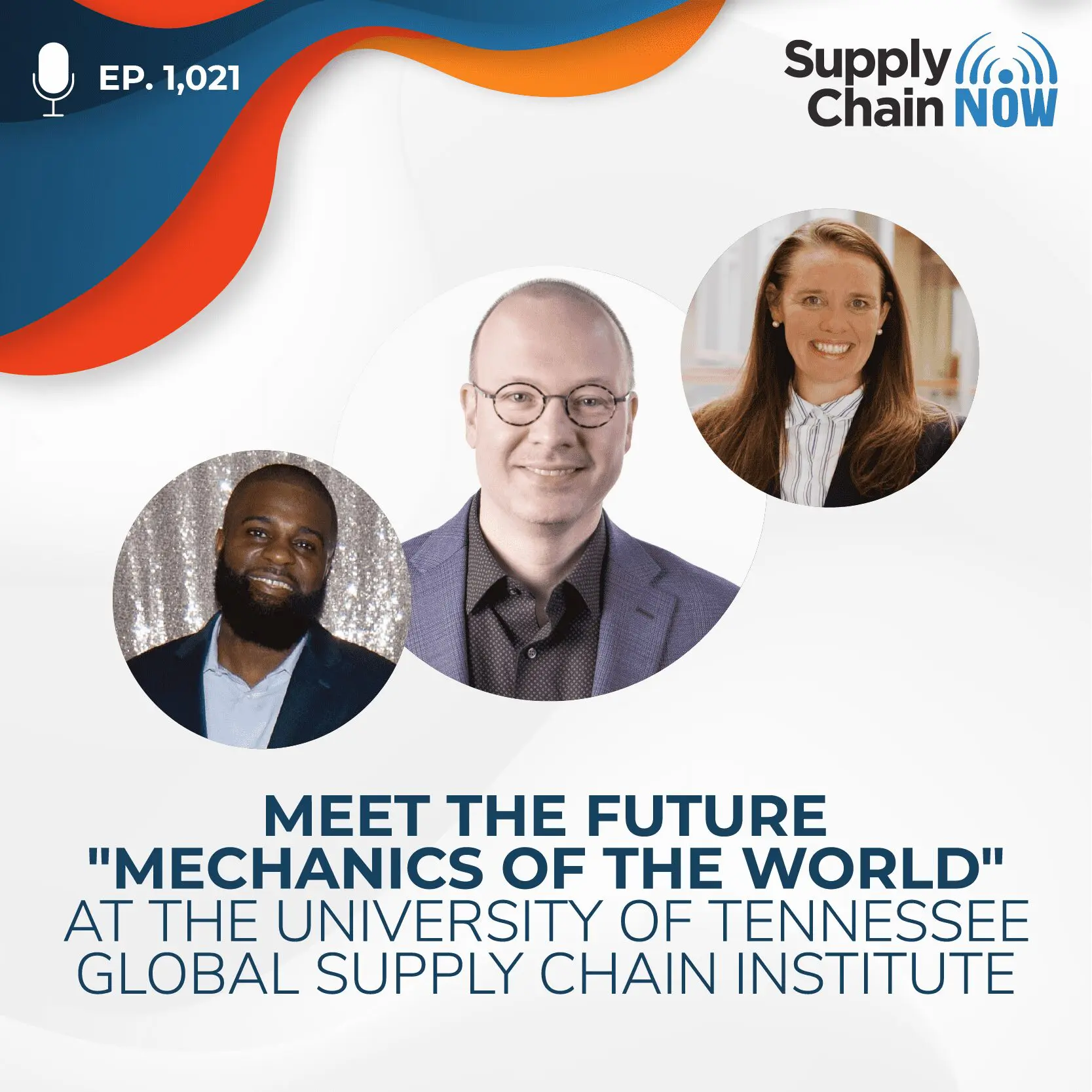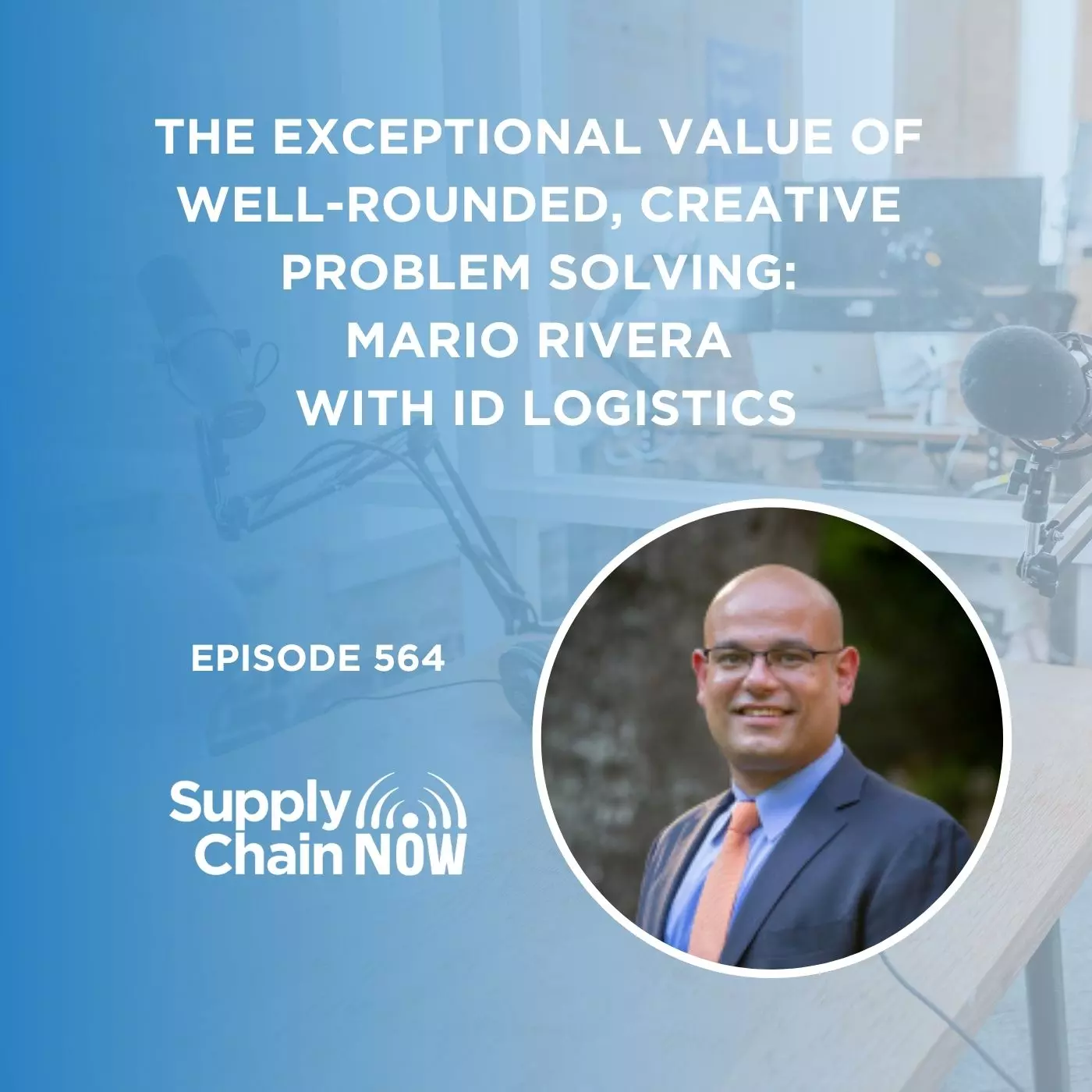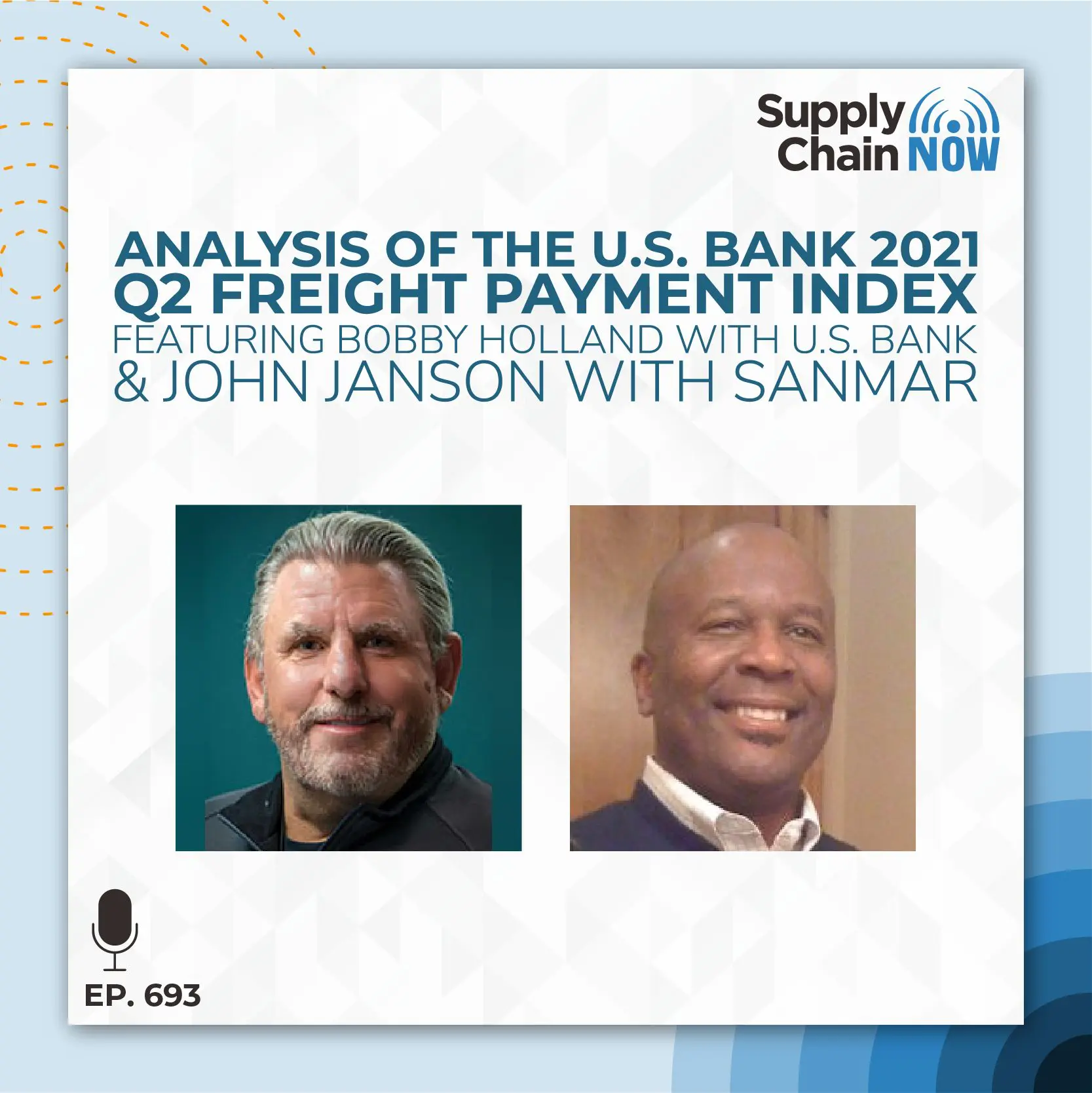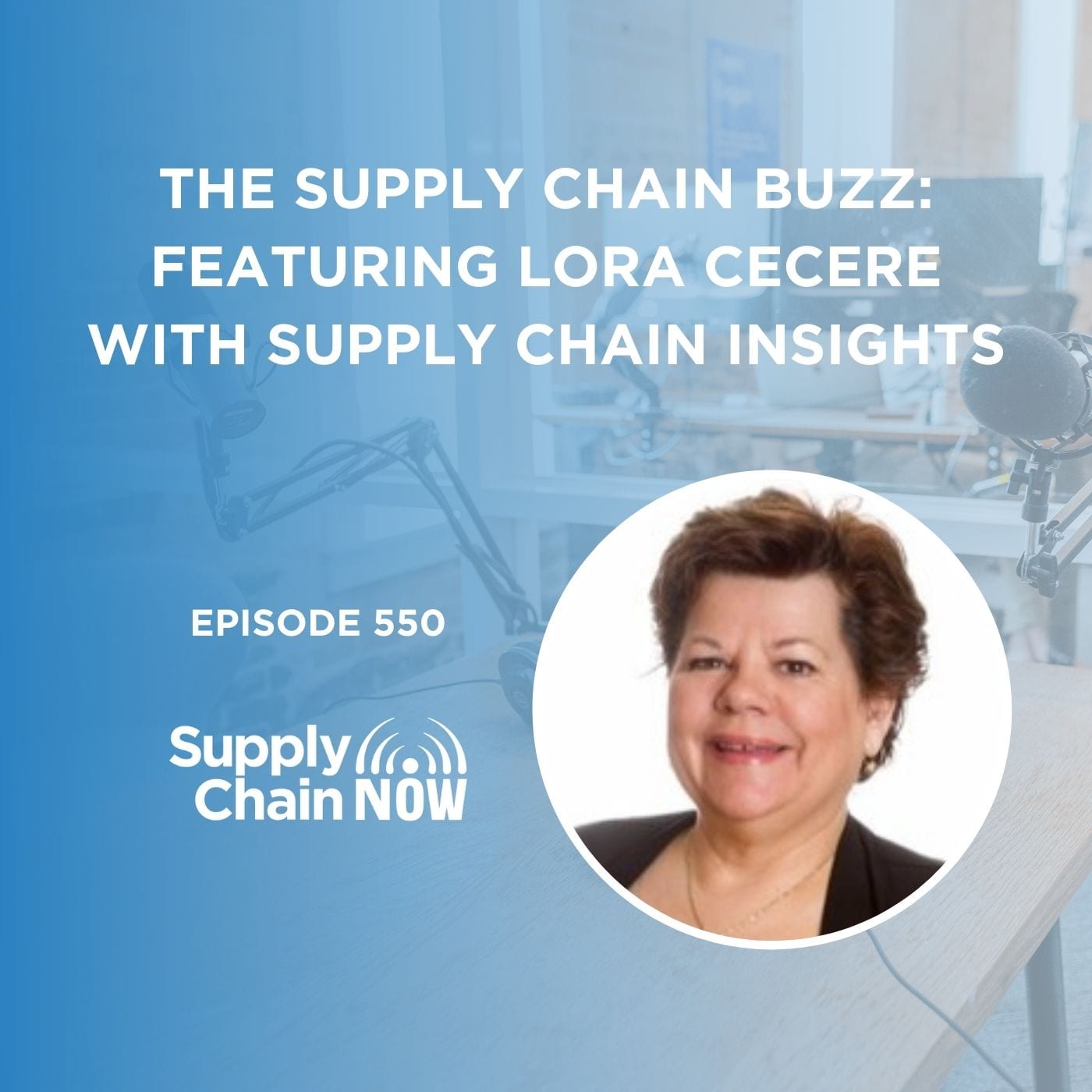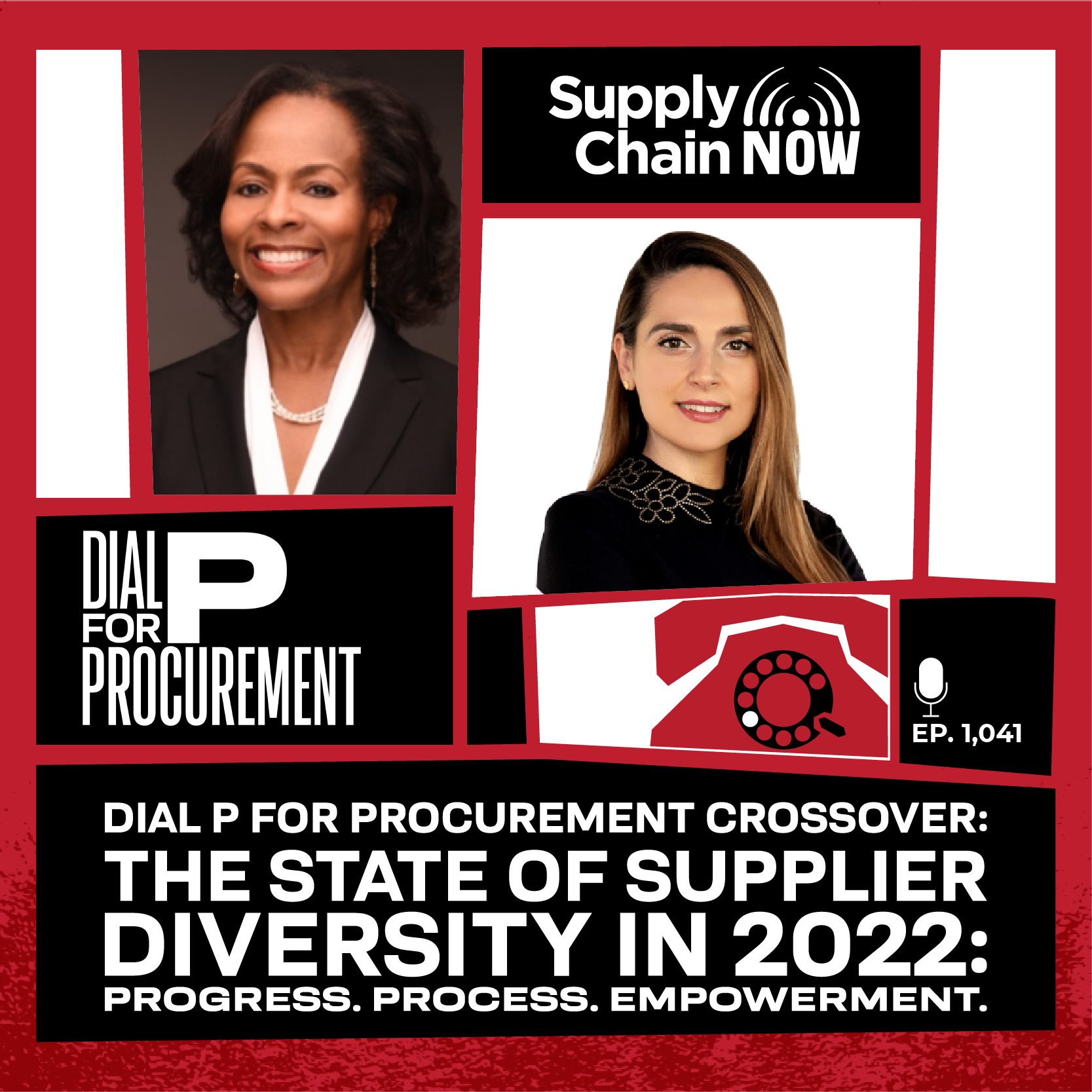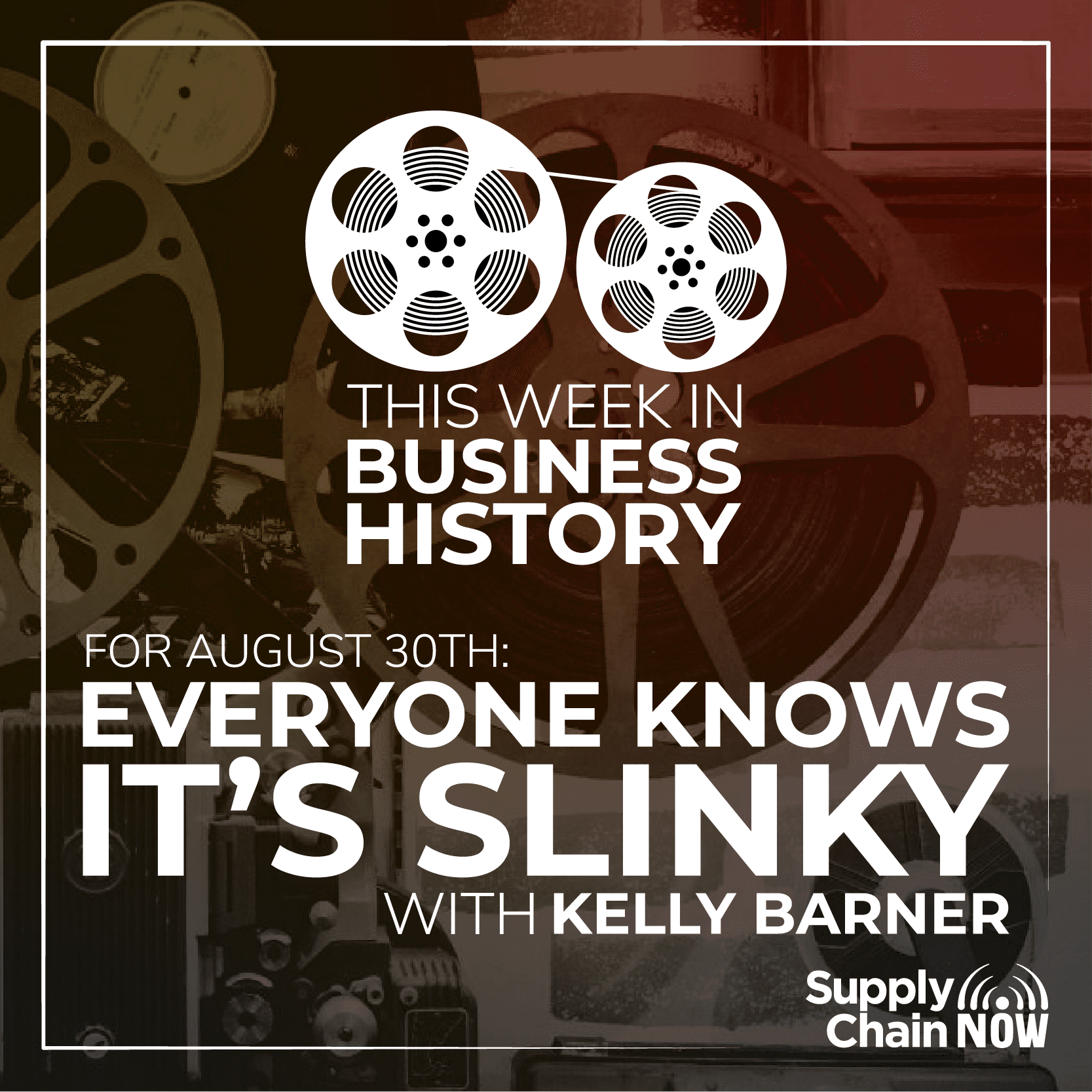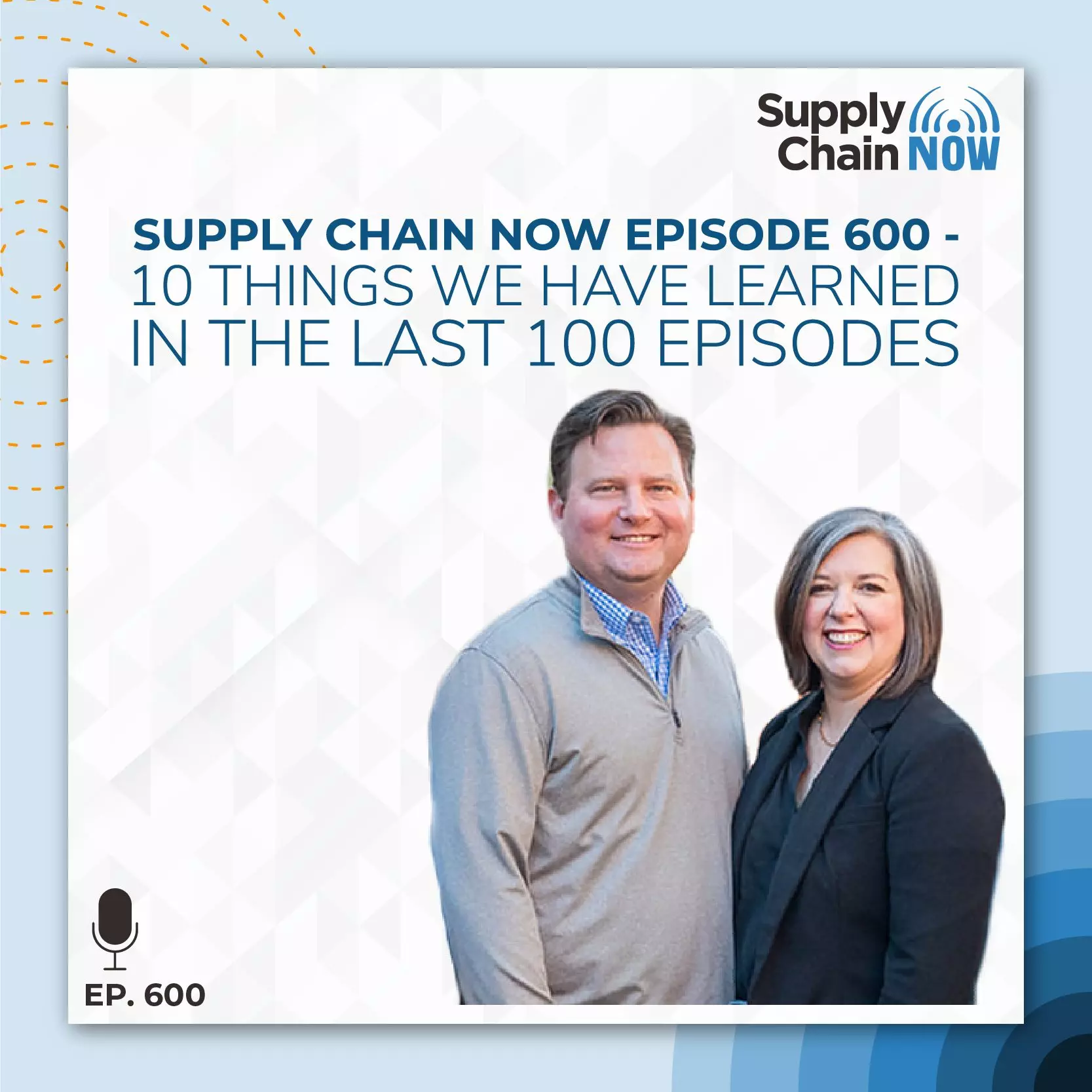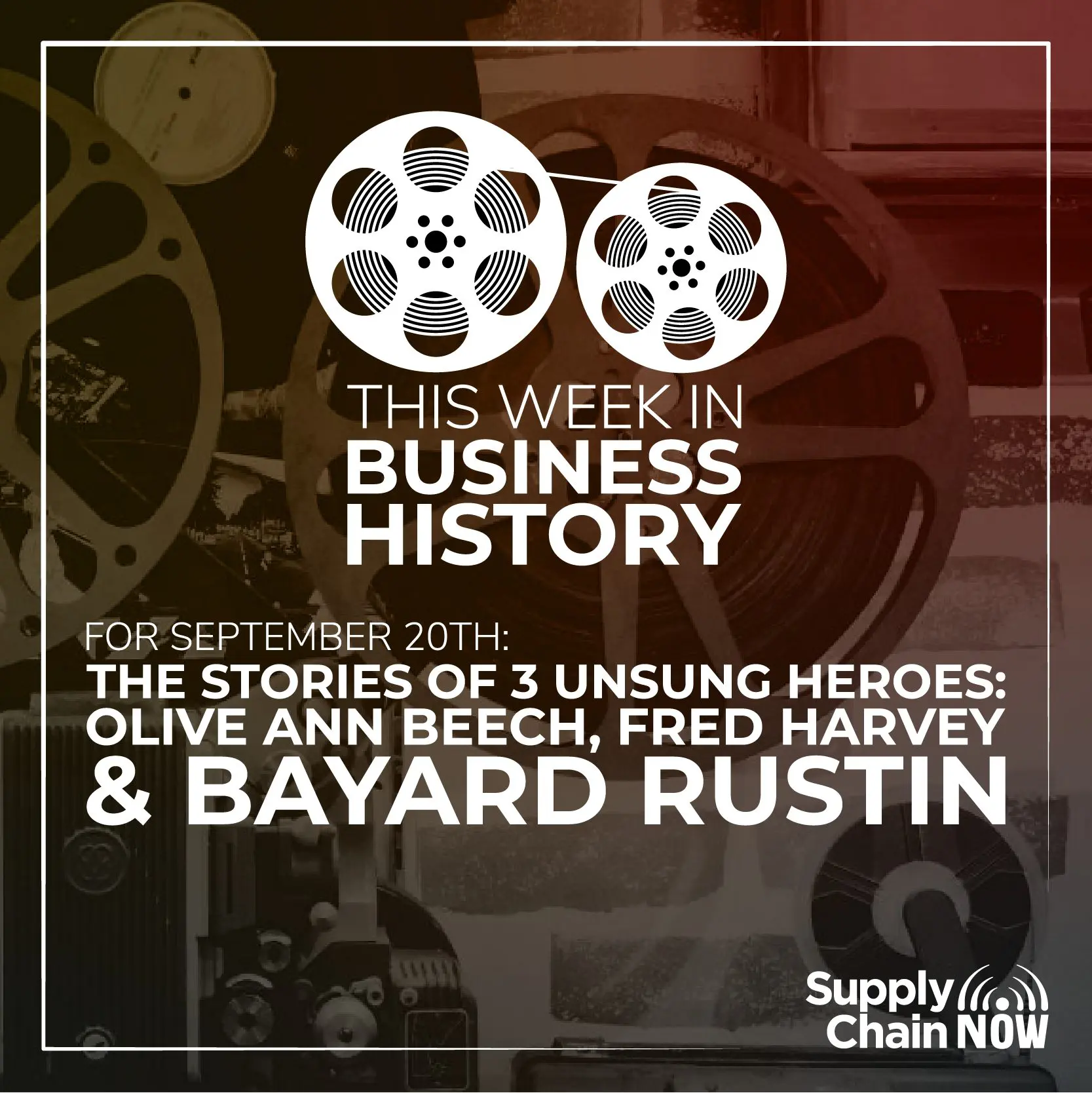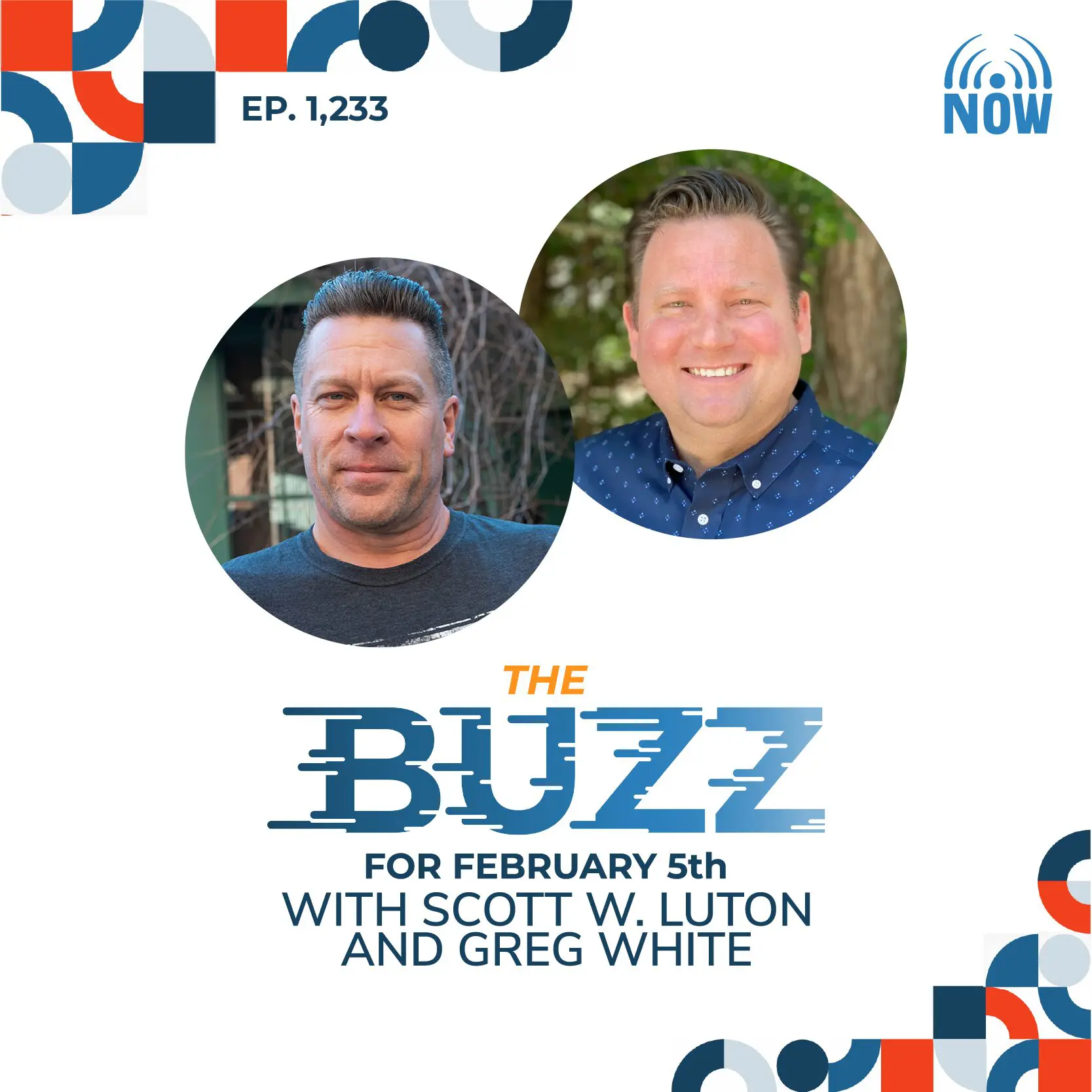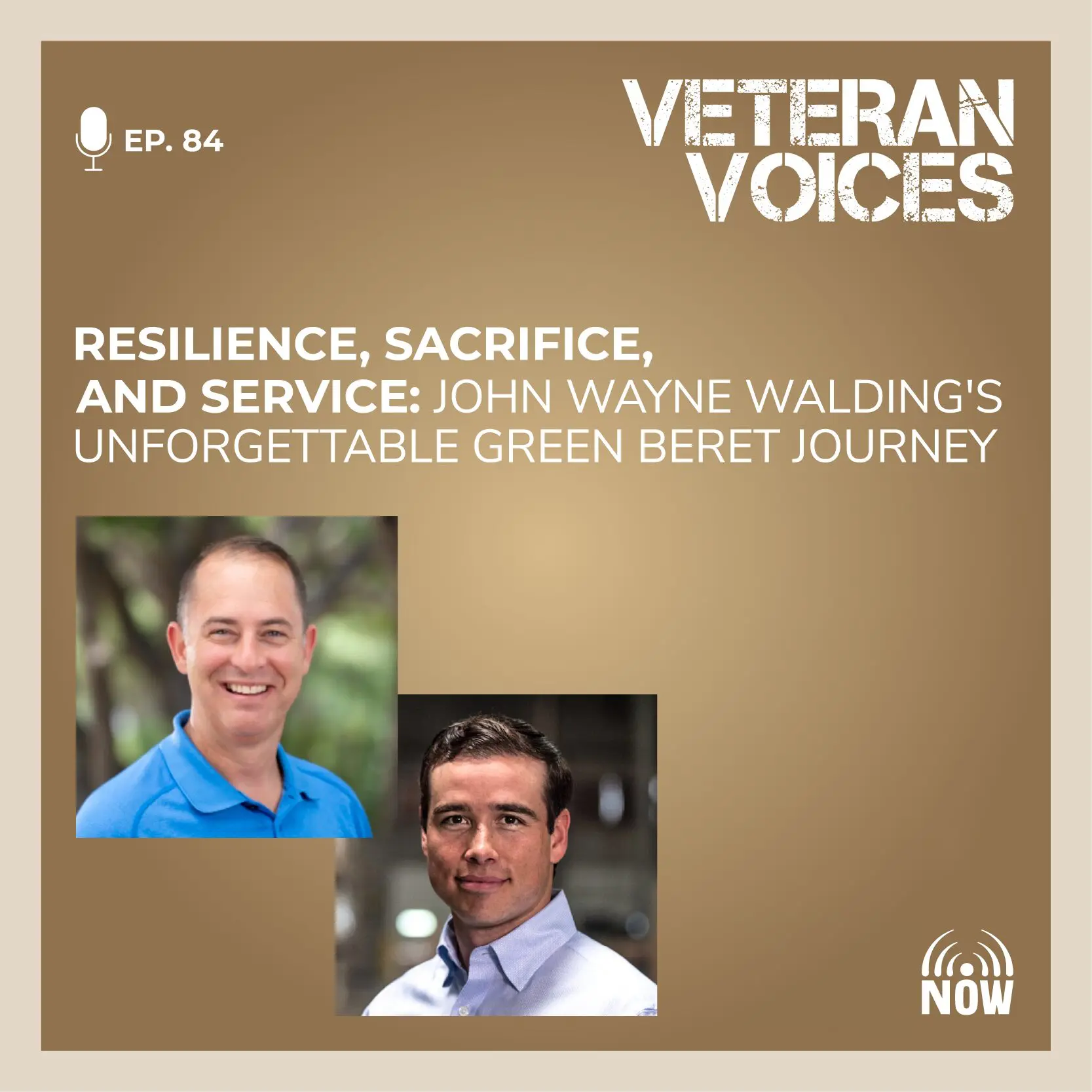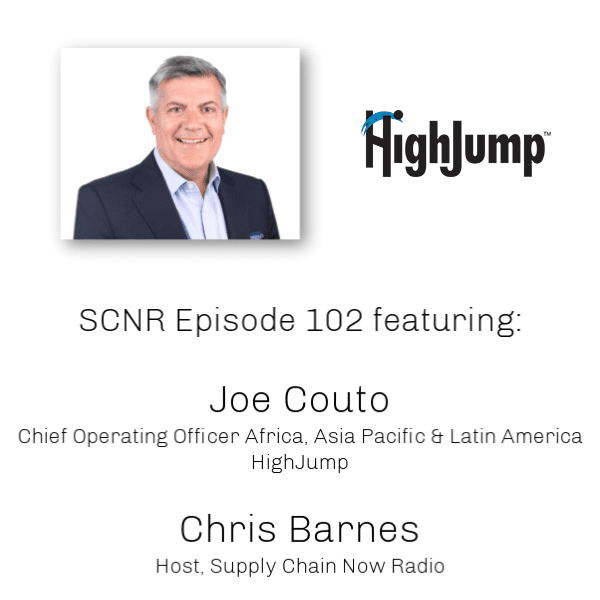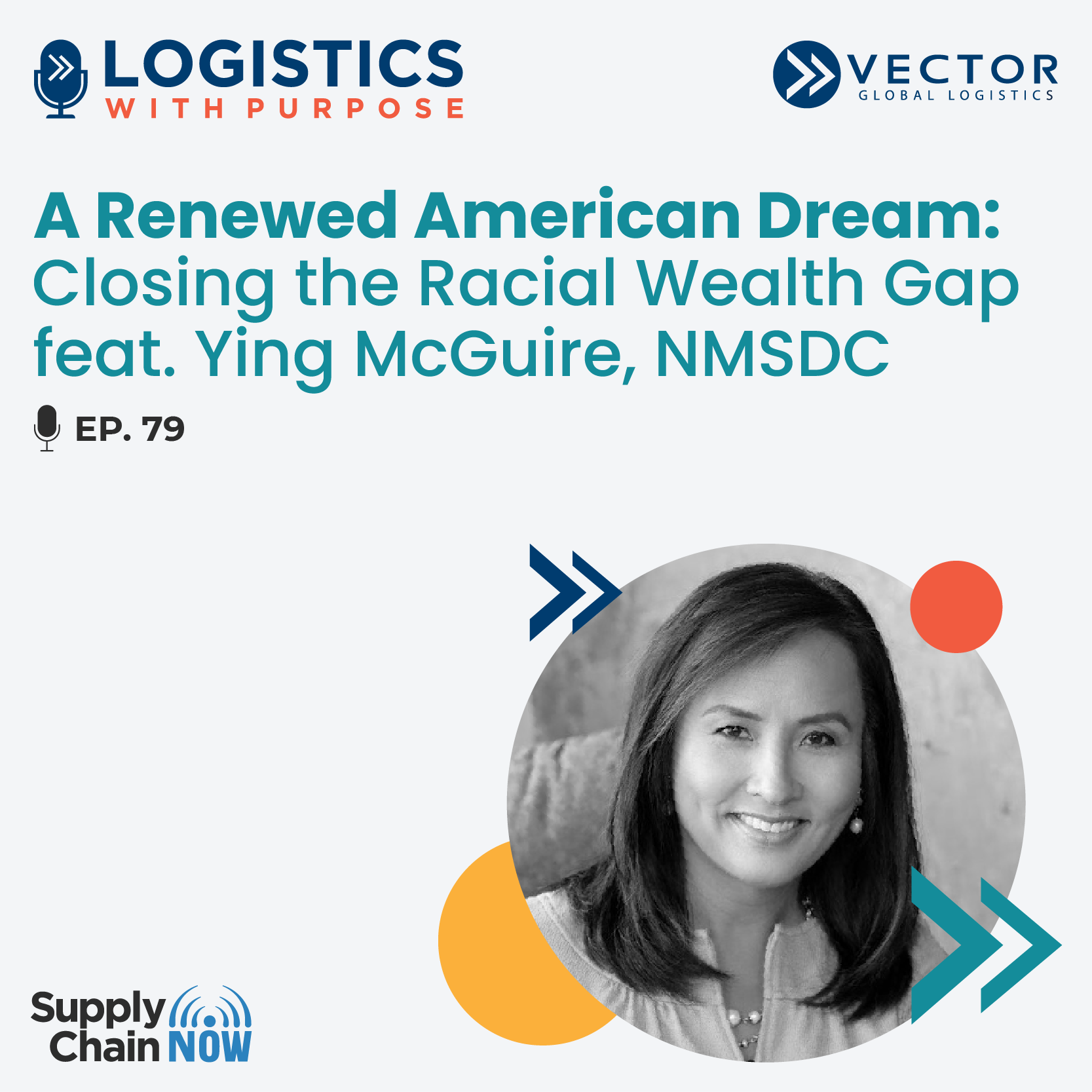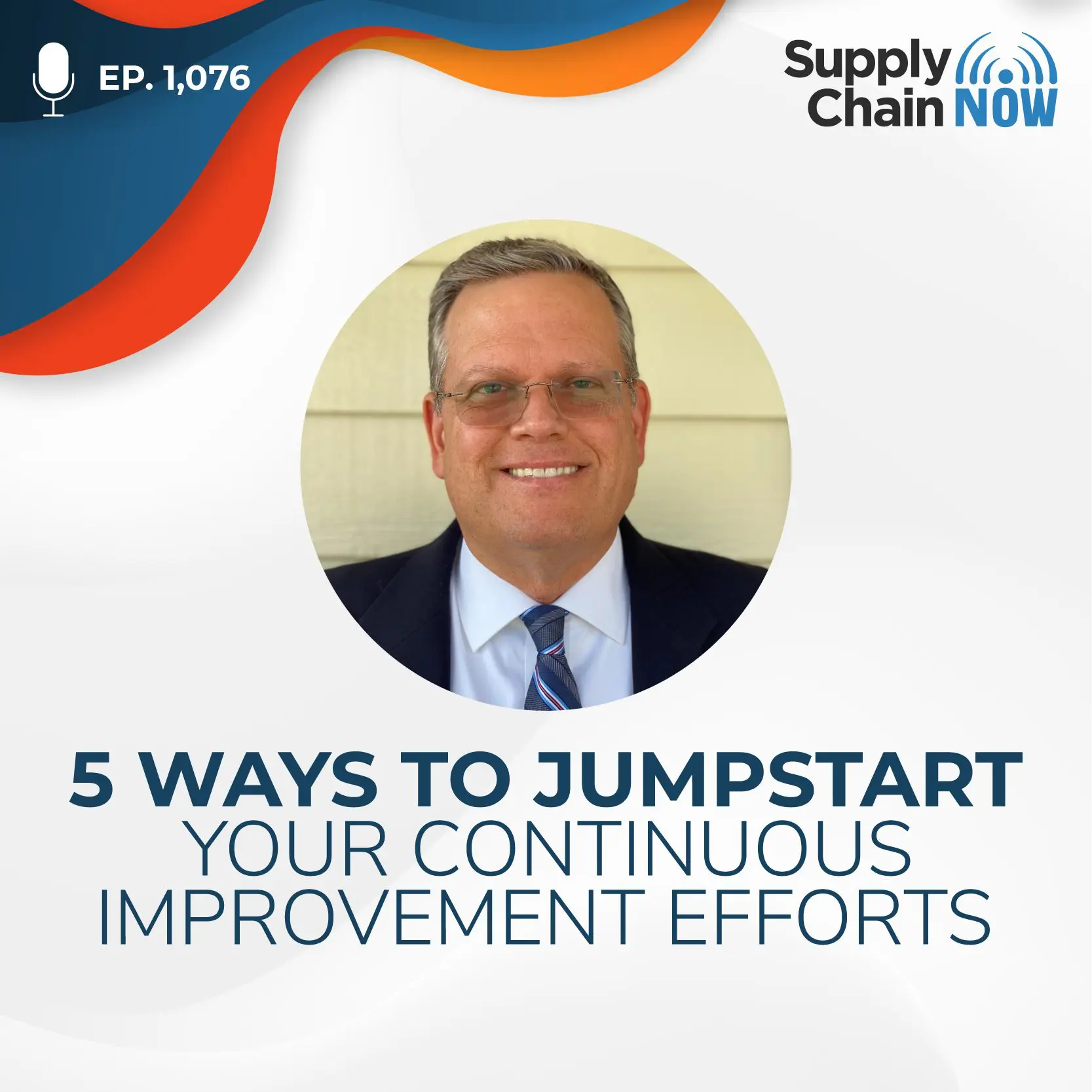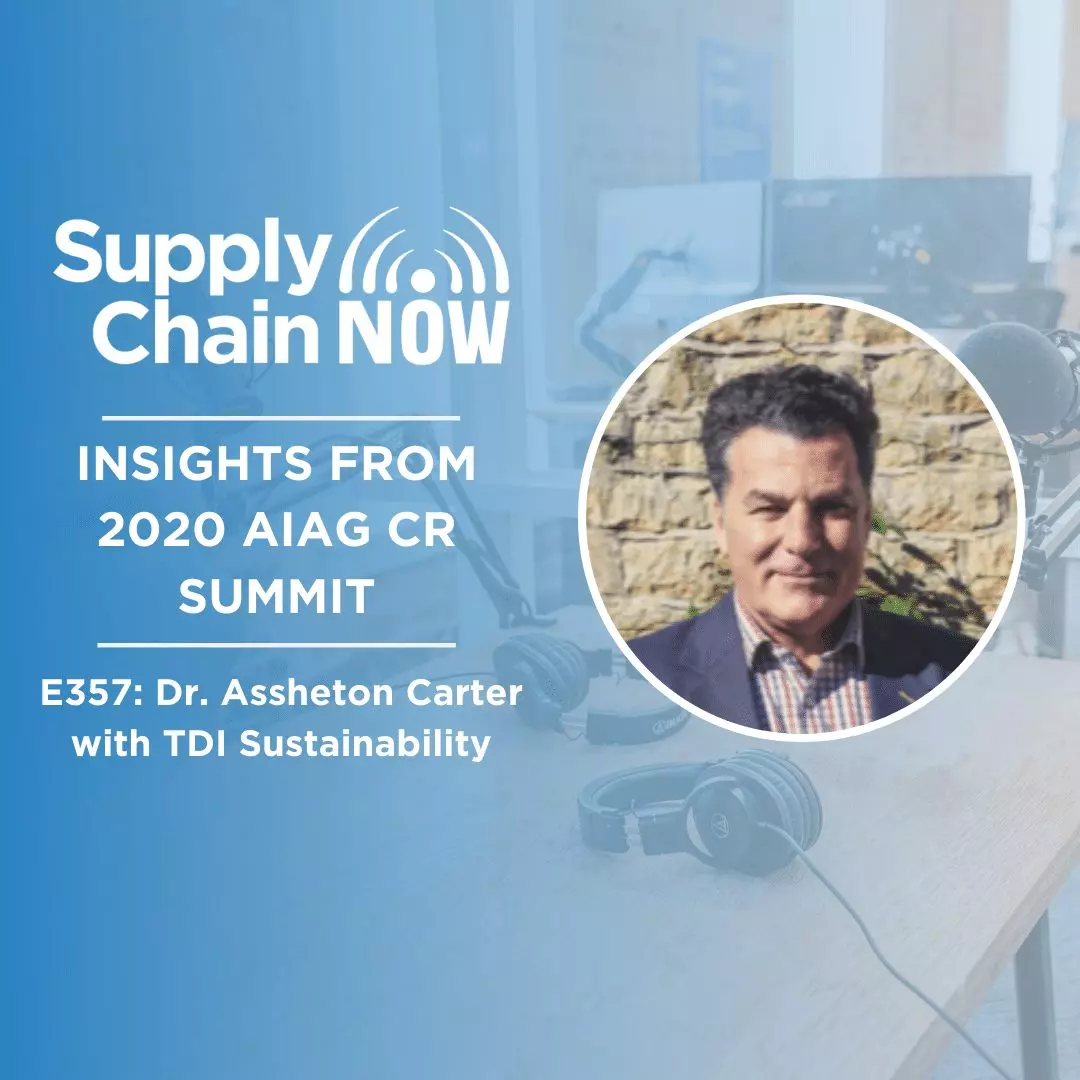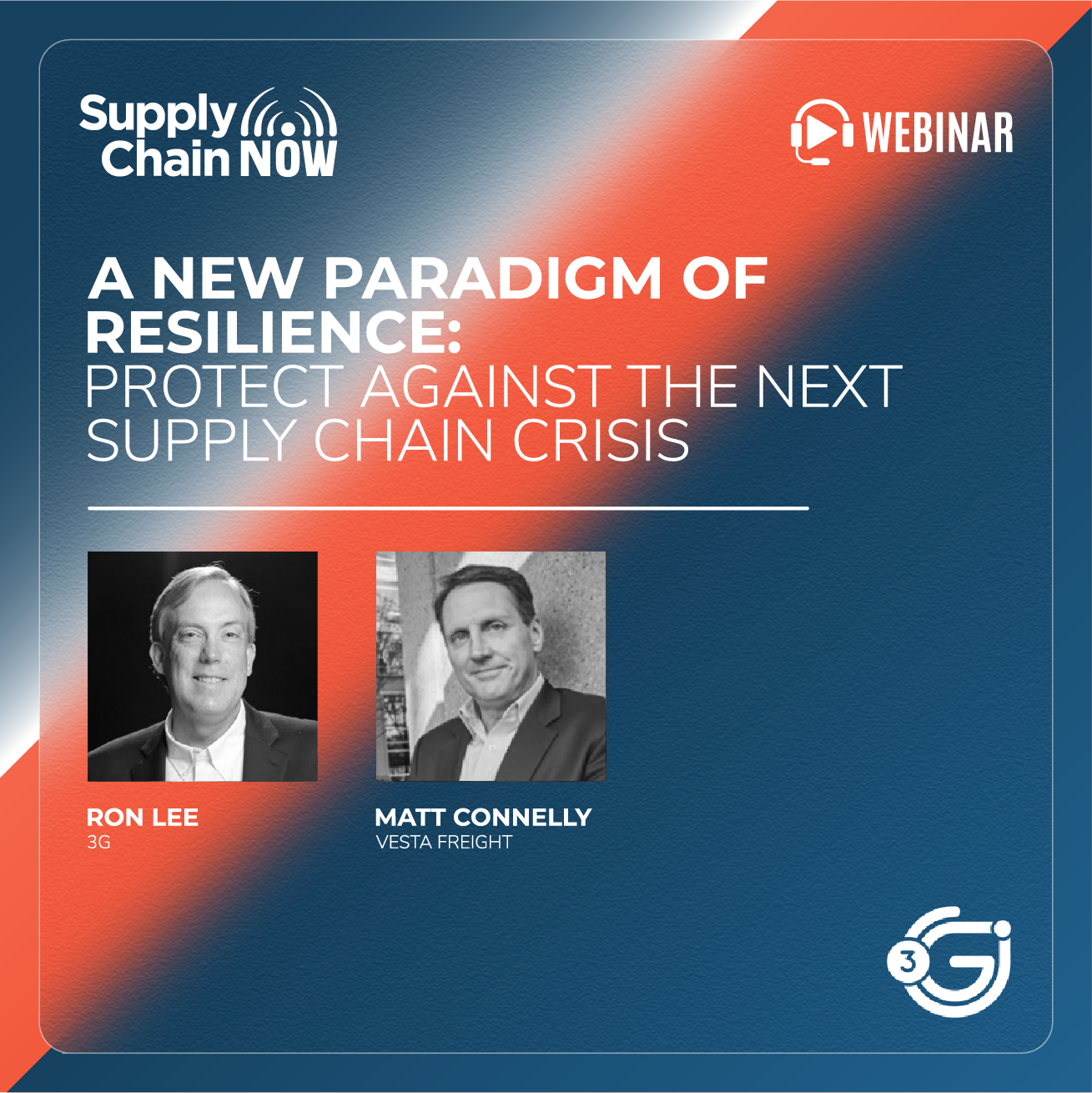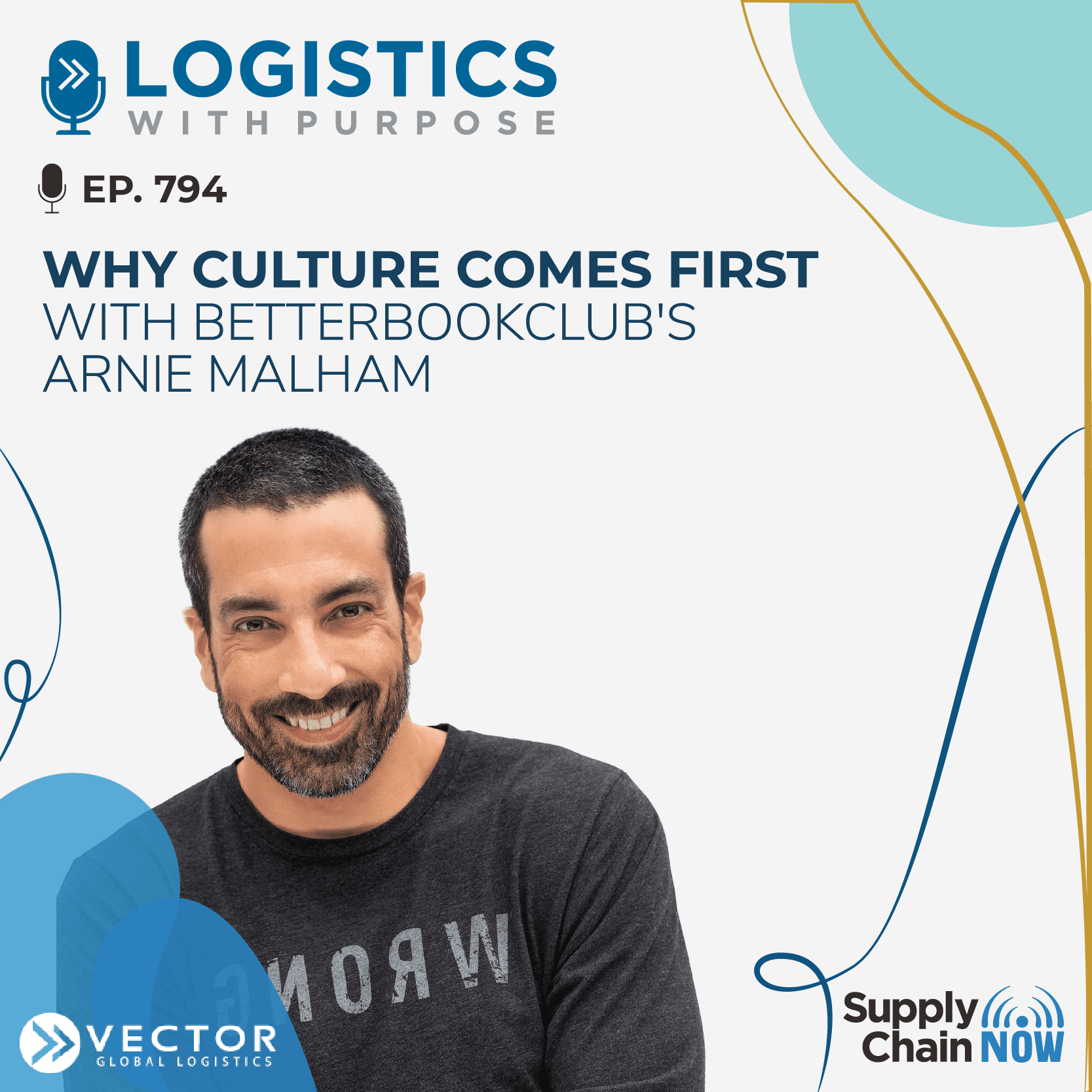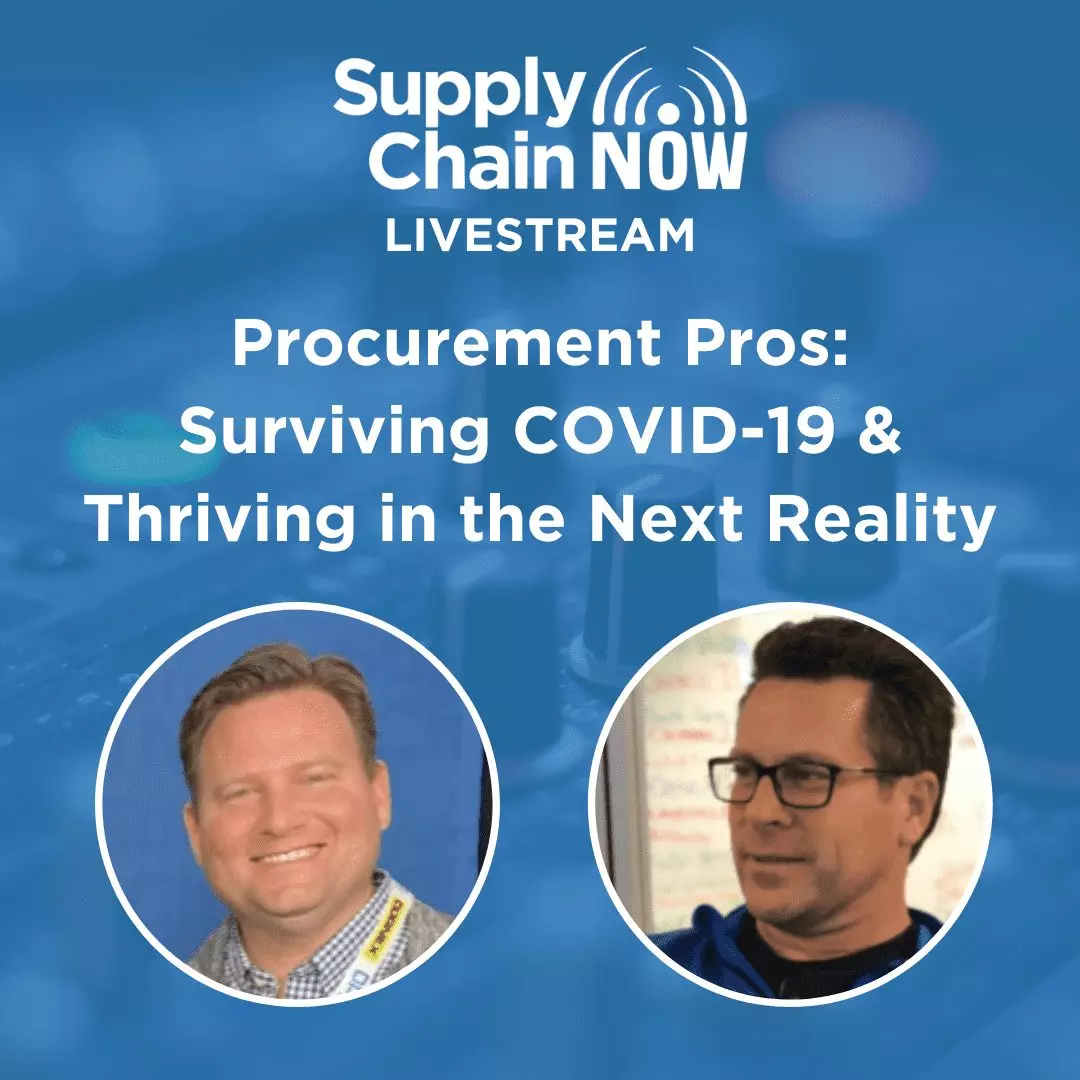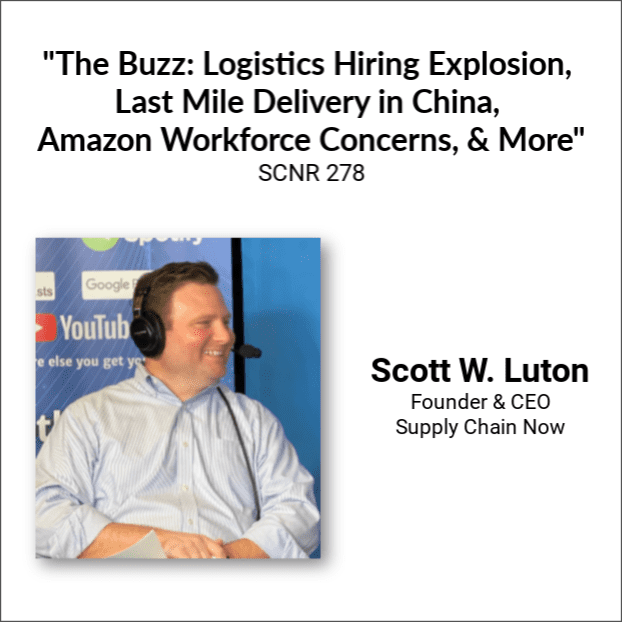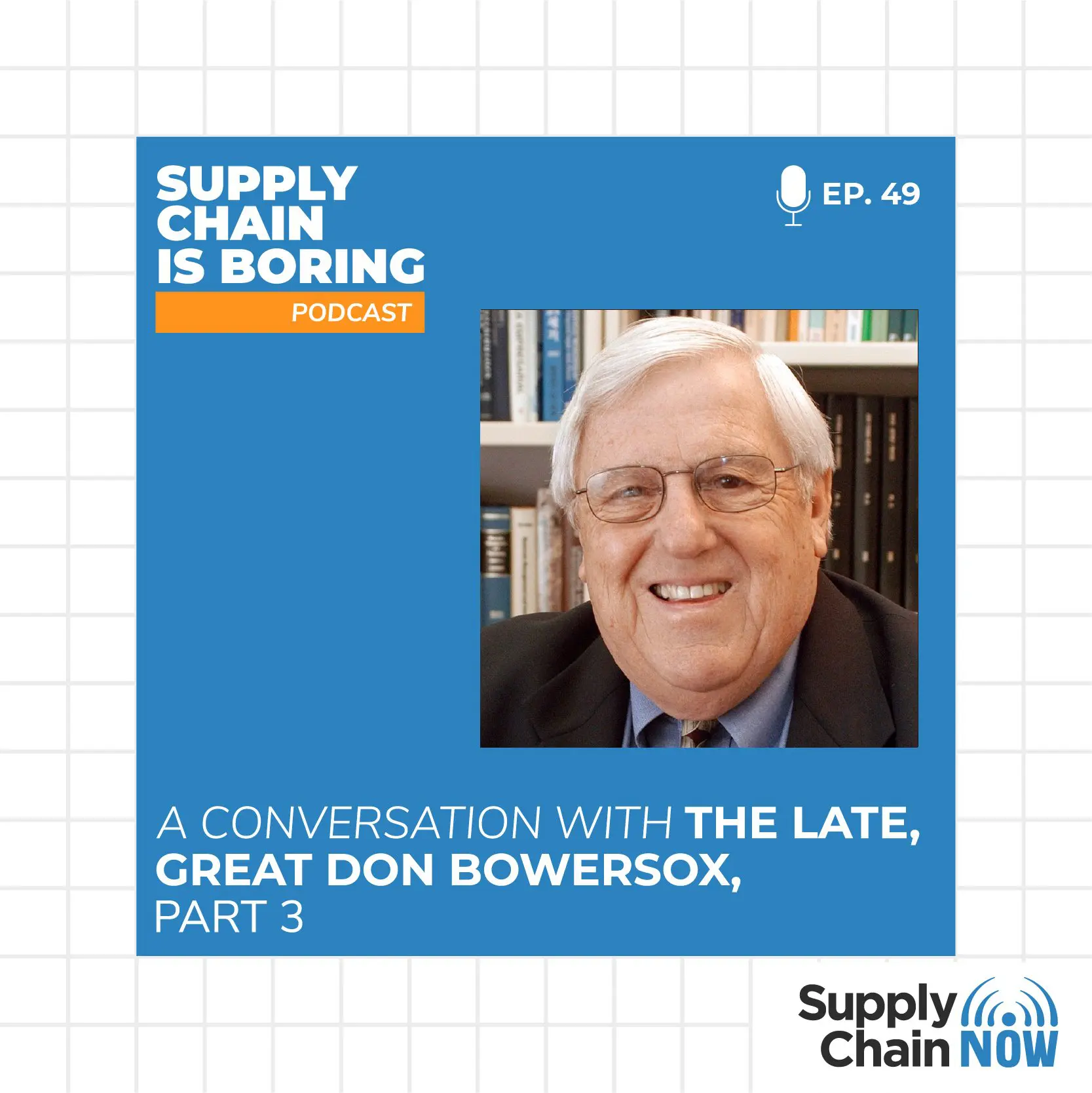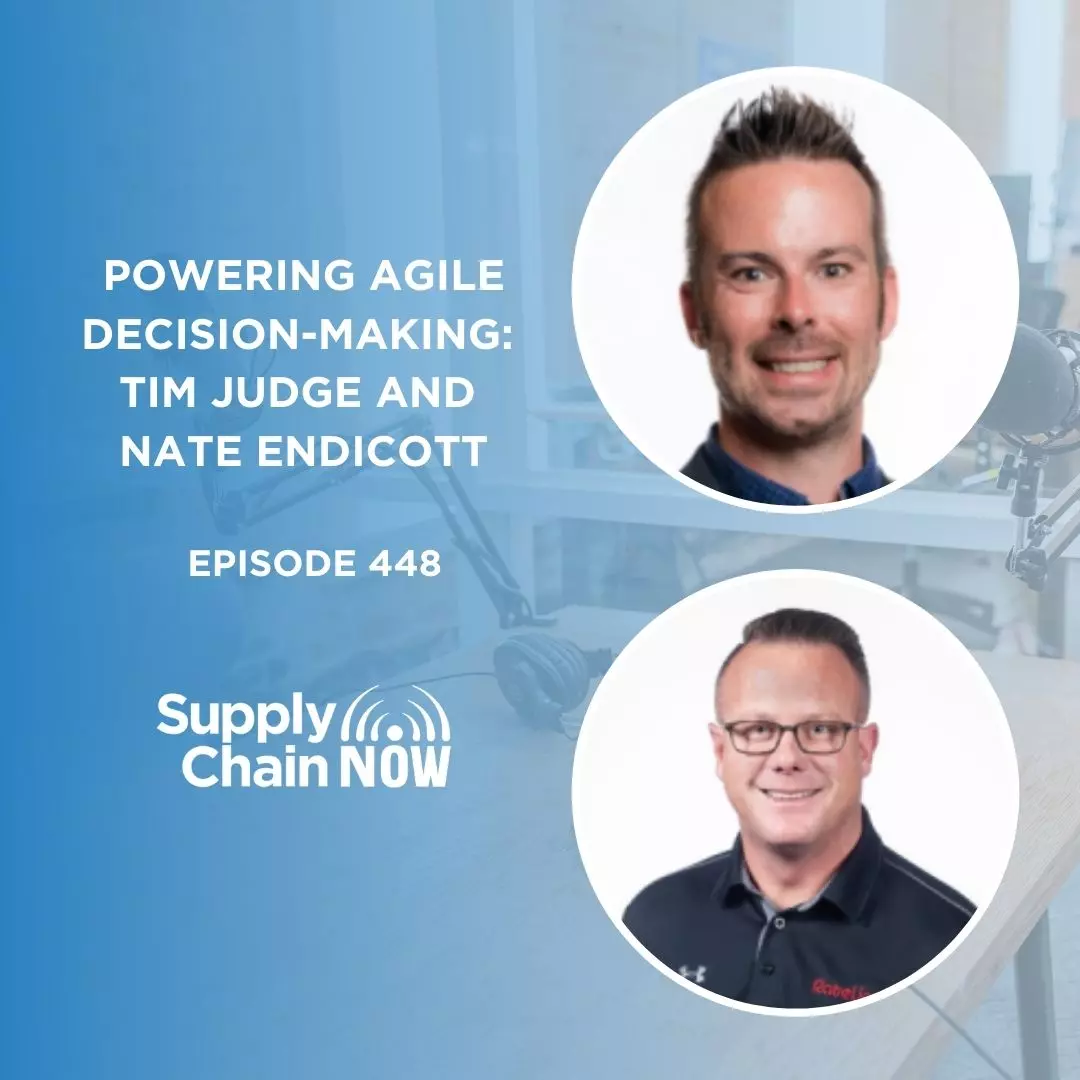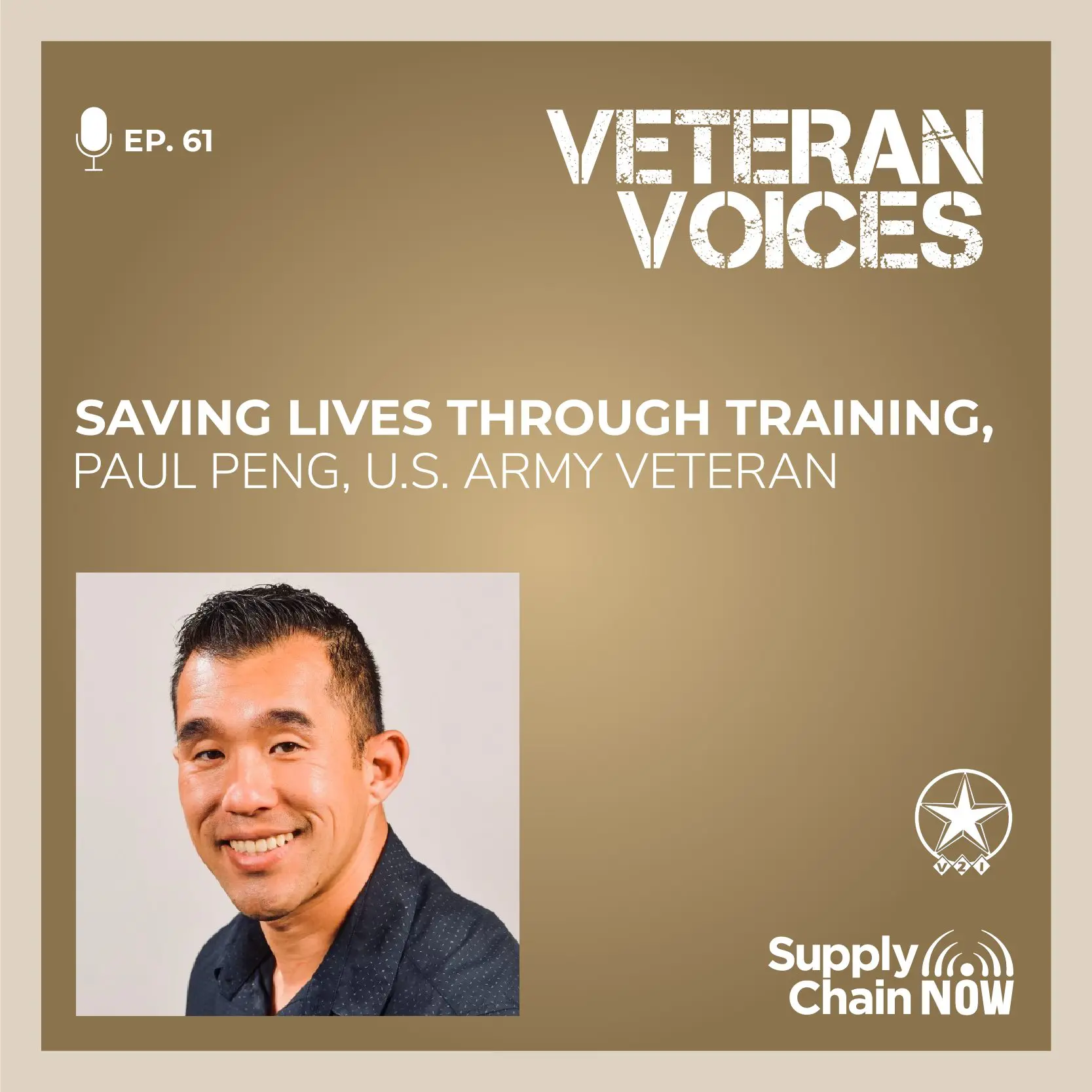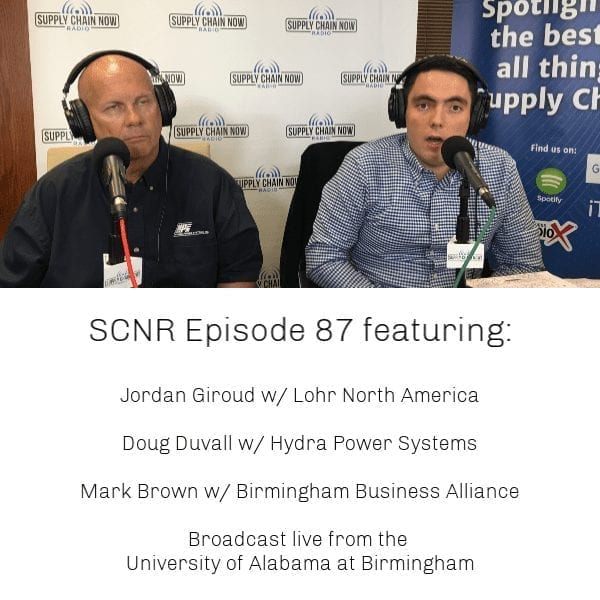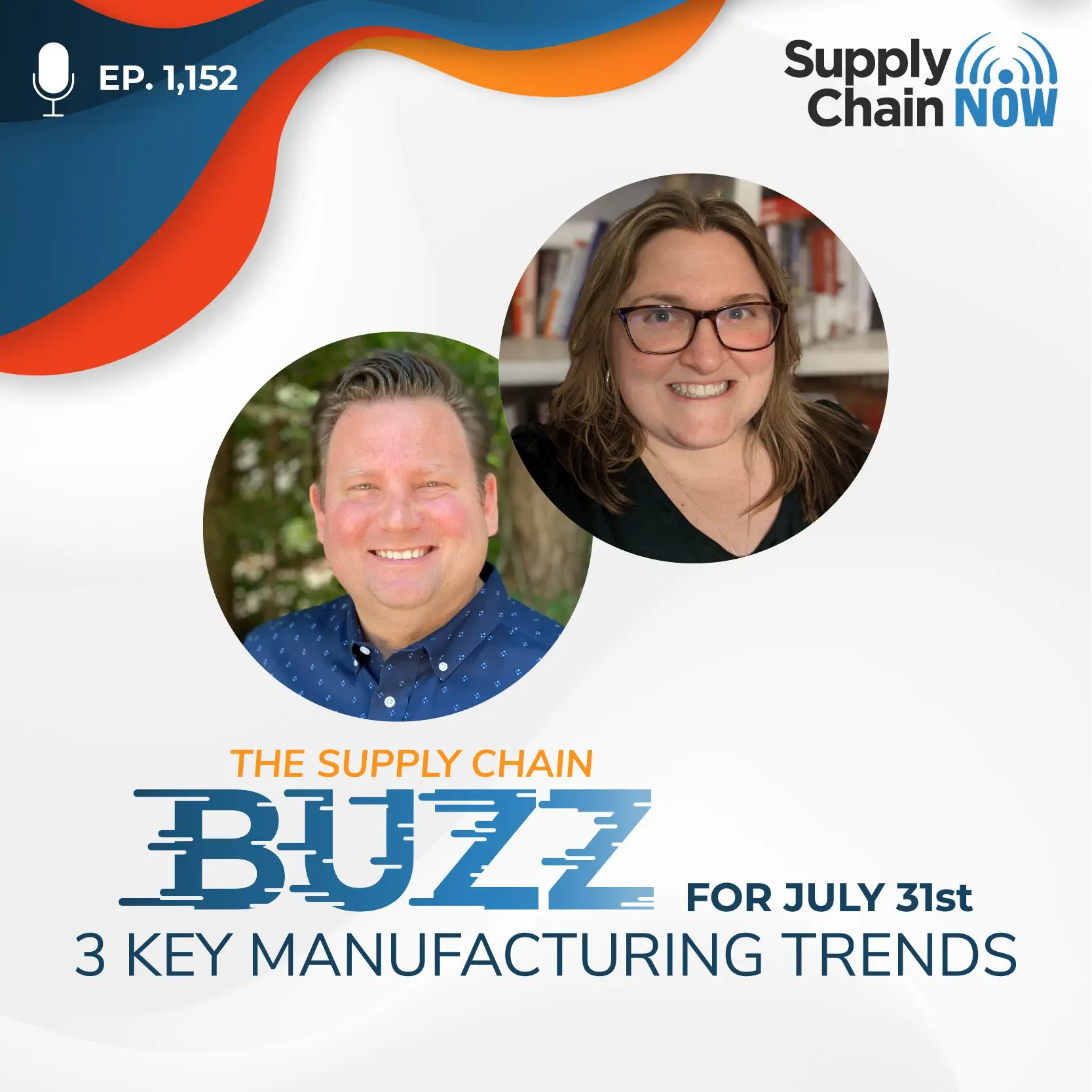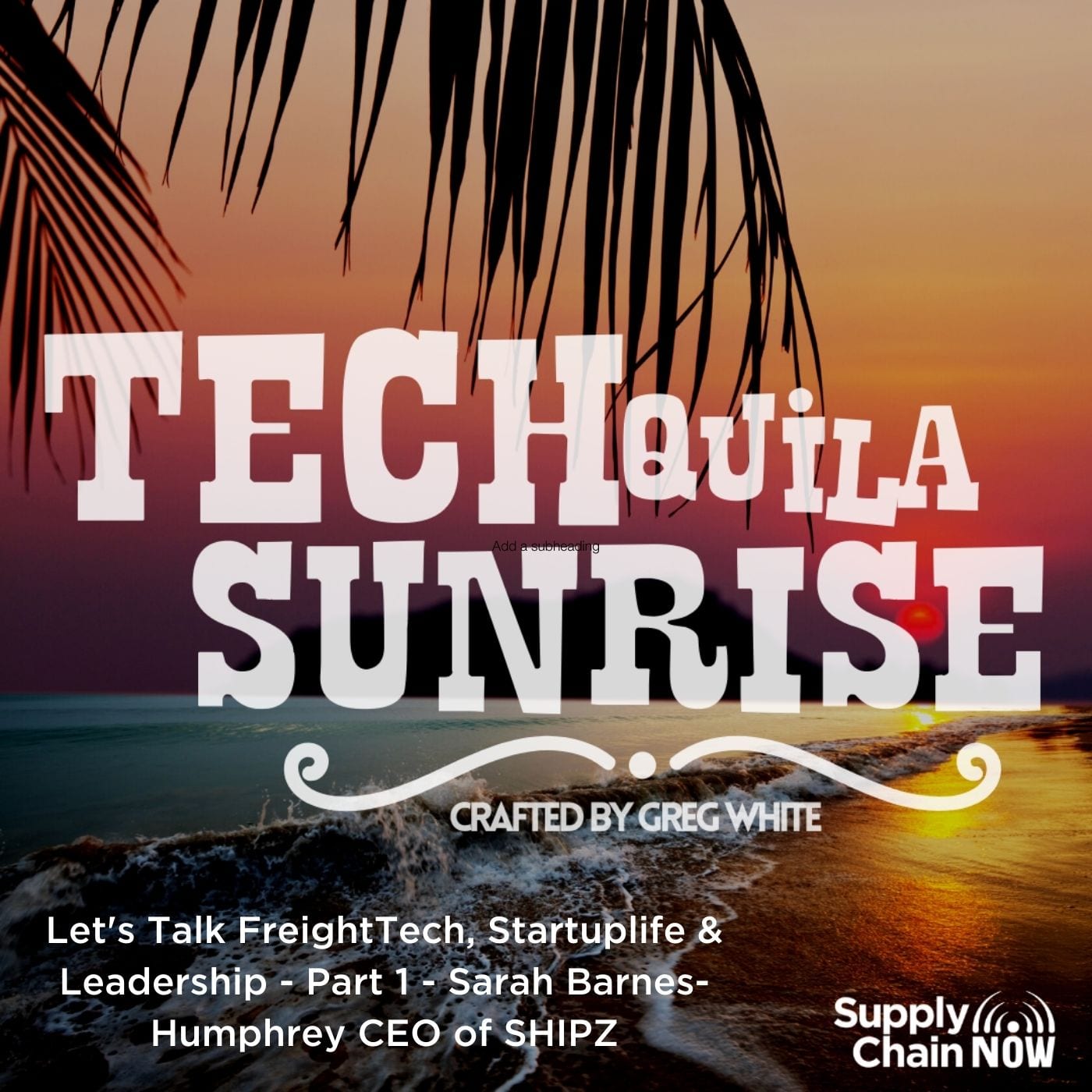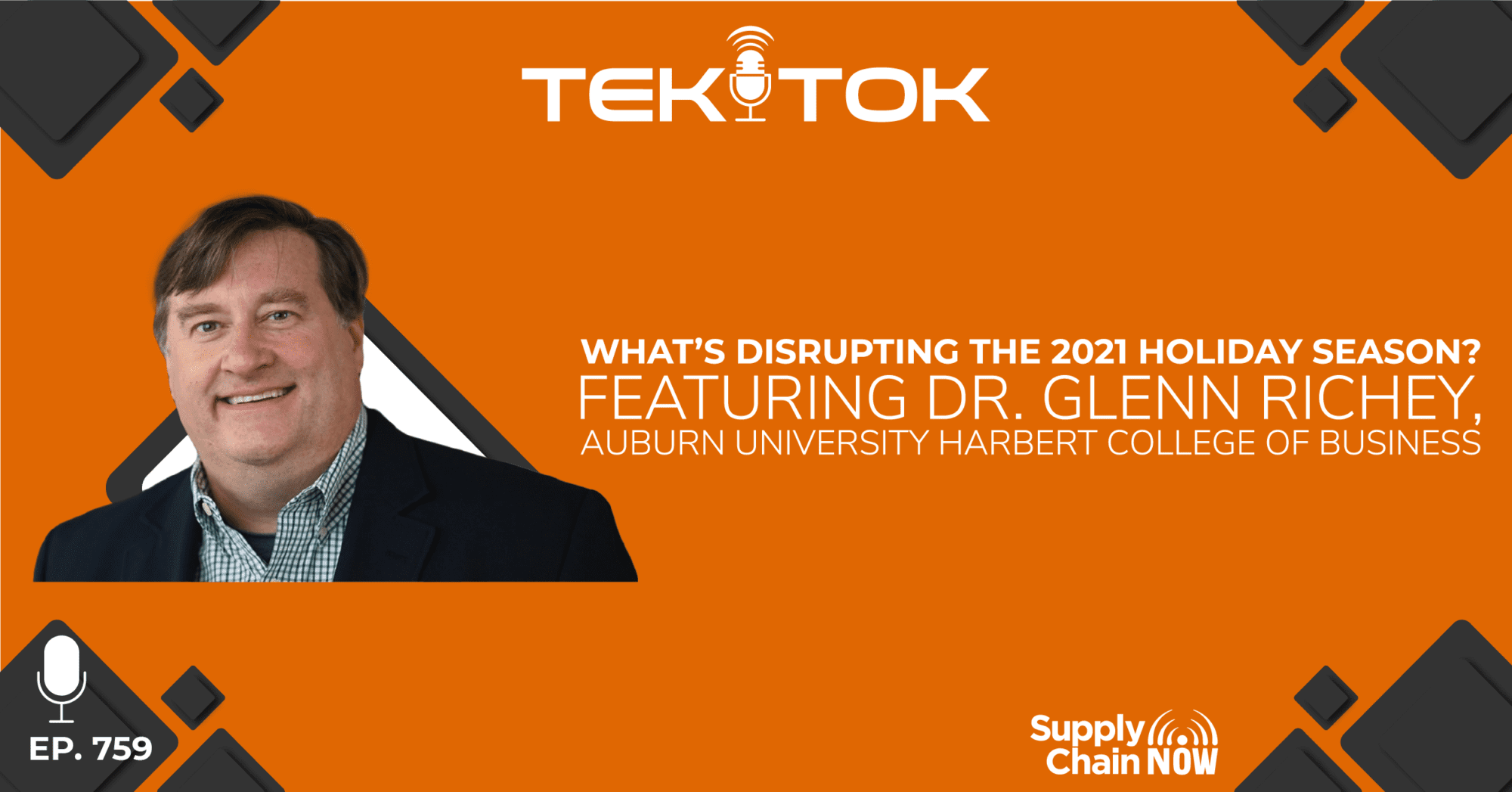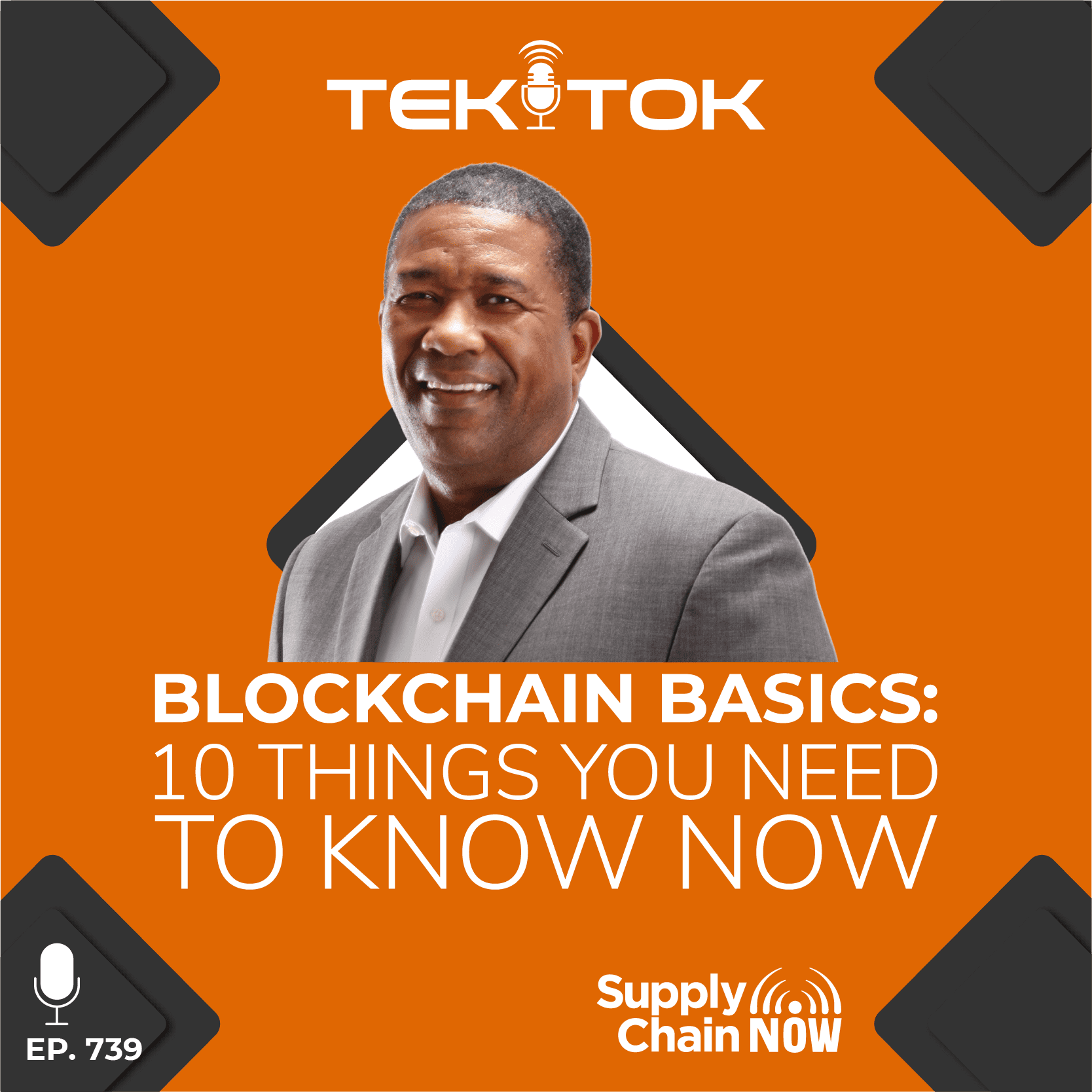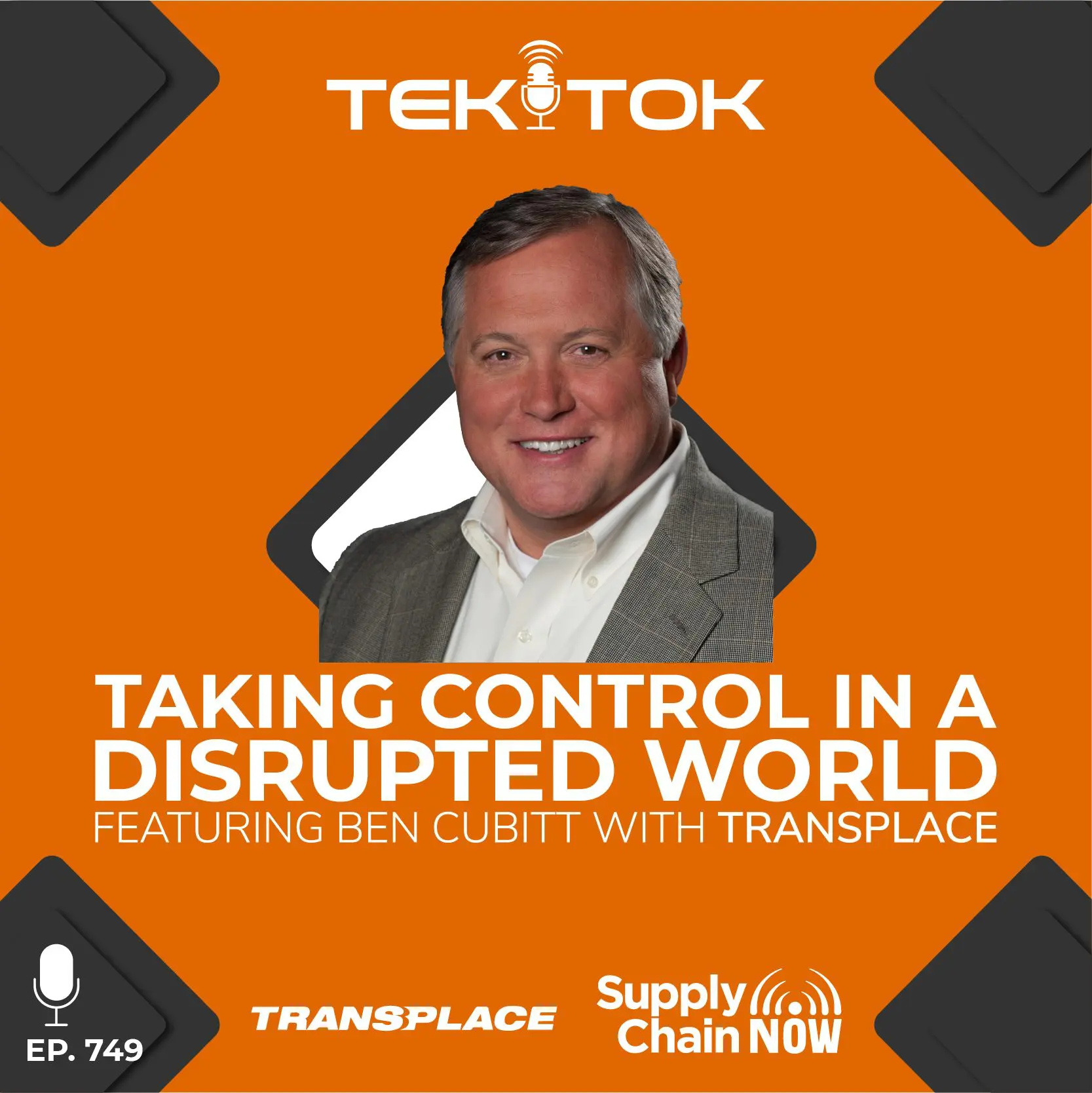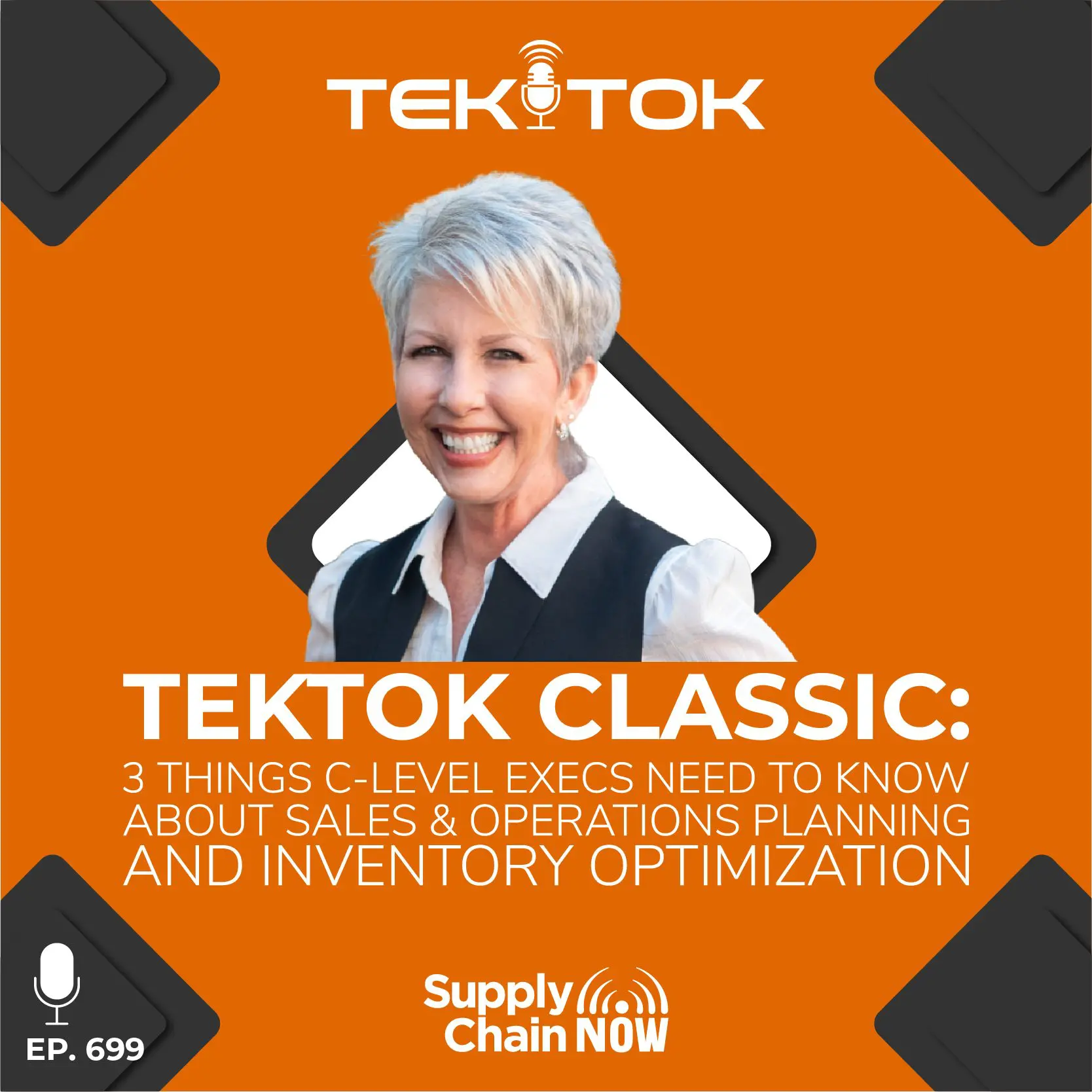Episode Summary
As we are heading into the 2021 holiday season, we are still living in a world full of supply chain disruptions. Earlier this week, we hit a new record. Between Long Beach and Los Angeles, there were more than 100 ships carrying over a half a million shipping containers stuck off the coast of Southern California. It’s clear the pandemic created a cascading disruption that has impacted supply chains at their most vulnerable points. As supply chain constraints abound new opportunities emerge. Join us in this TEKTOK episode on Supply Chain Now, as supply chain expert, Dr. Glenn Richey with Auburn University explains consumer issues ahead of the 2021 holidays and busy shopping season.
Episode Transcript
Intro/Outro (00:01):
Welcome to TEKTOK Digital Supply Chain podcast, where we will help you eliminate the noise and focus on the information and inspiration that you need to transform your business, impact, supply chain success, and enable you to replace risky inventory with valuable insights. Join your TEKTOK host, Karin Bursa, the 2020 Supply Chain Pro to Know of the Year. With more than 25 years of supply chain and technology expertise and the scars to prove it, Karin has the heart of a teacher and has helped nearly 1,000 customers transform their businesses and tell their success stories. Join the conversation, share your insights, and learn how to harness technology innovations to drive tangible business results. Buckle up, it’s time for TEKTOK, powered by Supply Chain Now.
Karin Bursa (01:13):
Welcome back supply chain movers and shakers. Karin Bursa here and I’m your host for TEKTOK, the Digital Supply Chain podcast. Thanks for tuning in today. We are heading quickly into the 2021 holiday season. And, guess what? We’re still living in a world of supply chain disruptions. Earlier this week, we hit a new record. Between Long Beach and Los Angeles, there were more than 100 cargo ships carrying over a half a million shipping containers just stuck off the Southern Coast of California. Now, this is a complex and network, if you will, that normally sees less than 20 ships anchored, waiting to be unloaded and here we sit at well over a hundred. That backlog is simply staggering. The Los Angeles Port had its busiest September on record and Long Beach is going to process, get ready for this, more than 9 million containers by the end of 2021. That’s a new record for sure. And, one, they’re probably not in a hurry to break.
Karin Bursa (02:27):
In addition to that, if you look on the East Coast of United States, you’re going to find another backlog in the Port of Savannah, not as severe, but somewhere between 20 and 30 ships waiting to be unloaded. That’s another 80,000 containers waiting, just waiting, filled with your Christmas goodies. So, it’s clear that these next several weeks and months are going to continue to be volatile. And, then it’s going to take us well beyond the 2021 holiday season to truly recover. So, with us today, we’ve got an expert. We’re going to talk about what’s disrupting the 2021 holiday season with Dr. Glenn Richey and he is with Auburn University, the Harbert College of Business in the Department of Supply Chain Management. Dr. Richey, thank you for joining us today. And, I must say, War Eagle.
Dr. Glenn Richey (03:21):
War Eagle. Thank you for having me. It’s great to be here today.
Karin Bursa (03:25):
Yeah. So, you’ve got a really great point of view on a number of factors that are contributing to the disruption. But before we get there, I do want to say just a couple of things about Auburn’s education program and supply chain, because it’s very well-regarded on a global basis and has been for a number of years. Now, I went to Auburn. We didn’t have a supply chain discipline at that time. Great operations, research, great finance, but supply chain really is still young when it comes to college education programs and Auburn’s got one of the best ones out there. So, in addition to what Auburn is doing in these areas, Dr. Richard, tell us what you’re doing. What are you focused on right now as it applies to the supply chain performance?
Dr. Glenn Richey (04:16):
Yeah. I have a couple of hats that I wear here at Auburn that all interface with supply chain overall. One thing that I do is I’m the co-editor-in-chief of the Journal of Business Logistics, which is I suppose the top logistics journal in the world. So, we’re very pleased to be the home for the journal. And, the university has committed, you know, resources towards supporting it. So, it’s been very helpful, and Dr. Beth Davis and I are very pleased with the direction of the journal’s going. So, of course, I’m the department head here, so I kind of lead up the administrative role. And, as Harbert Eminent Scholar, I also do a pretty significant amount of research. And, recently those things have looked at kind of a transition from kind of an optimization view to a more responsiveness view.
Dr. Glenn Richey (04:58):
I’ve also done some recent work looking at technology, adoption of blockchain and aspects that of technology that would actually allow for more transparency. And, probably the most focused question they are right now is, you know, what do you show and what do you not show? So, those are kind of the things that we’re looking at. We’ve got a faculty here of about 17 people leading the program that’s had great growth from about 180 students, seven years ago, to 525 today in our undergraduate programs. So, we need more folks out there trained in supply chain management. So, if people have students that they’d like to send us or would like to join our online masters, we’d love to have them.
Karin Bursa (05:39):
Yeah. Hey, congratulations on that growth. That’s really impressive. And even before the pandemic, we had a talent shortage. We were facing a crisis around talent and I know we’ll dive into that. This is one of the constraints we’re managing right now, but congratulations on the growth of the program and your continued leadership. One thing I have always admired about Auburn is that combination of research and education. And now, you’ve got the other aspect of also running a publication, a thought leadership in the marketplace. So, I imagine you’re pretty busy most days. Thanks for spending some time with us.
Dr. Glenn Richey (06:19):
Yeah, yeah. It’s a little underwater sometimes, but no, it’s great work and it’s great to be able to help young people find their way into a fantastic field. And, one of the things that helps a lot is we do have a center for supply chain innovation here that’s run by Dr. Brian Gibson. And, that really allows the students and the researchers to interact directly with business, which makes us a bit different than other disciplines.
Karin Bursa (06:43):
Absolutely, absolutely. Well, so Dr. Richey, we’ve got this current environment, right. We’re heading into the holiday season and we’ve got record volume. We’ve got shortages in workers. We’ve got equipment that’s in the wrong place. We’ve got a general global shortage of containers because equipment is in the wrong place, shortage of truck drivers, and just a general lack of synchronization in moving goods. Is the COVID-19 pandemic completely to blame for these disruptions or is there more?
Dr. Glenn Richey (07:22):
Well, I think that, you know, it’s a number of things and obviously that COVID-19 created kind of a cascading disruption across different countries. And, you know, as we talk about things being systemized or synchronized, as you put it, when you have a section or a section of the economy go down, when you have a note of the supply chain decide that the workers can’t come to work for a week, a month, it trickles down across the entire supply chain. We saw a lot of similar type disruption issues when we started to discuss the issues with tariffs. The Trump administration came out and was talking to China and other countries about tariffs. And, there were worries and concern certainly about disruption there. So, that’s really where we started to see things shift, but in my mind that it really has a lot to do with this focus on efficiency and trying to be as lean as possible. So, those moves by industry, by manufacturing were the things that made us more vulnerable to what ended up happening with the pandemic. And so, yeah, we put ourselves a bit at risk and that’s where we are today.
Karin Bursa (08:31):
Yeah. That’s a very real fact of our businesses is that we have worked very hard to be lean and to design supply chains for efficiency, as the number one factor, right, efficiency. In fact, a recent study I saw said that 60% of supply chains have been designed for just that to operate on a cost efficiency basis, not agility and not resiliency, which are the two things we’re talking about on a daily basis, right, the ability to plan and replan and to mitigate risk as well. Is this a problem then, Dr. Richey, of our own making?
Dr. Glenn Richey (09:12):
Yeah. I think it is. You know, there are a lot of people that can be blamed for how we got into this situation. I mean, I guess we could go all the way back to the ‘80s and blamed Deming and Juran and the just-in-time situation. But, no, I mean, we’ve seen a lot of different entities involved in making things tough and certainly trying to go as lean as we possibly could. And, when we stay systemized and allow products to move in a regular pattern, right, a regular flow, then we don’t end up with these bulk situations that are like pushing a bowling ball through a garden hose. And, that’s kind of, you know, what we see at the ports today is that big bulk amount of containers of product of ships that are just mired there until we can work through the system.
Karin Bursa (09:57):
Yeah, yeah. That is a really good point. So, one of the things that we’re hearing about in general is slow production or a lack of supply. And, obviously in the United States, you also mentioned those trade relations with China, right? So, we have a lot of moving parts throughout our global networks. What caused the production facilities to close overseas and were they slow to come back online or, you know, was it our demand signal? I mean, what came to play in really getting that production and distribution engine moving once again?
Dr. Glenn Richey (10:32):
Yeah. I mean, the answer is yes, it was all of those things.
Karin Bursa (10:35):
All of the above. Yes.
Dr. Glenn Richey (10:37):
But we saw early on Chinese manufacturers and raw material sources go down to protect the workers. And so, those facilities went down for a significant amount of time, which, you know, adds delivery deadline to every industry that they’re involved in. We saw raw material companies come back online before manufacturers. And, in other instances, we saw manufacturers come online before they had the raw materials, which again, cause them to go back offline when they can’t produce the product. So, those are tough things on the manufacturing side. But at the same time, we had other signals up market, telling customers run out and get your toilet paper before they run out. And, now we seem to be telling people run out and buy your Christmas presents while they’re still on boats offshore. And so, we’ve got to get all of those things together. Good advice for customers. Good advice from experts to manufacturers and other components of the supply chain.
Karin Bursa (11:31):
Yeah. Absolutely. And, we are hearing that. We are hearing by it now, right, and that you’re not going to see the sales or the discounts that you might normally see during the holiday shopping season. So, we’re hearing that, you know, on nightly news. I’m getting it on the radio and it’s certainly in every supply chain publication that I’m reading.
Karin Bursa (11:51):
I shared some staggering statistics though about the number of cargo ships that are anchored, waiting for their time to be unloaded. If we focus on Southern California, and I know our listeners are fully aware that that Southern California Ports, you know, they’re closest to those Asian exporters. So, that’s the quickest route and that’s why we see the backups on the west coast so frequently. Those are staggering numbers. You know, a hundred cargo ships, better than a half a million containers just waiting. You know, why are the cargo ships taking so long to get their port time? And, our ships just getting so large. Is there limited equipment to unload them? You know, give us a little insight into that, Glenn.
Dr. Glenn Richey (12:44):
Yeah. I mean, the gridlock situation is the main thing to blame, but there are all other kinds of issues that are involved. And, certainly when you look at Southern California, those boats are, there are a bunch of them out there, there’s a heavy flow of them coming through, but there’s also a space issue. There’s not enough space for the containers that are coming off. There’s not space for containers that are empty that need to be there to unload from warehouses and then onto the ships. And so, yeah, it’s just absolute gridlock. And so, we’re trying to find some ways to loosen that system up and get those things through. I’ve heard, you know, things as crazy as stacking containers too high on city streets to try to add some flexibility in this situation. I heard yesterday that there are about 2,000 empty containers headed by land to Southern California because the carriers need them. And, the port’s reaction is we don’t have space for them. So, it’s an interesting work of puzzle to try to get all these different things together and in place.
Dr. Glenn Richey (13:46):
There really may be some other suppliers and other industries that can help along this way. You know, if you think about companies that build pipes and that type of thing have pretty sizable yards, where they store these things outside, perhaps some of those businesses to find an opportunity to make a little money and add a little flexibility to the system. But we’ll just have to wait and see. And, obviously, there’s been some issues in Southern California with management labor, not being on the same page. You know, it seems like we’re moving in the right direction there at least for the time period, but it’s a tough thing. It’s a tough question.
Dr. Glenn Richey (14:20):
I’m hopeful that they can find some flexibility, but, you know, it doesn’t help to unload ships as fast as possible if you have no location to put the containers. I also should point out that, you know, the infrastructure, especially where the port links to the rail system and to the trucking system is pretty fragile in Southern California. It’s pretty rigid. So, it’s tough to get product out of Southern California. And, I do have people say, well, why don’t you go through the Panama Canal, where there are costs to that. Their delay is caused by that. It’s probably also important for your listeners to realize that, you know, China uses the United States as a land bridge. So, a number of those containers that are out there in Southern California are going to hit trucks, run to the Eastern Seaboard and then get back on boats and go to Europe. Hopefully, over time we’ll see that lesson as China builds their one road policy and continues to build infrastructure towards Europe from their Western coast, but our Western side of the country. So, we’ll see. But, yeah, they’ll going to be lots of trucks on the road for quite some time.
Karin Bursa (15:24):
Let’s talk about that for just a minute, because the U.S. has been experiencing a decline in truck drivers for more than a decade, maybe even longer, but certainly well before the COVID pandemic hit. We’ve been seeing a continuing decline in the number of skilled truckers. Why has the pandemic really exasperated this? Is it a situation where volume has simply increased or is it a situation where skilled drivers are opting out?
Dr. Glenn Richey (15:59):
Yeah, yeah. Yeah. The volume has increased and we’re seeing some truck drivers shift to other industries. We’re seeing less truck drivers come into the field. We spend a good bit of time talking to our trucking partners. We have several very, very strong companies here that support the university. And, it’s a combination of trying to get the labor and trying to get the equipment up and running. I know people are thinking about, well, we don’t see many cars on these car lots. That’s because of the chip issue and the manufacturers cannot get the chips to get the cars produced, but we can’t get vehicles either. So, we have, you know, one partner business a year that tried to buy 20 new trucks at the beginning of the year. And, they still don’t have half of those vehicles. And, at the same time, if you can’t get the chips for the cars, you can’t get them to repair the truck. So, there’s an equipment issue and there’s a kind of a finite amount of vehicles that we can use.
Dr. Glenn Richey (16:52):
But, you know, we haven’t done a great job over the years of recruiting people into the truck and field, and we really need to be doing better work. It is a satisfying career. It can be a career where you make six figures. And so, we are seeing groups like the Alabama Trucking Association go out to trade schools and encourage some of these people that are in trade schools to consider making that shift to transportation. It is a good job. It’s a tough job, right, and it can require you to be away from your family. So, it does take a certain type of individual that’s willing to do those kinds of things. But while we really do need more folks in the area and seeing some of the innovative approaches now to get people interested in truck driving is really kind of wild.
Dr. Glenn Richey (17:36):
Santa Rosa, Florida is using their, going in in their prison rehabilitation program, getting truck drivers out of the prison. So, you know, there’s probably an opportunity for some of those people to come back and benefit society with their help. So, who knows what other types of innovation we may be able to find? Then, again, smaller trucking lines are at times, you know, have their drivers picked away by larger trucking lots. So, the free market kind of causes that to happen and that’s a tough situation. Not to mention that now we also see manufacturers that are raising salaries. And so, if you can make more money with the manufacturer and stay in town, why would you be an over the road truck driver driving from Atlanta to Los Angeles?
Karin Bursa (18:18):
Yeah. So, you hit on a number of things there from labor to some of the parts and repair and equipment constraints. Let’s talk about some of those supply shortages for just a minute. You know, in the past several months, we have seen shortages on just about everything, but certainly you mentioned toilet paper a minute ago. But we think about, you know, chicken, ketchup packages. Who thought we would ever have a shortage of ketchup packages, right? And, of course, you know, building products, plastics that are used in many, many different types of products, including automotive. And then, of course the semiconductor, which we’ve heard a lot about because of its limiting impact on the automotive sector in general. And, of course, those semiconductor chips are in anything from toys to computers, mobile phones, even ventilators, which we want to make sure are readily available, and, of course, automobiles. What’s happening in this area? Again, was this a response to a diminished demand signal and it’s taking time to build backup or were there other factors that contributed to this?
Dr. Glenn Richey (19:31):
Yeah. That’s an interesting point that you bring up. You know, we kind of saw a situation where experts like me came out and said, “Oh, this is going to kill the economy. The economy is going to stop. It’s going to at least slow down.” And, it did slow down a bit. Right? But the pick backup was, was quite rapid. And, I guess when we say stay at home, you know, the virus is out there. You know, we think, well, people won’t be going to retailers, but in reality we’ve been making this transition to e-commerce and people really jumped on e-commerce and so the path adjusted.
Dr. Glenn Richey (20:04):
The interesting thing with the chip manufacturing situation is it’s a lot easier to sell a million chips to Apple or a cell phone company than to go and negotiate with one of our automotive manufacturers in the United States. And, those companies realize that it’s easier to make that happen. And so, that’s where they go first to make the initial sale. There are opportunities to do some allocation, I guess, and make sure, you know, your different partners get the product or get the components that are needed, but it’s been tough because the choppy demand. So, we signaled that there wasn’t going to be demand and there was, and now they seem to be taking the products to the power players. And, there’s a lot of power play going on in the supply chain today with major companies going out and renting out entire ships, right, and kind of drawing in their specific inventory first. And, we haven’t talked about that a lot in the research, but I can tell you in the 1980s it was a big focus of negotiations, power plays along companies. And, I expect we’ll see that come back to the research with some of the things we see going on in the country right now.
Karin Bursa (21:11):
Yeah, yeah. Lots of good points there. You mentioned a minute ago, you know, some panic buying, right? So that people are stocking their pantries or forward buying from a business perspective, certain materials and certainly consumable goods as well. When I think about this, it’s a classic case, or could be a classic case in the future of us creating almost a global bullwhip effect. Do you think that’s going to happen or do you think we’re smart enough to kind of dampen those spikes in demand?
Dr. Glenn Richey (21:46):
Yeah. I definitely think it’s going to happen. It certainly looks that way. To give you a little example, I went down to our local Walmart here just to have a look around and see how things were going in terms of their supply. And, as you’d expect, there’s some spots on the shelf that are empty here and there, a lot of that has to do with not being able to get packaging and those types of things that you’ve mentioned related to plastics and such. But the thing that they had plenty of was bicycles and the bicycles not only spilled over from the toy area into the garden area but as I was out there poking around looking at all of these things, a couple of the employees said, please buy one. We have two containers of them behind the store.
Dr. Glenn Richey (22:30):
So, you know, Walmart has said, this is where we need to be. Let’s buy it all now instead of extending it out across time. And, I expect we’re going to see a lot of players do that type of thing. I’ll be honest. I’m on a couple of different radio shows pretty frequently. And, one of them is in New Orleans, WWL. And, I do what I can to not talk about certain products that may be running low because it does trigger people to go out and buy. And, in that community, we saw all kinds of different things go out of stock. You understand how people react to toilet paper or bottle of water, especially in hurricane crisis situations and those types of things, but you don’t expect them to run out of pork sausage, right. And, that’s a staple in New Orleans, [inaudible] and pork sausage and these things. You need to have those things in stock, but all of those disruptions that we’ve talked about earlier today certainly had an impact on the production of that product.
Karin Bursa (23:23):
And so, let’s talk for just a minute with the conversation around your observations at Walmart. You know, when we think about the retailers, the traditional retailers as well as e-commerce, there’s a lot of concern around the holiday season, in just them hitting the revenue numbers. You know, some retailers really count on that holiday season to get in the black for their annual performance as well. But I understand that retailers like Walmart, Costco, Ikea, Home Depot, many, many others, they’re chartering their own ships, right, to bringing goods. Is this going to help? Aren’t they just going to face the same gridlock that we’re seeing in the ports, or is there some mysterious port dedicated to these retailers that we need to know about?
Dr. Glenn Richey (24:14):
Yeah. They’re still going to battle the same delays, the queuing situation. It’ll be interesting to see if they’re able to expedite around some of that, but I doubt it. Then again, if they can actually get the product on the ship and secure that space, they may speed up the time of international transit. I was looking at kind of across the board industries and thinking about international transit than it was, those numbers before the pandemic. We’re running 11, 12 days, something like that. And, now I see a number of industries saying we’re at 60 days and that type of thing. And, when you start talking about computer monitors or furniture, now we’re talking about six months, right? And so, yeah, companies like Ikea obviously see that as a major issue for them and anything they can do to secure space is what they’re going to try to do.
Karin Bursa (25:02):
Yeah. Absolutely. I’m hearing that as well very consistently that that transport times are anywhere from six to eight times historic transport, which is just crazy, especially for highly seasonal items and seasonal buying like you would do for the holiday season. So, we may see some great discounts come January on goods.
Dr. Glenn Richey (25:24):
It could be a really big Valentine’s Day.
Karin Bursa (25:28):
It could be a really big the Valentine’s Day. Yes, absolutely. So, Dr. Richey, as you know my focus here on TEKTOK is largely around the digital supply chain, right? Using technology to help improve the physical supply chain operations. Is it possible to automate? Are there automation opportunities that you were seeing that are going to help mitigate some of these bottlenecks?
Dr. Glenn Richey (25:54):
Well, I mean, I guess yes and no would be the answer. Certainly, there are things that we can do specifically at the ports that we could replicate from other ports around the world that could help systemize what we’re doing, could reduce some of the human error, could speed up processes a bit. You know, any of your viewers, your listeners will take a trip to Rotterdam and look at the magnificent automation that exists at that port. Those are things that we could potentially do with the right funding going to the right places. So, hopefully we’ll see some of those things happen. I do think that as we think about this bullwhip effect issue that we’re dealing with, that we were just speaking of a moment ago, probably there are ways to go into some of the machine learning in terms of our forecasting and smooth some of those things out.
Dr. Glenn Richey (26:43):
We’ll have to take it a little bit out of the hands of the people that have dealt with all of this risk over the last several months and allow them to think, okay, maybe we can go a little lighter on some of some of these issues. But there are also, I guess, some places where we could use materials handling equipment and that type of thing that’d be automated within facilities because we haven’t really talked about warehousing distribution centers. But typically this time of year companies like Abercrombie & Fitch are out there hiring an entire additional workforce to handle peak demand, and that’s where we’re headed. So, you know, if there’s an opportunity to use some robotics to fill some of those spots, robotics attached to detect systems, data systems then that would be a good assistance as well. Yeah. They’re big moves. It’s going to have to make big changes and certainly you can’t drop a full warehouse in right now and expect it to be up and running for the holiday season.
Dr. Glenn Richey (27:34):
I do think when we talk about retailing and warehousing in the holiday season, there’s a little thing that we’ve done to ourselves that we probably should recognize. You know, people think about retailers. They don’t typically think that retailers are warehousing and they really are. Maybe, they’re fancy warehousing. And, I’m sure the folks at Ann Taylor are saying, we’re not a warehouse, right? We’re a lot nicer than that. But in reality those retailers existed in marketplaces to be a place that had safety stock for your home, right? So, you could go to the retailer and pick up what you needed and hopefully they’d have it in inventory. And, over the years we’ve seen the number of retailers reduce and a lot of their business move to e-commerce.
Dr. Glenn Richey (28:12):
So, we’ve really moved our safety stock as customers out of our cities and onto the web. And so, that’s added that situation where maybe we don’t have as much flexibility as we think we do. The other side of those things is we move the storage into your home, right? And so, instead of buying a four-pack of toilet paper, you buy a 48 and it becomes an end table or a piece of furniture in the house that takes so much space. And so, those are real world supply chain issues that maybe we don’t see in front of us as consumers, but our choices have kind of caused those things to shift in a different location.
Karin Bursa (28:47):
Yeah. Those are great examples. And, you know, personally, I blame Costco and Sam’s Club for kind of, you know, greasing the skids, if you will, because when you buy products there, you’re always buying it in a much larger pantry size than you would at your local groceries. But, I totally agree. I mean, even in the grocery industry where you can buy online and get curbside pickup, you know, it’s transitioning many of our grocery stores into more and more of that kind of warehouse feel to them as well.
Karin Bursa (29:20):
When we think about COVID and some of the impact, is there a silver lining? So, one McKinsey report that I read, this is six months into COVID, it indicated, Dr. Richey, that we had transformed, digital transformation had accelerated at that point, in that six month window, to really what would have taken a good four years to achieve. So, as we’re now kind of month 20 in this process and dealing with, you know, a multitude or cascading disruptions as you’ve put it, is there a silver lining for supply chain?
Dr. Glenn Richey (30:01):
Yeah. I mean, I think there is. I think one of the places we could start is that I think two years ago most people didn’t really know what the supply chain was and they weren’t mentioning it around the dinner table and every politician and news agency out there wasn’t talking about it every single day. So, people know what the supply chain is now. They’re getting a feel for what it is. And so, hopefully, they can understand a little bit of the complexity and the delivery mechanism to get something from overseas to their front door. It has been truly amazing. People that are now shopping online that we didn’t expect would be shopping online. You know, the things that they’re buying are amazing. Like you said, grocery, I mean, it wasn’t that long ago when we were trying to get people to shop online for groceries and company like web companies, like Webvan, were going out of this.
Karin Bursa (30:49):
I was a big fan way back when. I was an early adopter.
Dr. Glenn Richey (30:50):
Yeah. So, yeah, the time has come and it really had a pretty serious impact on the way we interface with the customer. And, of course, in those interactions, we collect a lot of data and hopefully that data allows us to do a better job in making decisions and forecast in getting the right products to the right people at the right time. Yeah. Those have been big shifts and big transitions. I think that the fact that we need to upgrade our infrastructure in this country to help support supply chain processes is front and center. And, it’s nice to hear politicians talking about it finally in a pretty serious way. And so, hopefully over time, we’ll see that kind of disruption adjusted.
Dr. Glenn Richey (31:30):
You know, there’s a philosophy out there that is in economics that’s called creative destruction. Most people that spend time reading on economics and business have heard that, and you can even see that in The Economist, in the special section. And, the creative destruction recommends that when we see these disaster situations like war, we kind of destroy the processes and the mechanisms of what we use to go to business, to go to market, and we rebuild them. And so, the old Southern saying if it ain’t broke, don’t fix, really is if it ain’t broke, you should break it so that you can make it better. And so, I do think we see some of that going on, you know, new innovations, changes. What we were able to do to get those vaccines out across the country and the world was absolutely fascinating and really quite amazing. And, I was a big doubter on what we were going to be able to do and just the way people pulled together was great. So, yeah, I do think we’ll see a lot of changes, a lot of adjustments. I hope we see new sourcing strategies, which reduce some of the risks there that allow for a global partner, you know, a distance partner, but also may allow for another partner that’s nearshore or even domestic and maybe some collection of three different types of sources would make sense. Of course, every time you add another more complexity.
Karin Bursa (32:48):
More complexity, absolutely. But closer and closer to market, you know, makes a difference as well, and I do believe as the focus. So, supply chain, I agree, has taken center stage and it’s fantastic. You know, at our dinner table we’ve talked supply chain for years, but I’m not sure my family and friends really understood it until they couldn’t get toilet paper or some other basic needs that suddenly you could just see their aha moment around that. So, I think there’ve been a lot of teachable moments. And, I think that, as you said earlier, you know, some of our challenges are of our own making because we have strived for so many years to become leaner and leaner and increasingly efficient in how we produce, source, move goods. Resilience isn’t necessarily a low cost business strategy, right? So, we may need to multi-source or to, you know, to replenish and seize them differently than we bring goods in at the beginning of the season. So, I do think that there’s lots and lots of interesting opportunities still to be solved and addressed in the years and decades to come. Tell me a little bit, Dr. Richey, about, you know, some of this content is just so good and so tangible. How are your students responding? Are there a teachable moments? Has it made it a little more exciting for them or more tangible for them in the process?
Dr. Glenn Richey (34:21):
Yeah. It’s a great time to be teaching supply chain because it’s all right in front of us. One of the more interesting things is that I used a couple of different simulations in class where the students basically run a supply chain, run entities in the supply chain that compete against each other. And, over the years, you know, a lot of focus was on let’s get the costs down, let’s try to hit, you know, maybe a few stock outs, and, you know, let’s get the inventory very lean and try to get a very accurate. And, I will say over the last three semesters, as we dealt with the pandemic, the student’s philosophy in those instances have changed, and they’re looking for more safety stock, more backup. And so, those things are kind of naturally happening which is really interesting coming out of a system approach where we were really focused on optimization, really focused on just-in-time inventory and that type of thing. And, at the same time, companies like Toyota, who really got the just-in-time approach going, are taking steps away from the just-in-time approach to go back to kind of a more risk management approach to inventory and processes.
Dr. Glenn Richey (35:28):
So, seeing that happen at the student level and kind of happened organically has been really fascinating. You know, the internship approach has changed as well for students. We thought that we were going to have just a dead period for internships than we first got into the first summer of the pandemic, and we actually didn’t. The numbers upheld. A lot of the internships were from home, right. But the students were doing a lot of data analysis and working with Excel. And so, those things are things that now these students have probably stronger skills than they did just because the pandemic changed the nature of their education.
Karin Bursa (36:04):
Yeah. That’s a really good point. You know, with my perspective coming from the software industry around supply chain, we certainly have been seeing more and more data scientists as a part of that operations research team and that combination of how do we visualize, right, the plans that have been evaluated and how do we present multiple scenarios. So, I do think that there’s this wonderful kind of inner meshing of supply chain discipline with data science, with business analytics, and with finance, right, all coming together. And, by the way, don’t forget about marketing, right? So, marketing is one, you know, the discipline that stimulating demand or differentiating products in a market, but it’s really bringing all these facets together that I think is a wonderful time to be in business. And, from my perspective, the business is supply chain, right, unless you’re a services entity. If you’ve got product that you’re making, moving, delivering, and bring into market, whether it’s a component or a finished goods, there’s a supply chain around that. So, I think that we’ve got some interesting challenges and opportunities in front of us.
Dr. Glenn Richey (37:23):
Yes, we do. We really do. It’s a great time to be involved in the supply chain. It’s also a tough time to be involved in the supply chain. But I guess those things also mean job security for most of us, right?
Karin Bursa (37:34):
They do definitely. Yeah. I think that there’s definitely good job security. Speaking of jobs and placement, how’s the placement rate for Auburn graduates coming out with supply chain degree?
Dr. Glenn Richey (37:45):
Yeah. The placement rate has been very strong, you know, we’ve seen it continue to grow in terms of salary and those types of things. I think talk to Alex Ritenbaugh, who’s down in our office that handles placement and relationships with businesses. And, I think we’re seeing kind of a conversion rate from internships that run somewhere near 80%.
Karin Bursa (38:08):
Wow.
Dr. Glenn Richey (38:09):
And, so our students, you know, go out on the summer of their junior year, typically get an internship and a good number of them, I would say, a majority of them actually come back from that internship with a job offer. So, placement is strong. Lots of our students get multiple offers. And so, yeah, we need more folks in the field. And, part of that is the reason that we rolled out this masters of supply chain management over the last year. And so, we’ve got to the kind of our inaugural classes here. And, you know, we work with industry to design a 10-course sequence that hopefully gets the future employee as ready to go as they possibly can. And, so far, we’ve got a nice group of students in there, and they’re already getting questions and opportunities from companies like Mercer, from companies like Georgia Pacific. So, pretty exciting stuff to see happen.
Karin Bursa (39:01):
Yeah. That’s fantastic. Is that a one year a one-year program or is it –
Dr. Glenn Richey (39:04):
Yeah. It’s 10 classes, so you can take them in the sequence that you like. Most students will take three at a time. You can break them off and take three and get a certificate if you don’t want to go for the full master’s program. And, we also have it so that it interacts where you can get a double degree with our MBA as well. And, all of those were set up where you can do them here on campus, which is always the best place to be, right, or –
Karin Bursa (39:27):
It is. Always the best place to be.
Dr. Glenn Richey (39:29):
Or online, right? And so, those degrees, all of them are also available online. We have kind of a matrix structure that works quite well.
Karin Bursa (39:37):
Okay. Great. Well, Dr. Glenn Richey with Auburn University’s Harbert College of Business. We really appreciate you spending some time with us today. I think you’ve actually given me some ideas of some other topics we may want to invite you back to discuss in the future as well. If I could ask you, Glenn, what one thing do you want our listeners to take away from today’s conversation?
Dr. Glenn Richey (40:00):
Yeah. I mean, I think that the important thing for people to recognize is that we have a system that can get shipping out right and can cause disruptions. And, we need to find ways to build contingency planning into that system. And, until we have that done, we’re probably still going to see these types of things pop up in different areas. But, you know, I have a mentor that used to say, it ain’t no hill for a climber. And so, we’ll get there. Supply chain executive, supply chain workers, people, professionals, always step up to the task. And, it may take us a little bit to get everything ironed out, but we’ll get it there.
Karin Bursa (40:37):
Yep. I agree with you. I think the one thing that I have enjoyed so much in my career in supply chain is that, at heart, supply chain personnel are problem solvers. I mean, they are there, you know, solve problems, whether it’s an efficiency problem or a service problem, or even a production problem in the mix. So, I love that where they can really look at a problem from several different angles and come up with some possible outcomes.
Karin Bursa (41:06):
Dr. Glenn Richey with Auburn University. Thanks for sharing your insights today on what’s disrupting our 2021 holiday season. If our listeners want to get in touch with you, what’s the best way to do that?
Dr. Glenn Richey (41:17):
Yeah. I’m easy to find. You could search Glenn Richey on Google and I’ll pop right up. But, my email address is richey@auburn.edu. And so, really easy to shoot me an email, would be happy to interface with your folks and continue the discussion.
Karin Bursa (41:33):
Great. Thank you so much for joining us today. And, I hope that these insights are going to help our listeners navigate their 2021 holiday season. And, at a minimum, you’re going to have some great content to discuss at your next holiday parties. So, I don’t want to see you guys out there on jet skis, going from container ship to container ship, thinking you’re going to do your holiday shopping. Just hold tight. The goods are coming and we’ll get through this next series of supply chain disruptions.
Karin Bursa (42:02):
To find out more about supply chain and a number of different areas of digital content, please check out supplychainnow.com. While you’re there, look into TEKTOK, that’s T-E-K-T-O-K, and subscribe wherever you get your podcasts. On TEKTOK, our goal is to help you eliminate the noise and focus in on the information and inspiration you need to replace risky inventory with valuable information. We’re going to see you next time here on TEKTOK.
Featured Guests

Dr. Glenn Richey is Harbert Eminent Scholar and Chair of the Department of Supply Chain Management at Auburn University. He leads the Harbert College of Business’s highly respected supply chain management group with emphasis placed on education, research, and service to industry. He is currently the Co-EIC of the Journal of Business Logistics. Dr. Richey engages in industry-based supply chain strategy and international business research and enjoys building research and student relationships between academia and practice. Since 2003, Dr. Richey has published 90+ peer-reviewed research articles and taught supply chain and international business courses in 26 countries on six continents. Prior to entering academia, Dr. Richey worked for a decade in managerial positions including procurement, sales, retail consulting, and logistics/supply chain operations for Scott Paper and Genuine Parts Company. He continues work in these areas through research, consulting, and expert opinion. Connect with Glenn on LinkedIn.
